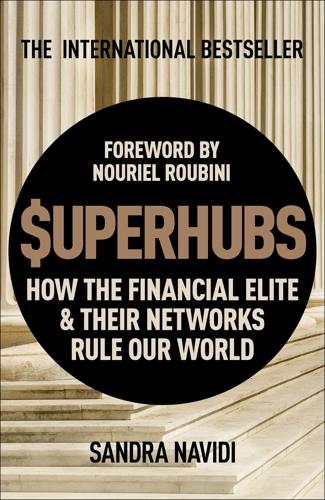
SUPERHUBS: How the Financial Elite and Their Networks Rule Our World
by
Sandra Navidi
Published 24 Jan 2017
We learn how the superhubs’ alpha personalities, inexorable quest for power, and desire to leave a legacy propel them to top network positions that come with access to unprecedented opportunities. We see the core characteristics most of them seem to share, such as a high degree of emotional intelligence, charisma, and charm. Molded by similar backgrounds within elite schools, the old boys’ network, and exclusive social circles, they understand and trust each other, form deep and resilient alliances, and employ their relational capital to maximize the return on their relationships. $uperHubs also draws the curtain on the personal sacrifices, pressures, and struggles that come with power and privilege.
…
Elite academic affiliations lend credibility and cachet to financial firms, serving as an implied endorsement. Critics view these financial ties as a major conflict of interest, corrupting the unbiased research process. Network Plutocracy: “The Old Boys’ Club” Elite schools directly tie in with another aspect of career advancement: the old boys’ network. The term originates from the connections formed at all-male private schools; indeed, to this day alumni associations of prestigious schools are a crucial component of the superhub network. Ivy League universities have seen record donations in recent years. In 2014, hedge fund executive Kenneth Griffin made a donation of $150 million to his alma mater, Harvard, and private equity guru Steve Schwarzman gifted Yale with $150 million in 2015.
…
In 2014, hedge fund executive Kenneth Griffin made a donation of $150 million to his alma mater, Harvard, and private equity guru Steve Schwarzman gifted Yale with $150 million in 2015. Over time, an informal system developed in which affiliations ensure that “members of the club” help one another in advancing their interests. They interact at work, golf clubs, think tanks, and any other platforms with high barriers to entry, be they financial, status-wise, or both. The old boys’ network is less conservative and stereotypical than it used to be, but it is still alive and well. Its members have similar social backgrounds and usually live in an exclusive bubble of privilege. Because of their influence, they determine the culture, define norms, and set the tone. The more-senior members recognize themselves in the younger ones and relate to their personal and professional struggles.
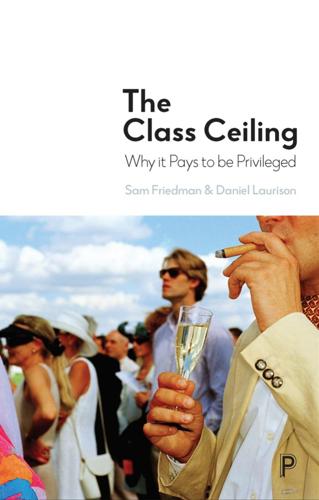
The Class Ceiling: Why It Pays to Be Privileged
by
Sam Friedman
and
Daniel Laurison
Published 28 Jan 2019
As Turner notes, this type of ‘upward mobility is like entry into a private club, where each candidate must be sponsored by one or more members.’2 Turner saw the UK as the exemplar of sponsored mobility.3 His article conjured images of an antiquated old boy network, where elite appointments are contingent on a set of ‘old school tie’ connections who ‘pull strings’ for one another, and whose relationships are rooted in the shared experience of ‘public’4 schooling, Oxbridge and private members clubs. Yet the power of this old boy network is thought by many to have waned considerably in the last 60 years. Indeed, many have argued that a number of countervailing forces, such as the expansion of secondary and higher education, the decline of the landed 109 The Class Ceiling aristocracy, rising absolute rates of social mobility, and the achievements of second-wave feminism, have fundamentally eroded this kind of elite closure.5 This is not to say that who you know is not considered important today; research showing the power of networks in elite professions is voluminous.6 Yet in recent decades this has tended to focus on the power of what sociologist Mark Granovetter famously called ‘weak ties’.7 Here the emphasis is on the importance of forging a multitude of informal professional contacts, on being a good ‘networker’, especially with those in positions of power.
…
-C. 306n23, 308n14 Bourdieusian approach 186–8, 195 Breen, R. and Goldthorpe, J.H. 294n2 Bridge Group 229, 231, 235, 236 Socio-economic diversity in the Civil Service Fast Stream 230 British Broadcasting Corporation see BBC British Social Attitudes survey 2016 286n31 Britton, J. et al 295n18 C capital (Bourdieu) Bourdieu on 186–7 class as total 196–7 cultural 14–17, 162, 164, 197, 199–203 dimensions of 194 economic 14, 24, 90, 93, 105–6, 197 embodied cultural 154, 187, 197, 199–208 ‘field-specific’ 199, 201–3 social 14, 110, 149, 162, 164 technical 141, 187, 203–8 Carter, C. and Spence, C. 159 Casciaro, T. and Lobo, M.S. 301n18 CCIs see cultural and creative industries CEOs (Chief Executive Officers) 33fig, 35fig, 40, 41fig, 42fig, 53fig Charlesworth, S.J. 314n71 Chetty, R. 192 Chinese ethnic group 42–3, 49fig, 51, 52fig Civil Service, Opportunity Network 237 ‘Clarendon Schools’ 148 class ‘death of ’ 5–6 origins and destinations 10–17 as multidimensional 196 class pay gap 7–9, 47–55, 57–70 within companies 85 company size and 67–9 demographic differences 59–60 drivers of 70fig, 86fig, 217fig education and 61–5 and elite occupations 52–5 and gender pay gap 50–1 and racial-ethnic pay gap 51–2 class-structural approach 189 client matching 147, 158–64 comportment 14, 132, 200 confidence cultural 154 fallacy of 23–7 and fitting in 124, 130, 151 misinterpretation of 102 and progression 19 and sponsorship 114 and typecasting 99 confidentiality 274 contest mobility 109 Coopers (architects) 81–3, 105–7 belonging 174–5 culture of 164–8 and embodied cultural capital 206 female representation 82, 120–1 fitting in 140–3 glass ceiling 143, 207 hierarchy 83 internal and external culture 164–8 merit 225–6 opting out 175 parental financial support 105–7 privilege 82, 83fig 361 The Class Ceiling racial-ethnic representation 82 researching 246–7 and sponsored mobility 118–21 working-class 82, 83fig Corbyn, J. 287n39 corporate senior management 33fig, 35fig, 41fig, 42fig, 53fig Crawford, C. et al 295n21 Crenshaw, K. 289n75 cultural affinity 111, 116, 122, 214 cultural and creative industries (CCIs), precarity of 91 ‘EGP’ (Erikson, Goldthorpe and Portocarero) approach 288n53 Elias, N. 302n3 elite signals 148, 156 Ellis, A.J. 306n20 embodied cultural capital 154, 187, 197, 199–208 emotional cost 173–4, 175, 178–83 engineering 33fig, 35fig, 40, 41fig, 42fig, 53fig, 54 Equality Act 2010 237, 296n1 The Equality Trust 238 Erickson, B.H. 307n38 ‘cultural competency’ 126 ‘cultural guides’ 120 F failure, anticipation of 173 ‘Fairer Scotland Duty’ 237 fairness 8, 9–10 feeding back 219–20, 273 Feinstein, L. 294n5 field (Bourdieu) 186–7, 198–9 ‘field-specific capital’ 199, 201–3 film and television industry access to 33fig class pay gap 53fig, 54–5 education 136 female representation 40, 42fig, 73 micro-class reproduction 34, 35fig racial-ethnic representation 40, 41fig, 73 social exclusivity 40, 74fig finance 33fig, 35fig, 41fig, 42fig, 53fig, 54 fire service chiefs 33fig, 35fig, 40, 41fig, 42fig, 53fig first class degree, earnings premium 38, 39fig, 64 fitting in 123–44 behavioural codes 134–40 ‘glass slipper’ 125–7 merit 144 polish 127–34 technical skill 140–3 cultural capital 14–17, 162, 164, 197, 199–203 D decomposition 58, 269 degree classification 63–4 deregulation 7, 246 disability 39–40, 41–2, 49, 51 discrimination 17, 40, 45, 57, 144, 224–5, 276 domestic migration 66–7 Dorling, D. 299n22 double disadvantage 50–2, 191, 218, 302n30 dress codes 126, 128–9, 134–5 Durkheimian approach 311n34 E Eagly, A.H. and Carli, L.L. 289n71 education and access to elite occupations 35–9 Bourdieu on 172–3 and embodied cultural capital 199–200 as ‘equaliser’ 61–5 grammar schools 6, 166 private 46, 78–81, 94, 104, 121, 123, 157, 159, 162, 172 public (elite private) 148–9 362 Index Fleming, P. 125–6 France, class pay gap 47 Friedman, S. 308n14 Future Leaders scheme 123–4, 244 G gatekeepers 114, 132, 144, 147–8, 166, 187 gender anxiety and 180–2 and dress 129 and merit 226 and technical capital 207 and tradition 39–40 under-representation of females 42fig see also double disadvantage; glass ceiling; intersectionality gender pay gap 45–6, 49, 61, 143, 221 ‘gig economy’ 91, 241, 270 glass ceiling 17–19, 45, 120, 143, 186, 190–1, 218 glass escalator 310n24 glass slipper 124–7, 128, 132, 133, 136, 142–3 globalisation 7, 286n17 Goldthorpe, J. 6, 8, 10, 189, 311n31 Goldthorpe, J. et al 309n7, 311n30 Goodall, L. 46 grammar schools 6, 166 Granovetter, M. 110 gravitas 159–60 H habitus (Bourdieu) 14–15, 186, 194, 198 Bourdieu on 288n69, 307n9, 308n1, 308n18, 314n80, 314n81 Hall, T. 45–6 Harman, H. 237 Heath, A.F. 310n20 hexis 200, 202 highbrow culture at 6TV 145–7, 150–6, 206, 219 as barrier 149–50, 164, 167 Bourdieu on 200 and privileged networks 168 Ho, K. 306n28 Hoggart, R. 307n35 homophily 214–15 and glass ceiling 17, 190 sponsorships and 113–14, 119, 120, 121 horizontal segregation 69, 272 Hout, M. 61 human capital 88, 90 I imposter syndrome 179 Indian ethnic group 42, 43, 49fig, 52fig individualisation 6, 26, 114, 144, 162 industry, decline in 6 Ingram, N. and Allen, K. 126 insecurity economic 91, 93 emotional 120, 139, 173, 179–83 institutionalised cultural capital 199, 315n92 intergenerational transfer 9, 15, 192, 193, 222 internships 149, 234 intersectionality 18–19, 40–4, 139, 190–1, 223, 233, 293n17 see also double disadvantage intra-generational mobility 193 IQ (intelligence quotient) 57, 61 isolation 181–2 IT 33fig, 35fig, 41fig, 42fig, 53fig J Jencks, C. et al 290n83, 311n29 Johnson, B. 57 Jones, D. 306n20 journalism class pay gap 53fig, 294n19 363 The Class Ceiling female representation 42fig Labour Force Survey (LFS) 264t micro-class reproduction 35fig privilege and 32, 33fig, 205 racial-ethnic representation 41fig and social mobility 30fig Just Fair 238 Lizardo, O. 149 ‘locus of control’ 23 London City of 19, 132, 212 parental financial support 24 privileged employment 22, 66, 69, 80, 106, 212 salary 66–7 senior positions 77 K Kitagawa, E 320n23 Koppman, S. 305n18, 313n58 KPMG 78, 230 Kuhn, A. 17 Kynaston, D. 132 M Macron, E. 29 management consultancy 33fig, 35fig, 41fig, 42fig, 53fig Matthew, M. 304n30 May, T. 7, 29 measurement of class background 230–2 medicine 33fig, 35fig, 41fig, 42fig, 53fig ‘merit’ measures 67fig, 68fig meritocracy 232–3 City of London 132, 133 and cultural similarity 111, 168–9 as driver 58, 62, 65 education 21–2, 61–3 and fitting in 144, 212–14, 215–19, 220–2 justification 88 ‘occupational effects’ and 198–9 and popular culture 179 and privilege 102, 103, 226–7 and progression 4–5 and sponsorship 118, 122 and technical capital 204 in UK 5, 7, 38–9 Weber on 4 meritocratic ideal 209, 210, 298n4 meritocratic legitimacy 8, 104 methodology 239–83 6TV 242–4 confidentiality 274 Coopers 246–7 elite occupation definition 265–6 L Labour Force Survey see LFS Lamont, M. and Lareau, A. 315n88 language 15, 128, 137–9, 151, 155–8, 306n23 see also speech Lareau, A. 15–16, 120 law class pay gap 53fig education 37 female representation 42fig micro-class reproduction 34, 35fig privilege 32, 33fig, 54, 85 progression in 19 racial-ethnic representation 41fig unpaid internships 234 Lawler, S. 18, 51, 308n15 Lawler, S. and Payne, G. 302n6 legal protection 237–8 Lexmond, J. and Reeves, R. 302n11 LFS (Labour Force Survey) 10, 30–1, 65, 72, 189–90, 240–3, 263–8, 271 life sciences 33fig, 35fig, 41fig, 42fig, 53fig linearity of career 196 Lineker, G. 45 ‘linguistic capital’ 306n23 364 Index feeding back 219–20, 273 interviews 247, 248t–60t measurement of social mobility 262–5 Turner Clarke (TC) 244–6 see also LFS (Labour Force Survey) microaggressions 17, 190, 224–5, 304n29 micro-class reproduction 34–5, 192 middle-class socialisation 126 Mijs, J.J.B. 298n4 Milburn, A. 9, 29–30 Miller, N. 229 Mills, C.W. 132, 148, 319n16 mixed race ethnic group 42, 43fig, 49fig, 51, 52fig Morrissey, D. 84 Mosca, G. 319n16 multiple race ethnic group 42 Murray, C. 57 N ‘neo-institutional theory’ 301n21, 303n26 networks and highbrow culture 149–50, 168 and inequality 121–2 old boys’ network 17, 109, 132, 211 and sponsorship 110, 115, 118 Norway, class pay gap 47 NS-SEC (National Statistics Socio-Economic Classification) 11, 222, 263–5 nudge theory 307n37 O objectified cultural capital 199 ‘objective merit’ 2, 168, 212, 214, 221 O’Brien, D. 241 ‘occupational effects’ 198–9 ‘old boys’ network’ 17, 109, 132, 211 ‘opportunity cost’ 182 ‘opportunity hoarding’ 148, 164 other Asian ethnic group 43fig, 49fig, 52fig otherness 146 Oxbridge 2, 3, 62, 63, 148, 155 P PACT (Producers Alliance for Cinema and Television) 243, 297n5 Paired Peers project 299n18 Pakistani ethnic group 40, 41fig, 42fig, 43–4, 49, 51, 52fig parental financial support 87–107 for actors 87–105 at Coopers 105–7 at Turner Clarke (TC) 105–7 parental occupation 31–2, 231–2, 240, 263 performing arts 33fig, 41fig, 42fig, 53fig Pfeffer, J. 290n83, 320n28 Piketty, T. 286n25 police service chiefs 33fig, 35fig, 40, 41fig, 42fig, 53fig Policy Exchange 286n31 polish 19, 127–34, 142, 159, 161, 180 popular culture 149, 202, 219, 307n38 primary socialisation 153–4, 194, 199, 202 private sector pay 68 Producers Alliance for Cinema and Television see PACT professional and managerial sector, increase in 6, 59 professionalism 159 progress in career 19–20, 45–55 class pay gap 47–55 cultural barriers 164 and education 62 female 143, 167 fitting in 124–5, 129 and merit 4, 102–3, 109, 111, 210 365 The Class Ceiling and parental financial support 90, 101, 106 and polish 127–34 self-elimination 173 sponsorship 113, 115, 118, 121 technical capital and 203 public assets, sale of 7 public sector access to 32, 33fig, 34 class pay gap 53fig, 68 female representation 42fig micro-class approach 35fig racial-ethnic representation 41fig public spending cuts 7 Puwar, N. 158 R racial-ethnic minorities at 6TV 139 access to elite occupations 20–1, 43fig at Coopers 82 and glass ceiling 190 and higher education 280fig, 281fig and IQ 57 pay gap 49–50, 283fig progression 21 at Turner Clarke (TC) 114 and upward social mobility 18 see also double disadvantage; intersectionality Received Pronunciation see RP Reeves, A. and de Vries, R. 315n91 Reeves, R. 149 regional differences 66–7, 80, 106 regression analysis 58, 268–9 Reith, Lord 306n21 RIBA (Royal Institute of British Architects) 175 Rivera, L. 19, 113, 129, 131, 223 Rollock, N. 289n80 Royal Institute of British Architects see RIBA RP (Received Pronunciation) 128, 156–8 Russell Group universities 38, 39fig, 62, 63fig, 100 S Saunders, P. 294n2 Savage, M. 205, 207 Sayer, A. 299n20 science, career in 33fig, 35fig, 41fig, 42fig, 53fig self-elimination 171–83 cultural mimicry 177–8 emotional self-protection 175 opting out 174–5 playing safe 175–7 self-worth 173 service-based economy 7 Sherman, R. 103 Skeggs, B. 18 SMC (Social Mobility Commission) 9, 57 social bridging 149 social capital 14–15, 110, 149, 162, 164 social closure 147–50, 189 social mobility, measurement of 30fig, 262–5 Social Mobility Business Compact 230 Social Mobility Commission see SMC Social Mobility Employer Index 230 Social Mobility Index 2017 305n3 Socioeconomic Duty 237–8 ‘sociology of elite recruitment’ 188–9 space, egalitarian organisation of 79 speech 126, 128, 156–8 see also language speed of career 176, 196 Spence, C. and Carter, C. 298n16 sponsorship 109–21 at 6TV 115–18 366 Index at Coopers 118–21 formalisation of 235–6 at Turner Clarke (TC) 111–15 standard mobility analysis 186, 198 standard mobility tables 188, 191–2 stereotyping 17, 218, 225, 303n28 studied informality 134–40, 142, 150 Sweden, class pay gap 47 ‘symbolic capital’ 201 ‘symbolic mastery’ 15, 16, 200 traditional/technical divide 32–4 Trump, D. 29 Turner, R.
…
Here the metaphor of glass, and particularly the glass ceiling, has been usefully deployed to highlight the invisible yet durable barriers that these groups face in achieving the same rewards as white men in the same positions.71 A range of mechanisms is at play here, from direct discrimination (in terms of sexism and racism) to the subtler and more insidious effects of stereotyping, microagressions, tokenism and homophily (the tendency among decision-makers to favour those who are, in various ways, like themselves).72 This work has also highlighted how these groups tend to be shut out of what is colloquially called the ‘old boys’ network’, the informal social connections that help people find out about job opportunities and navigate promotions.73 17 The Class Ceiling The key point that emerges from this glass-ceiling literature is that what we conventionally understand as ‘merit’ is not the only, or maybe even the main, determinant of career success.
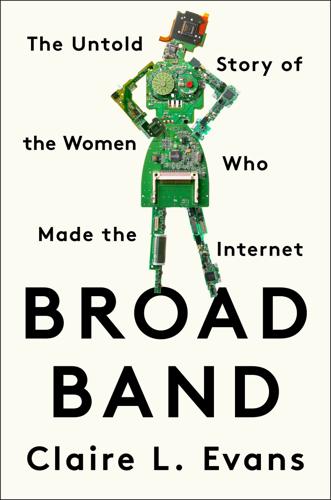
Broad Band: The Untold Story of the Women Who Made the Internet
by
Claire L. Evans
Published 6 Mar 2018
“As the population becomes widely familiar”: Scarlet Pollock and Jo Sutton, “Women Click: Feminism and the Internet,” in Cyberfeminism: Connectivity, Critique, Creativity, eds. Susan Hawthorne and Renate Klein (North Melbourne, AUS: Spinifex Press, 1999), 38. “a question of survival and power”: Old Boys’ Network, “Old Boys’ Network FAQ,” 2000, http://web.archive.org/web/20000424093036/http://www.obn.org:80/faq.htm. “Cyberfeminism only exists in the plural”: Cornelia Solfrank, “The Truth About Cyberfeminism,” 1998, www.obn.org/reading_room/writings/html/truth.html. “not about boring toys for boring boys”: Old Boys’ Network, “100 Anti-Theses,” 1997. www.obn.org/cfundef/100antitheses.html. “virtual techno-paradise of the new millennium”: Renate Klein, “The Politics of CyberFeminism: If I’m a Cyborg Rather Than a Goddess Will Patriarchy Go Away?”
…
Cyberfeminist artists made revolutionary CD-ROMs, created Web-based multimedia artworks, and built virtual worlds, taking many forms as they swam through the network seeking pleasure and knowledge. They wrote howling agitprop like the Cyberfeminist Manifesto for the 21st Century. They formed coalitions, mailing lists, and discussion groups, like the Old Boys’ Network, a group that proclaimed cyberfeminism to be, above all, “a question of survival and power and fun.” VNS Matrix even made a video game, All New Gen, in which the player must hack into the databanks of Big Daddy Mainframe, the Oedipal embodiment of the techno-industrial complex, and slime him and his cohort (“Circuit Boy, Streetfighter, and other total dicks”) into oblivion, sowing the seeds of the New World Disorder and ending the rule of phallic power on Earth.
…
Pac-Man, 226, 234 Multicosm, Ltd., 173 multimedia, 157, 159 Multi-User Dungeons (Multi-User Domains; MUDs), 143, 214 Myst, 165, 229 NASA, 24, 76 National Advisory Committee for Aeronautics, 24 National Defense Research Committee, 24 National Parks Department, 83 National Science Foundation, 130, 133, 153 NATO, 77 Navy, U.S., 29–31, 70, 75 Nehru, Jawaharlal, 160 Nelson, Ted, 154 Netscape, 172, 191, 209, 215 network effect, 172 Network Information Center (NIC), 112–19, 114, 121, 122, 166 Reference Desk of, 113 WHOIS, 119–20 networks, 25 packets in, 110, 126, 202 spanning-tree protocol for, 126–28 Network Working Group, 117 Neustrup, Chris, 97–98 Newsweek, 183, 184, 191 New York, 187, 210 New York City: 9/11 attack in, 150, 200–201 Silicon Alley in, 146, 182, 184, 186–88, 191–94, 196–201, 218, 219 New-York Historical Society, 150–51 New York Times, 9–10, 50, 136, 191, 194, 199, 218, 235 New York University (NYU), 134, 195, 196 Interactive Telecommunications Program, 182 NeXT, 168 Nightline, 233 9/11 terrorist attacks, 150, 200–201, 204 NLS (oNLine System), 111–12, 115, 116, 154, 210 NoteCards, 164–66, 168, 170 nuclear bombs, 36, 55 nuclear submarines, 76 Old Boys’ Network, 239–40 online publishing, see electronic publishing OS/360 operating system, 76 Oxygen Media, 216 Pack, Ellen, 205–13, 215, 216, 219–20 packets, 110, 126, 202 PDQ Committee, 71, 73 Pearce, Naomi, 133, 208 Pearl, Amy, 162 Pearl Harbor attack, 27–29, 32 People’s Computer, 98, 119 Perlman, Radia, 123–28 Phiber Optik, 136, 187 Pickering, Edward Charles, 23 PicoSpan, 132, 135 Pierce, Julianne, 237 Plant, Sadie, 11, 21, 80, 238 PLATO (Programmed Logic for Automatic Teaching Operations), 178–81 Pleasant Company, 235 Poetics (Aristotle), 226 Pollock, Scarlet, 239 Powers, Richard, 88 presidential election of 1952, 60 programming, 25, 26, 46, 52, 64–74, 75–80, 91–92, 106, 122–24, 162, 226 and association between women and software, 51–52 automatic, 65–69, 73, 119 caving compared with, 88 compilers in, 66–69, 73 computer-written programs, 59–60, 68 conference on crisis in, 77 Cosmopolitan article about, 75, 76, 77 debugging and, 66, 68, 74 decline in women in, 76–78, 93 distinction between operating and, 52 documentation in, 37, 65, 69 Editing Generator and, 73 educational requirements for, 78, 93 EMCC and, 56, 57 ENIAC and, 44–52, 79 first programs, 21 flowcharts and, 59 hardware development and, 77 Lovelace and, 20 machine code in, 66–68 magnetic-tape, 60–62, 79, 110 Mark I and, 32–33, 46, 59 perfection required in, 76–77 professionalization and masculinization of, 76–78, 93, 222, 228 punch cards and tapes in, 12–13, 32–33, 35–36, 39, 46, 47, 60–62, 79, 110 renamed software engineering, 77–78, 93 shortage in programmers, 76 social skills and, 78–79 Sort-Merge Generator and, 59, 68, 73 subroutines in, 37, 65, 67, 68 UNIVAC and, 58–59, 65 see also software programming languages, 46, 65–73, 79, 108 COBOL, 71–73 FORTRAN, 70, 88, 89, 93 Project One, 95–108, 119 Prose, Francine, 218 Pseudo, 186–87, 199 publishing, see electronic publishing punch cards and tapes, 12–13, 32–33, 35–36, 39, 46, 47, 60–62, 79, 110 Purple Moon, 227–36 Radio Corporation of America (RCA), 69 Radio Shack, 225 Raisch, Charles, 96 Razorfish, 191, 197–99 Reddit, 149 Reed, Lou, 192 Remington Rand, 60–63, 65–70, 73 Requests for Comments (RFCs), 117–18, 120, 129 Reson, Sherry, 95, 96, 103–7 Resource One, 96–108, 109, 130, 132, 215, 242 Resource One Generalized Information Retrieval System (ROGIRS), 98 Reynolds, Joyce, 117 Rheingold, Howard, 148–49 Rhine, Nancy, 132–33, 205–12 Richardson, Ann, 75 Rockett games, 230–36 Rolling Stone, 99 routers, 86, 93 routing algorithms, 124–28 Salon, 218 Sammet, Jean E., 70, 72, 73 San Francisco Bay Area, 95–98, 100–102, 104–6, 109, 135, 179 San Francisco Public Library, 106 San Francisco Switchboard, 97 Scientific Data Systems 940 (SDS-940), 96–99, 101, 103–5, 107, 109–10 search engines, 115, 154 Sears, 225 Secret Paths games, 232, 236 Sega, 233 Semantic Web, 174 Seneca Falls Conference on the Rights of Women, 11 September 11 terrorist attacks, 150, 200–201, 204 Sharp, Elliot, 187 Shepard, Alan, 24 Sherman, Aliza, 131–32, 140, 143, 214 Shirky, Clay, 181 Shone, Mya, 96, 104–6 Silicon Alley, 146, 182, 184, 186–88, 191–94, 196–201, 218, 219 Silicon Alley Reporter, 198–99 Simpson, O.
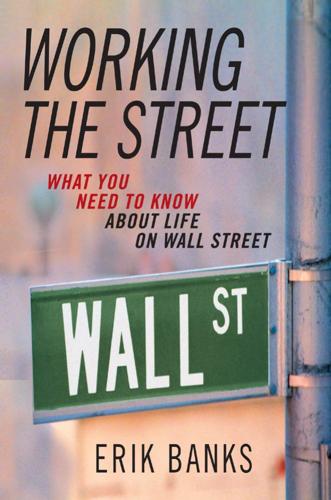
Working the Street: What You Need to Know About Life on Wall Street
by
Erik Banks
Published 7 Feb 2004
But we won’t feel too bad for those getting squeezed out. They’ll be sipping tropical drinks at their villas in Bermuda or hot chocolate at their chateaus in the Swiss Alps. 1 1 4 | W o r k i n g th e S tr e e t THE COZY OLD BOYS’ NETWORK AT THE TOP Let’s press on with that last thought by talking about something unpopular, something that some regard as absolutely shocking and positively untrue: Wall Street is still driven by a cozy “Old Boys’ network.” Who you know, what school you went to, and how you play the game is more important than what you know, what you do, and what sort of character you have. Wall Street is still primarily run by older men, men who have been in the business a long time and have very firm ideas about the way the world works.
…
Many others have not. Just remember that if you fight and lose, you’re finished at the firm, and you may be finished on The Street (funny how word gets around). It’s for you to decide how to play it. Fasten Your Seat Belt | 115 GOOD POLITICAL CONNECTIONS MEAN PAST MISTAKES DON’T MATTER Politics and the Old Boys’ network mean that if you’re in the right political camp, past job mistakes don’t matter all that much. If you know the right folks you can afford to have a couple of black marks beside your name because the system lets your sponsors gloss over them. Whatever you may have done that wasn’t particularly good or nice—maybe you accidentally blew up a client or let some key deals fall apart, maybe you failed to notice some control problems that could have prevented a loss—tends to get insulated and sanitized so that you can carry on with your career.
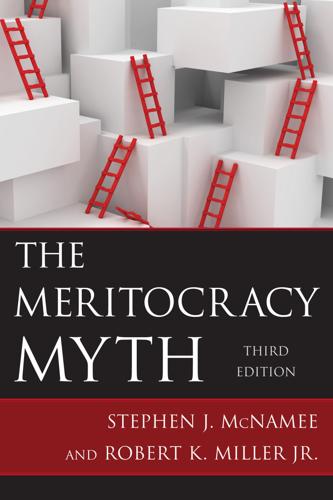
The Meritocracy Myth
by
Stephen J. McNamee
Published 17 Jul 2013
This problem is compounded by the departure of middle-class families from black inner-city areas, which has depleted the social capital of the remaining population and contributed to high levels of unemployment and welfare dependency (Wacquant and Wilson 1989; Wilson 1987, 1996). Women, likewise, have also historically confronted restricted access to privileged social networks, sometimes derisively referred to as “the good old boy network” that has contributed to a “glass ceiling” of limited (nonmerit) opportunities for advancement (McDonald, Lin, and Ao 2009). The process of this restriction is often subtle and can come in many forms. Women in business settings, for instance, may be restricted from inner male sanctums such as the golf course, the racquetball court, the bar, the poker game, or other arenas of mostly male interaction in which insider information is shared and business deals are often cut outside of “official” work environments.
…
Segregative tracking into “job ghettos”—dead-end jobs in departments or units with short mobility ladders, as well as organizational rules that do not permit movement out of such units—can be discriminatory. Assignments to “fast-track” jobs are often based on nonmerit criteria. Discriminatory informal workplace relations can create a “hostile workplace environment.” Selective mentoring, sponsorship, and exclusion from “old boy” networks can be discriminatory. Beyond these forms of discrimination, basic characteristics of the American industrial structure produce differentiated occupational opportunities that are allocated in discriminatory ways. As discussed in chapter 6, wages and benefits received for doing essentially the same job vary by the type of organization, industry, and region in which the job is performed.
…
The same pattern is reflected in other professions in which women have more recently approached parity with males at the entry level, including medicine and the professoriate. On top of these lag effects, however, discrimination continues. Even among younger cohorts, research shows that women do not ascend as often or as quickly as men. Old Boy Networks Regardless of where women are located in the labor force (i.e., be they doctors or secretaries), women as a group face unique nonmerit impediments that make it more difficult to compete evenly with men. One of these impediments is lack of sponsorship—one form of social capital. Since the most powerful and influential positions are usually held by men, women are at a critical disadvantage.

Posh Boys: How English Public Schools Ruin Britain
by
Robert Verkaik
Published 14 Apr 2018
The clergy, who had their own vested interest in the affairs of the school, complained: ‘They did not pronounce so well as those who be brought on the southern parts of the realm’.22 Later, received pronunciation, the language of the south of England and the upper classes, became the obligatory accent of the public school. However, it was the town of Shrewsbury in Shropshire that established the first old boys’ network. Founded in 1552, the school’s prestige was not defined by its teaching or headmaster but by a select set of border gentlemen who came from outside the town. The most glamorous was Sir Philip Sidney, nephew of the Earl of Leicester and grandson of the Duke of Northumberland, a ‘poet and Renaissance man’.
…
Greville’s continued pursuit of his poetry was wholly supported by a series of political sinecures granted to him by the wealthy Sidney family. According to the former Financial Times journalist and author David Turner: ‘The alliance between Greville and Sidney furnishes perhaps the first clear public school example of the old boy network.’23 The early public schools separated the ranks of the high nobility from the arriviste scholars and sons of the moneyed burghers. Most schools, by habit and custom, ended up adhering to a rigid class structure. The poor scholars who had won places at a public school endured bullying and beatings purely because of their lowly station.
…
It was his revenge on Lloyd’s, the insurance firm which had ruined his father during a notorious financial scandal in the late 1980s. Public schools breed networks, not communities. The Guppy/Johnson tape, secretly recorded by Guppy’s suspicious business partner, is a very extreme case of the old boys’ network but it illustrates the strength of the bonds between two Eton schoolmates. This perfectly understandable desire not to ‘let the side down’ can lead good people into bad situations, as C.S. Lewis understood: ‘To nine out of ten of you the choice which could lead to scoundrelism will come, when it does come, in no very dramatic colours.
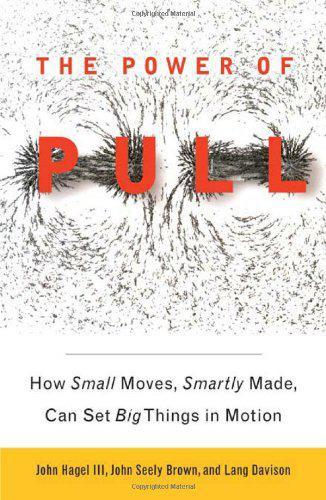
The Power of Pull: How Small Moves, Smartly Made, Can Set Big Things in Motion
by
John Hagel Iii
and
John Seely Brown
Published 12 Apr 2010
But the “productive friction”7 generated by unfamiliar circumstances can be surprisingly beneficial, as can surrounding ourselves with people whose ways of perceiving the world and solving problems differ from our own.8 Note that while serendipity often occurs in social networks, where we unexpectedly encounter friends of friends or even total strangers who prove helpful, we’re not simply talking about old-style networking, where you “work” a party or a conference for anybody and everybody who might prove useful to you. We’re not talking about the mutual back-scratching of the old-boys’ network, either, to fix parking tickets or an embarrassing situation with a relative. Nor are we talking about pulling strings behind the scenes, or making Machiavellian use of information. Anyone approaching pull in a mercenary, “what’s-in-it-for-me” fashion is likely to get burned. In fact, he or she will not really be practicing pull at all, as they will offer no reciprocal benefits to the people and institutions with whom they interact.
…
Rather than dictating the actions that people must take, pull platforms provide people with the tools and resources (including connections to other people) required for them to take initiative and creatively address opportunities as they arise. Common Misperceptions of Pull When we talk to people about pull platforms, we sometimes run into the misperception that pull is somehow manipulative, below-board, taking place behind the scenes in a smoke-filled room. But this is not your father’s old boys’ network. Academics often harbor the same assumption, figuring that pull involves the classic “broker” who, for his own gain, acts as an unreliable, duplicitous go-between among unsuspecting innocents. Shakespeare’s plays are full of such characters: Othello’s “friend” Iago, to name one. Some academics call such a broker Tertius Gaudens, “the third who benefits.”
…
Microsoft as example of shaping view motivates third-party investments Mindsets for management of collaboration of control, threatened by change Minnick, Mary Mirabilis Mobile phone industry Modular design of pull platforms described Li & Fung’s specific activities, outputs motivates passionate individuals to success Moore’s Law Mor ville, Peter Motorola Mousavi, Mir-Hossein Myanmar (Burma) Saffron Revolution National Scholastic Surfing Association “The Nature of the Firm” essay (Coase) NetWeaver Networks types of, described Newspapers 9/11 attacks Noll, Greg Nonprofit organizations experiencing performance pressures shaping strategies in Novell Oahu, Hawaii Obama, Barack Obstfeld, David The Office television program Old-boy networks Online communities. See Online social networks Online role-playing games as creation spaces Online social networks attracting, sustaining, quality attention complementary talent generated by serendipity with edge connections as environments for serendipitous encounters and findability See also Social networks; World of Warcraft (WoW) Open innovation beyond, to broad forms of collaboration defined model of product development catalyzed by shaping Shai Agassi pulls SAP and Web 2.0 into teams emerge naturally Open innovation platforms form teams offline to research solutions as specialized, connecting people unknown to each other See also InnoCentive open innovation platform Open-source software sites Orbitz Ortolano, Glauco Outsourcing Pace accelerated by technology, social networking as actions and assets for shaping strategies amplified by outside-in IT architectures amplified through IT investment amplified through mindset as element of journey toward pull igigig individualized as maximizing return on attention Page, Larry Participants as element in creation spaces as influencers in shaping platforms persuaded by shaping actions roles for pursuing shaping strategies See also Individuals Passion defining professions as of employees pursuing, with questing dispositions shared within geographic spikes as transforming, motivating Pasteur, Louis Payne, Dusty with edge connections becoming part of core network introduced wins Kustom Air Strike Payne, Lisa Payne, Wendell Peres, Shimon Perez, Carlota Performance declines of corporations Performance improvement in digital infrastructures driven, increased, by new knowledge flows and experience curves through pull techniques Performance measures.
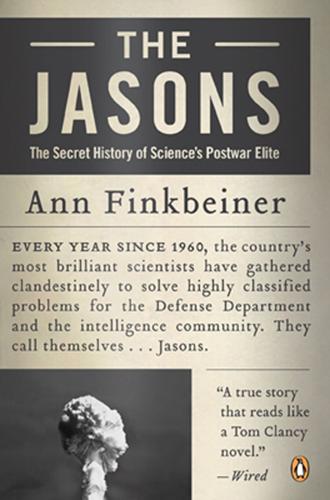
The Jasons: The Secret History of Science's Postwar Elite
by
Ann Finkbeiner
Published 26 Mar 2007
Watson added, “All Teller would do is develop bombs.” The steering committee had two big jobs, one of which was to select members. New members were invited from among their colleagues, collaborators, or students—that is, as Murph said, people whose characters and work were familiar. “It always happens with old boys’ networks,” Treiman said. “Your vision is a little narrow sometimes. You don’t know the other good people so well, so you don’t think of them. Those are all human traits.” New members weren’t official until voted on by all Jasons, and then they were given an informal trial period, which David Katcher said “was minimal, because it was such a goddamn nuisance to get cleared that you didn’t go into it unless you were pretty sure you wanted it and they were pretty sure to have you.”
…
Jason’s scientific diversity, which began with the Jason Navy and grew through the Jason climate studies, now with the biologist Jasons seems permanent. One side effect is that new members, who are coming from a wider pool, haven’t necessarily had previous long-standing academic ties with other Jasons. Jason no longer confines itself to physicists’ old boys’ networks; its members are now not only not physicists, they’re not boys and they’re not in the network. Paul Alivisatos and William Dally came to Jason’s attention only because they were members of IDA’s Defense Science Studies Group, a rotating group of young academics that advises the Defense Department and that is advised in turn by several older Jasons, including Callan, Happer, and Koonin.
…
“You can’t be tight…Goldberger has a loose style anyhow”: Sam Treiman interview by Finn Aaserud, AIP, December 18, 1986, 28. Townes said they were “somewhat figureheads,” though reassuring and encouraging: Charles Townes, interview by Finn Aaserud, AIP, May 20–21, 1987, 120. “It always happens with old boys’ networks…all human traits”: Sam Treiman interview by Finn Aaserud, AIP, December 18, 1986, 31. New members weren’t official…“and they were pretty sure to have you”: David Katcher, interview by Finn Aaserud, AIP, April 16, 1986, 32. “All sorts of ways…Jason’s possible contribution would develop”: Ibid. 44.
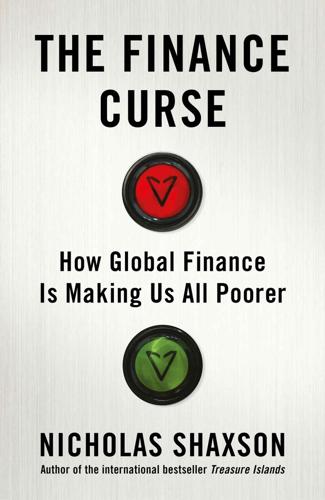
The Finance Curse: How Global Finance Is Making Us All Poorer
by
Nicholas Shaxson
Published 10 Oct 2018
The new market first came to the notice of officials at the Bank of England a few months before the Suez crisis, when they saw that the Midland Bank (now part of HSBC), one of the City’s more adventurous institutions, was taking US dollar deposits unrelated to any commercial or trade deals. Under Bretton Woods this was classified as speculative activity, which wasn’t allowed. The City of London in those days was an old boys’ network of elaborate rituals and agreement by gentleman’s handshake. Financial regulation was achieved, often quite effectively, by the Bank of England governor inviting in the relevant members of the banking establishment for tea and using discreet cultural signals to let them know they were stepping out of line.
…
The US inserted anti-monopoly principles into the constitutions of the defeated aggressor countries as one of its ‘four Ds’ for postwar governance: Denazification, Deconcentration, Democratisation, and Decartelisation. For a while Britain took all this rather seriously too, though in its own way. For Britain’s financial sector, run by an old boys’ network which had grown fat off the profits of empire and protected from international competition, the problem was less about monopolising giants like J. P. Morgan or Standard Oil, and more about gentlemen’s agreements to carve up turf, restrict competition and trouser the resulting profits.9 But after the war Britain’s bloodied workers were in no mood for compromise, and Clement Attlee’s Labour Party ran in the 1945 election with a manifesto that brassily declared, ‘The Labour Party is a Socialist Party, and proud of it.’
…
‘The basic common sense of the British public,’ assured John Redwood, the head of her policy unit, ‘will not be tempted into Get-Rich-Quick Limited.’4 Grown-up financial players and sophisticated customers could look after themselves. But when the swaggering American investment banking giants burst into town from the late 1980s, laden with dollars, the flat-footed British players, who had grown complacent in their stitched-up old-boy networks were competitive roadkill. The Americans didn’t just bring money, though; they also brought dangerous new ways of doing things. A lot of City business had until then been done by partnerships, whose members got rich when things went well but who risked collectively losing their shirts in a disaster.
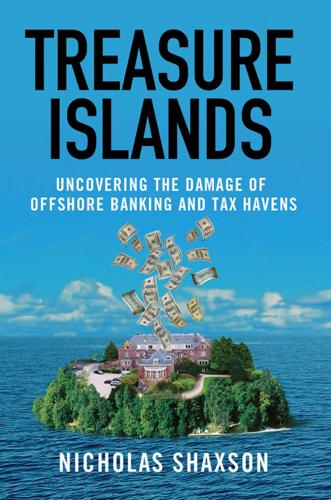
Treasure Islands: Uncovering the Damage of Offshore Banking and Tax Havens
by
Nicholas Shaxson
Published 11 Apr 2011
“We would be wise, I believe, not to press the Midland any further,” the Bank concluded.3 Regulation in the City of London in those days typically consisted of your being invited to the Bank of England for tea, where an eyebrow would be raised in your direction if you were out of line. The tradition in London then, as today, was to rely heavily on self-regulation by financial firms, in stark contrast to the United States and its regulatory authorities’ far more activist, rules-based approach. The City of London proceeded along the lines of a grand British Old Boys network, bound by elaborate rule and ritual. Discount brokers would wear top hats, and every evening in the rush hour a platoon of guardsmen would troop through the City in scarlet tunics and bearskins. “A banker could show his disapproval of sharp practice by crossing the road,” wrote Anthony Sampson in the 2005 edition of his book Anatomy of Britain.
…
The type of people doing this were bankers, senior merchants, and senior politicians. You don’t look at people’s hands: you feel a lump there when you shake. For me it felt slightly dirty—covert, as if we were all part of some dirty deal; a schoolboy thing.” “Their thinking is very much of the Old Boy network—you are either one of us, or you are against us,” he continued. “It means they can trust you to do the right thing without having to be told—an insidious meaning of the word trust.” He was labeled untrustworthy and was frequently called “Not One of Us.” The media was captured. The dominant newspaper in Jersey was owned for many years until 2005 by a company chaired by Senator Frank Walker, head of the powerful Jersey Finance and Economics Committee and one of the most vociferous cheerleaders for Jersey’s finance industry.
…
J., 66 capital controls, 56–61, 63, 82, 84, 240n16,17, 246n11 “capital flight,” 20, 30, 53–4, 57–8, 93, 97, 110, 139–43, 160, 183, 250n26 European flight capital (1930s), 58 capital flows, 9, 18, 20–1, 28–30, 32, 50–61, 63, 75, 78, 80, 82, 84–5, 92–3, 108–9, 112, 127, 130–1, 138–40, 144, 164–5, 183, 217, 219, 221–2, 237n44, 240n16,17, 241n9, 246n4,11, 257n50 controls on: See capital controls and corporations, 29 free, 55–7, 219 inflows, 21, 30, 58–60, 109, 165, 237n44, 241n9 and Keynes, 50–61 and language, 30 outflows, 30, 75, 92, 112, 138–9, 183, 217, 237n44, 241n9 and social capital, 164–5 See capital controls capital gains tax, 155, 162–3 Capone, Al, 88 Carlisle, Rodney, 23 Carter, Jimmy, 114, 117, 200 Carteret, George, 106 Carville, James, 52 Cary, William, 124 “casino banking,” 67 Castle Bank and Trust (Cayman) Ltd., 100–1 Castro, Fidel, 88–9, 93, 99 Cato Institute, 150, 155, 163 Cayman Islands (British overseas territory), 6, 10, 12–13, 18–19, 23–4, 26–7, 44, 46, 74, 79, 82, 87, 90–6, 99–103, 106, 125–6, 128, 132–5, 161, 163, 165–7, 171–92, 211–12, 214–15, 223, 234n12, 235n22, 236n31, 243n59, 248n39, 256n40 British power structure within, 18, 94 and Confidential Relationships (Preservation) Law, 101–2 and denial of tax haven status, 12–13 and drug money, 101–2 employment in, 171–92 and Enron, 23 and hedge funds, 26 history of as tax haven, 90–6 “Star Trust,” 46 statistics on, 18 Cayman Islands Monetary Authority (CIMA), 214–15 Center for Freedom and Prosperity (CF&P), 150, 160 Center for International Policy (Washington, D.C.), 29 Central Bank of Philippines, 141 Chait, Jonathan, 170 Chang, Ha-Joon, 59 Charles II of England, 72–3, 104 Chase Manhattan, 107–8, 112, 114, 172, 197 Chase National Bank, 194–7, 200–1 chasse gardée, 3 Chenoweth, Neil, 7 Chicago, 36, 40–1, 61, 125 meatpackers, 36, 40–1 China, 1, 12, 14, 16, 27, 36–7, 60, 71, 81, 85, 88, 105–6, 121, 147–8, 164, 169, 217 and Britain, 105–6 statistics on oil, 1 Chirac, Jacques, 4 Christensen, John, 19, 103–4, 115–16, 146, 150, 170, 182–91, 207, 233n1 Churchill, Winston, 49 CIMA: See Cayman Islands Monetary Authority Cisco, 14 Citicorp (Citibank), 8, 80–1, 141–2, 152, 194–6, 201 Citigroup, 20, 68, 103 Citizens for Tax Justice, 112, 159, 170 City of London (England, U.K.), 17–19, 24, 26, 54–5, 61, 63–86, 87–8, 98, 103, 105–6, 109, 115, 129–30, 134, 136, 147–8, 182, 212, 222, 224, 235n18, 236n23,25,28, 239n13, 242n27,32,34, 243n36,37,42, 244n72 and Britain’s offshore spiderweb, 68–9 and the Caribbean, 87–106 central organization of, 70–4 See City of London Corporation and City Cash, 74 controlling role of, 45–6, 96–6 and “domicile” rule, 69 global reach of, 18 history of, 63–86, 87 See “Big Bang”; Euromarkets and international financial deregulation, 85–6 and lending, 76–8 and “London-grad,” 69 and loopholes, 67–8 as old boys network, 64–5 and “rehypothecation,” 68 and secrecy, 69 and Special Purpose Vehicles (SPVs), 26 tentacles of: See British Crown Dependencies; British overseas territories; British zones of influence and the U.S., 67–8, 78–84 City of London Corporation (Corporation of London), 70–4, 76, 85–6, 224, 242n25, 243n36–37, 244n72 head of: See Lord Mayor of London history of, 71–2 and voting rights, 71 civil society, 170 Clinton, Bill, 52, 119–20, 150, 160 Clinton, Hillary, 30, 58 Coalition for Tax Competition, 150 Cold War, 75, 109, 138 Coleman, Norm, 121 Colombia, 26, 101, 111, 133, 136 Medellin drug cartel, 101, 133 colonialism, 2–8, 20, 23, 65, 88–9, 93–5, 104–5, 117, 138, 147, 161, 184 Commodity Futures Trading Committee (CFTC), 68 Compact of Free Association, 22 comparative advantage theory, 16 competition, tax, 149–56 Confidential Relationships (Preservation) Law, 101–2 Congdon, Tim, 66 ConocoPhilips, 22 Cook, Geoff, 168 Cornfeld, Bernie, 97–8 corporate governance, 39, 85, 122–5, 201–2 corporate responsibility, 228–9 The Corporation (Bakan), 158 Corporation Trust (Delaware), 125–6 corruption, 126–8, 229 Corruption Perceptions Index (CPI), 126 country-by-country reporting, 222 Cowperthwaite, Sir John, 105 Craven, John, 81 credit cards, 193–201 criminal money See arms trafficking; bribes; drug money; mob/mafia; terrorist financing Crocodile Dundee, 33 Crook, Kenneth, 93–5 Cuba, 88–9, 93 currency trading, 63–4, 70 Cyprus, 10, 27, 33, 138, 238n52 Dai Xianglong, 86 Davison, Daniel, 81 Deepwater Horizon, 22 de la Torre, Lisandro, 36, 38, 46–7 de Rugy, Veronique, 150 deferrals, tax, 112–13 Delaware, 22, 26, 39–40, 120–1, 123–6, 150, 166, 193–201, 204, 207–12, 214, 222, 228, 247n31, 248n34,39,42, 254n3,4, 255n18, 256n40 Chancery Court, 124–5, 248n34 Corporation Trust office, 125–6 history of offshoring, 39–40, 123–6 and jurisdictions, 193–201, 204, 207–12, 214 and securitization/bundling, 26, 125 and usury, 193–5, 200, 204 Delaware Statutory Trust Act (1988), 201 DeLay, Tom, 160–1 Deloitte & Touche, 25, 202, 209 DeLong, Bradford, 49, 55, 158–9 democracy, 7–8, 13, 31, 33, 42, 56, 71, 82, 102, 113, 123, 129, 131, 144–8, 162, 164, 170, 182, 185, 189, 192, 195–6, 198, 206, 210, 212, 219, 222, 224 and taxation, 144–8 Democratic party, 31, 82, 123, 185, 195, 198, 254n4 Democratic Republic of Congo, 131 deregulation, 32, 52, 66, 74–6, 85, 87, 115, 129–30, 132, 155, 159, 182, 193, 200, 209–10, 212, 217 developing countries, 8, 28–30, 57–60, 91, 93, 97, 100, 108, 126, 129–48, 155–6, 164, 169, 183, 217, 222–5, 227, 229, 236n29, 237n44, 240n22, 246n13, 250n26 and blame-the-victim, 8, 29, 140–4 and capital, 57–60 and capital flight, 139–43 and mobile phone charges, 148 and the offshore system, 129–48 and reform, 223–4 and sovereign debt funds, 143–4 and tax, 144–8 and tax treaties, 147–8 See Bank of Credit and Commerce International Deviers-Joncour, Christine, 5 Dill, James B., 39 Disney, 7, 88 Double, Paul, 73 double taxation, 26, 41–2, 130, 146 defined, 26 “Double Irish,” 14 drug money, 6, 9, 18, 20, 22, 26–7, 29, 88, 101–2, 111, 120, 131–3, 136 du Pont, Pierre S.
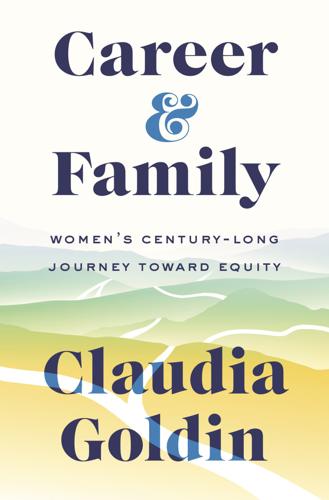
Career and Family: Women’s Century-Long Journey Toward Equity
by
Claudia Goldin
Published 11 Oct 2021
The social norms of communities and families provided less official but just as potent injunctions that mothers should not work when their children were young—or ever. These statutory and procedural barriers that once constrained women’s ability to achieve have, for the most part, been dismantled. Social norms have largely changed. But sexism, old-boy networks, and sexual harassment remain. The journey toward the career and family destination has been an arduous one—a long, twisting road trip with ups and downs, blockades and tolls. Though the ambitions of women to achieve career and family began long before, our adventure will start a little more than a century ago, when reliable, trustworthy sources were first recorded, especially in the US census of population.
…
See dentists; doctors; nurses; pharmacists; veterinarians medical schools, women in, 20, 129, 129 Meek, Carrie, 106 Meek, Kendrick, 106 men: career success for, 143–45, 256; college-graduate, 5–6, 39–42, 41, 45, 91–92, 104, 127–28, 265n40–42, 274n86, 275nn91–92, 278n104, 282n128; as fathers (see fathers; parents); full-time work and parenting by, 148, 299n234; gender equality supported by, 234–35; identity-career link for, 131; married (see husbands; marriage); old-boy networks of, 2, 20, 179; qualities and aspirations for mates of, 44–45; social norms incentivizing work of, 72, 271n72; white-collar work for, 70. See also gender–related entries #MeToo movement, 4, 224, 297n224 mommy track, 1 Moore, Mary Tyler, 236, See also The Mary Tyler Moore Show (TV show) Morella, Connie, 145 Morrison, Toni, 30 mortality rates, 52–53 mothers: age at birth of children, 8, 19, 37, 44, 94, 133–40, 283–84n137; caregiving increases among, 207–8, 228, 293n207, 298n228; college-graduate women as, 6–9, 19 (see also childbearing and childrearing); COVID-19 pandemic effects on, 16, 221–22, 225–31, 298nn228–29; employment discrimination for, 3; gender earnings gap for, 5, 11–13, 160, 163, 165–75, 179, 182–86, 189, 191–92, 288n162, 289n168; maternity leave for, 134, 201, 296n218; mommy track for, 1; mortality rates among, 52; single (see single parents); social norms for those with preschool children, 99–100, 100, 104–5, 108, 124; stay-at-home, 1, 85, 105, 179.
…
See single women Nineteenth Amendment, 18 Notable American Women, 25–26, 53–58, 268n53, 270–71n65 Notestein, Wallace, 82 nurses, 4, 95, 156 Ocasio-Cortez, Alexandria, 20, 147 occupational segregation, 4, 20, 156–57, 286–87nn156–157 O’Connor, Sandra Day, 21–22, 176, 177 office workers: Group Two women as, 69–70, 76–77, 271n69; marriage bars for, 20, 28, 76–77, 79–80, 89; re-entry into labor force as, 30 old-boy networks, 2, 20, 179 oleomargarine controversy, 81 Omnibus Social Security Act (1935), 231 on-call at home responsibilities: couple inequity in, 9, 11–13, 172, 205; gender earnings gap and, 171–72, 173, 183, 186, 205 on-call at work responsibilities: couple inequity in, 9, 11, 13, 205; gender earnings gap and, 158, 172, 173–74, 184–86, 205; two-tiered system eliminating, 196–97.
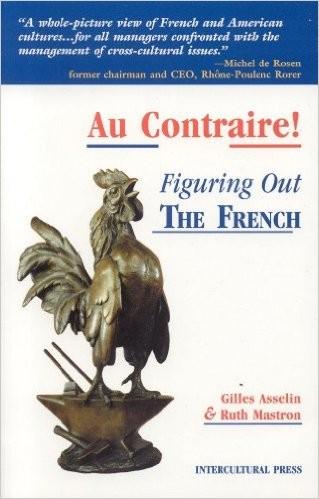
Au Contraire: Figuring Out the French
by
Gilles Asselin
and
Ruth Mastron
Published 1 Dec 2000
Relations between the two are collegial rather than adversarial, as is often the case in the United States. It is not unusual to find a major privatesector company managed by graduates of the same grande école with considerable public-sector experience. Their background in l’Administration (of the country) allows them to build particularly effective old-boy networks of power and influence, which can be used to advantage in their new roles. • Competence and performance are not the only considerations for being a successful manager in France. Your personal background, seniority, education, and other intangible elements, such as your personal network of information sources, might play at least an equally important role.
…
See de Gramont, Sanche Muslims, 127–28, 132 N Napoléon, 14, 15, 26–27, 128 Napoleonic Code, 27, 136 National Front Party (F.N.), 26, 113, 114 national identity, 115, 155, 157, 158, 159–61 national independence, 29, 156 National School of Administration (ENA), 115, 126 native language (safety valve), 188, 193 NATO (North Atlantic Treaty Organization), 29, 156 negotiations, business, 201, 210–13 newspapers: Le Canard Enchaîné, 143 Libération, 130 Non merci, Oncle Sam, 157 296 O old-boy network, 21, 221, 232 Orleman, Paul, 166, 195 P pan-European identity, 159–60 Paris, 15, 28, 47, 63, 105, 183 Pascal, Blaise, 74 Pépe Le Pew, 35 perfection, attainment of: attitudes toward, 36, 138–41 performance appraisals. See job performance appraisals personal assessment vs. impartial test, 152–54 personality development, influences on, 69–70 pessimism vs. optimism, 137–38 as reflected in language, 138 Peyrefitte, Alain, 131 political leaders, 217 authority vested in strong, 15, 118 as examples of individualism, 156 requirements for, 115–17 response to American hegemony, 29, 157–58, 161–62 political parties, 113–115 political role, international, 154–56 politicians: attitudes toward, 117–20 media focus on private lives of, 118–20, 142 politics, 89, 111–21 ethnic minorities underrepresented in, 130–31 influence on daily life of, 111–13, 115, 156 women in, 120–21, 256 polychronism vs. monochronism, 194–96, 198, 233 deadlines and, 36, 180, 193, 195 Index 297 Polytechnique, 253, 256 Poulidor, Raymond, 204 power: in corporate setting, 183, 209–10 networks/blocs, 199–200, 237, 242 presentation styles, 37, 107, 180, 196–97 privacy, psychological, 22, 43, 53–57, 70, 77, 82, 178, 183–84, 189 private vs. public spheres, 22, 56, 67, 83, 135, 183–84 Protestantism, 127, 162 Pyramide du Louvre, 28 Q qualitative vs. quantitative evaluations, 152–54 quality vs. production schedules (speed), 201, 213–14 quoted remarks of prior sojourners, 264–67 R Rally for France (R.P.F. party), 114 Rally for the Republic (R.P.R. party), 114 rationalism, 13–14 deductive vs. inductive reasoning, 75, 137, 149–50 intellectual vs. pragmatic approaches, 146–49, 233 logic, 14, 149, 196, 211 theoretical vs. empirical analyses, 149–52, 169, 256 realism vs. idealism, 138–41, 142 regional identity, 14, 74, 160, 162 regions: Alsace, 14, 160 Alsace-Lorraine, 105 Basque, 10, 14, 160, 161, 162 Brittany, 14, 160, 162 Burgundy, 141 298 Co^ té d’Azur, 61 Gascony, 160 relationship-oriented vs. action-oriented societies, 235.
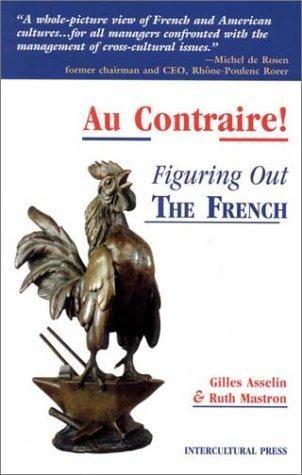
Au Contraire!: Figuring Out the French
by
Gilles Asselin
and
Ruth Mastron
Published 14 Apr 2001
Relations between the two are collegial rather than adversarial, as is often the case in the United States. It is not unusual to find a major privatesector company managed by graduates of the same grande école with considerable public-sector experience. Their background in l’Administration (of the country) allows them to build particularly effective old-boy networks of power and influence, which can be used to advantage in their new roles. • Competence and performance are not the only considerations for being a successful manager in France. Your personal background, seniority, education, and other intangible elements, such as your personal network of information sources, might play at least an equally important role.
…
See de Gramont, Sanche Muslims, 127–28, 132 N Napoléon, 14, 15, 26–27, 128 Napoleonic Code, 27, 136 National Front Party (F.N.), 26, 113, 114 national identity, 115, 155, 157, 158, 159–61 national independence, 29, 156 National School of Administration (ENA), 115, 126 native language (safety valve), 188, 193 NATO (North Atlantic Treaty Organization), 29, 156 negotiations, business, 201, 210–13 newspapers: Le Canard Enchaîné, 143 Libération, 130 Non merci, Oncle Sam, 157 296 O old-boy network, 21, 221, 232 Orleman, Paul, 166, 195 P pan-European identity, 159–60 Paris, 15, 28, 47, 63, 105, 183 Pascal, Blaise, 74 Pépe Le Pew, 35 perfection, attainment of: attitudes toward, 36, 138–41 performance appraisals. See job performance appraisals personal assessment vs. impartial test, 152–54 personality development, influences on, 69–70 pessimism vs. optimism, 137–38 as reflected in language, 138 Peyrefitte, Alain, 131 political leaders, 217 authority vested in strong, 15, 118 as examples of individualism, 156 requirements for, 115–17 response to American hegemony, 29, 157–58, 161–62 political parties, 113–115 political role, international, 154–56 politicians: attitudes toward, 117–20 media focus on private lives of, 118–20, 142 politics, 89, 111–21 ethnic minorities underrepresented in, 130–31 influence on daily life of, 111–13, 115, 156 women in, 120–21, 256 polychronism vs. monochronism, 194–96, 198, 233 deadlines and, 36, 180, 193, 195 Index 297 Polytechnique, 253, 256 Poulidor, Raymond, 204 power: in corporate setting, 183, 209–10 networks/blocs, 199–200, 237, 242 presentation styles, 37, 107, 180, 196–97 privacy, psychological, 22, 43, 53–57, 70, 77, 82, 178, 183–84, 189 private vs. public spheres, 22, 56, 67, 83, 135, 183–84 Protestantism, 127, 162 Pyramide du Louvre, 28 Q qualitative vs. quantitative evaluations, 152–54 quality vs. production schedules (speed), 201, 213–14 quoted remarks of prior sojourners, 264–67 R Rally for France (R.P.F. party), 114 Rally for the Republic (R.P.R. party), 114 rationalism, 13–14 deductive vs. inductive reasoning, 75, 137, 149–50 intellectual vs. pragmatic approaches, 146–49, 233 logic, 14, 149, 196, 211 theoretical vs. empirical analyses, 149–52, 169, 256 realism vs. idealism, 138–41, 142 regional identity, 14, 74, 160, 162 regions: Alsace, 14, 160 Alsace-Lorraine, 105 Basque, 10, 14, 160, 161, 162 Brittany, 14, 160, 162 Burgundy, 141 298 Co^ té d’Azur, 61 Gascony, 160 relationship-oriented vs. action-oriented societies, 235.
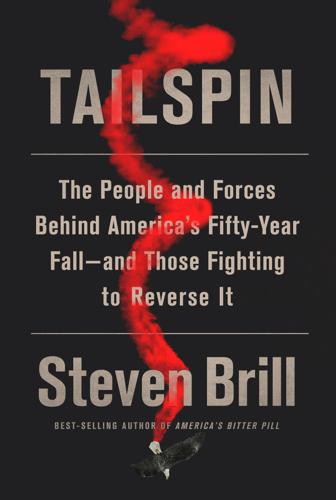
Tailspin: The People and Forces Behind America's Fifty-Year Fall--And Those Fighting to Reverse It
by
Steven Brill
Published 28 May 2018
In the 1960s, colleges and universities, and then the country generally, began to apply a long-treasured, although usually ignored, American value—meritocracy—to challenge the old-boy network in determining who would rise to the top. That made those at the top smarter and better equipped to dominate what was becoming a knowledge economy. It was one of the twentieth century’s great breakthroughs for equality. As you will read, I was a beneficiary of the change and also played a role in embedding it in the legal industry. It had the unintended consequence, however, of entrenching a new aristocracy of rich knowledge workers who were much smarter and more driven than the old-boy network of heirs born on third base. From the 1970s on, they upended corporate America and Wall Street with inventions in law and finance that created an economy built on deals that moved corporate assets around instead of building new assets.
…
He teaches journalism at Yale, where he founded the Yale Journalism Initiative to enable talented young people to become journalists. In 2018, he co-founded NewsGuard, which rates the legitimacy of online news sites. He lives in New York City. The equalizer: Yale College Admissions Dean R. Inslee “Inky” Clark, in 1965. He discarded the “old boy” network in favor of admitting applicants (including the author) on their merits and regardless of their ability to pay. The meritocracy revolution was a breakthrough for equality but had unintended consequences. Credit 1 Yale Law professor Daniel Markovits, addressing the school’s 2015 graduating class.
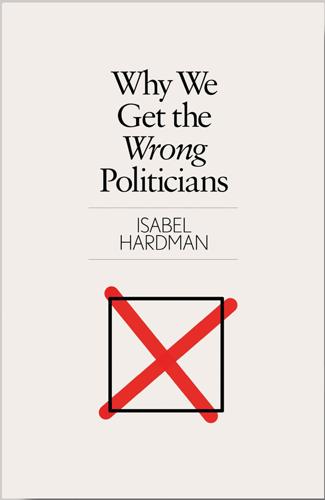
Why We Get the Wrong Politicians
by
Isabel Hardman
Published 14 Jun 2018
was the question people often asked her after she’d pointed out that if they cared so much about the problems in their community, they too should get involved. How do people end up being asked to get involved in politics? Generally, they’re already in a network socially or professionally that makes this more likely. The saying ‘it’s who you know’ applies largely to old boys’ networks, which are still alive and well in politics, but there are many other types of politically friendly networks, such as jobs with established links to politics, including the law. When the Equality and Human Rights Commission examined representation in Westminster with its Pathways to Politics report, it suggested that those from disadvantaged backgrounds were less likely to have been ‘socialised’ in politics; that is, that their family backgrounds and education meant they just hadn’t come into contact with politics as a line of work, let alone politicians themselves.
…
INDEX abortion, 66–7, 113 Abu Qatada, 157 abuse, 6, 28–30, 74, 154, 164–7 addiction, xviii–xx, 6, 30, 160–62 adoption, xvi, 233 Advice Plus, 67 Afghanistan War (2001–14), 257 Airports Commission, 212 alcohol, xvii, xviii, 44, 140, 141, 157–62 Alcohol Concern, 160, 162 All-Party Parliamentary Group on Fire Safety, 203 all-women shortlists (AWS), 15 Alternative Vote referendum (2011), 270 Altmann, Rosalind, 196 ambition, 120 Amin, Afzal, 7–8, 18 anorexia, 162 Antcliffe, Katherine, 143 anti-Semitism, xii, 99, 154, 165, 179 asbestos, 232 Asda, xiv Ashfield, Nottinghamshire, xxv al-Assad, Bashar, 258 asylum, 61 Atkinson, Andrew, 21 Atlantic, The, 260 Atlas Stones, 3 Atos Healthcare, 242, 243 Austen, Jane, 165 Australia, 65, 109 aviation policy, 211–13 Bad Laws (Johnston), 226 Bailey, Bex, 147 Baker, Kenneth, 226 Baker, Steve, 77–8 Balls, Edward, 53, 186, 195 Bank of England, 89 Barker, Greg, 174 Barwell, Gavin, 204 Bath, Somerset, 29, 178–9 Batley and Spen, Yorkshire, 72–4 bedroom tax, 234–41 benefits, xx, 28, 61, 68, 87, 94, 107, 198, 234–45 Benghazi, Libya, 259 Benn, Anthony ‘Tony’, 172 Bennett, Kate, 143 Bercow, John, 55–6, 112, 269–70, 271, 274 bereavement, 122 Berger, Luciana, 165 Bermondsey and Old Southwark, London, 117 Best, Richard Stuart, Baron Best, 238 Billington, Polly, 9–10, 31 bills, 85–100, 105–6, 113–5, 127, 136–7, 273 ‘Christmas tree bills’, 105–6 Crime and Courts Bill (2012–13), 223–6 European Union Withdrawal Bill (2017–), 93, 262 Health and Social Care Bill (2011–12), 88, 127–8, 245–52 Immigration Bill (2014), 93 Investigatory Powers Bill (2015–16), 87 Legal Aid, Sentencing and Punishment of Offenders Bill (2011–12), 98, 230–34 and rebellion, 17, 92, 94–6, 136–7, 229 Welfare Reform Bill (2011–12), 235–41 Birmingham Yardley, 75 Birstall, Yorkshire, 73 black pudding, 109 Blackford, Ian, 22 Blackman, Robert ‘Bob’, 104–5 Blackwood, Nicola, 78 Blair, Anthony ‘Tony’, xx, 27, 175, 177, 216, 251 and Field’s welfare reform proposals, 129–30 and Iraq invasion (2003), 254–6, 259 Royal Commission on social care, 216 ‘sofa government’, 259 Teenage Pregnancy Strategy (1999), 135 Blears, Hazel, 154 bobbing, 52 de Bois Nick, 181, 182 Boles, Nicholas, 130 Bolsover, Derbyshire, 54 Bonehill-Paine, Joshua, 165 Borwick, Victoria, 202, 205 Botting, Peter, 10–11, 17 Brady, Graham, 85, 89, 268 Brand, Russell, xi–xii Bray, Angie, 104–5 bread-throwing, 78 Brennan, Kevin, 91 Brexit, x, 65, 93, 136, 175, 212, 262–5, 270–71 Brexit Select Committee, 265 Bridgen, Andrew, 239 British Broadcasting Corporation (BBC), xi–xii, 99, 203, 205, 222, 258 British Medical Association, 248 Brixton, London, 193 Brooke, Heather, 45 Brown, Gordon, 65, 121, 134, 196, 258 Buck, Karen, 67–70, 79, 205, 238 Budgets, 53, 101, 110, 134, 157, 194–8, 235 Building Control Alliance, 206 Bundestag, 273 Burn Book, 277 Burnham, Andrew, 216, 220, 279 Burstow, Paul, 248 Bush, George Walker, 255 Butler Review (2004), 258 by-elections, 6, 9 2012 Rotherham, 15 2014 Clacton, 139 2016 Richmond Park, 212 Byrne, Liam, xviii, 161 Cable, Vince, 41 Cairns, Alun, 79 Cameron, David, xv, xix, 12, 30, 58, 112, 127, 175, 196 constituency work, 64–7, 175, 234 EU negotiations (2016), 54 EU referendum (2016), 175 expenses scandal (2009), 45 Forestry Commission privatisation (2011), 117 and Halfon, 122 Health and Social Care Bill (2011–12), 127, 246, 248–9, 251 and Heathrow Airport third runway, 212 Islamic State airstrikes (2014), 259 legal aid cuts U-turn (2016), 64, 82, 233–4 Libya intervention (2011), 259–62 Lopresti–Jenkyns affair (2015), 142 on Major, 175 and Morgan, 127 National Security Council, establishment of (2010), 259 ‘neighbours from hell’, 223 ‘new politics’, 88 and pay rise, 48 and peerages, 98 and phone hacking, 223–4 reshuffles, 121 resignation (2016), 175–6, 177 and riots (2011), 222 and Smith, 134 and Syria debate (2013), 258 ‘We’re all in this together’, 194 and women’s issues, 201–2 Cameron, Ivan, 66 Cameron, Samantha, 201–2 Camira Fabrics, 109 Campaign to Protect Rural England, 116 Campbell, Menzies, 53–4, 161 Canada, 79 Cann, Jamie, 160 caravan tax, 195 Care Quality Commission, 65, 217 Carlton Club, 34 Carswell, Douglas, 96, 139 cash-for-access scandals, xii Census of Local Authority Councillors, xxiv Chakrabarti, Shami, 99 Champion, Sarah, 15 Change.org, 117 Channel Four, 150 charity tax, 196 Chaytor, David, 46 Chief Medical Officer, 67 Chilcot inquiry (2009–16), 255, 256, 258, 261 children, 9, 16, 28, 154–6, 280 child benefit, 198 childcare, 9, 16, 280 China, 109 Choudhry, Roshonara, 76 ‘Christmas tree bills’, 105–6 church roof tax, 196 Churchill, Winston, 57, 60 circular chamber, 56–7 City Seats Initiative, 26 clapping, 52 Clarke, Kenneth, 174–5 Clarke, Mark, xxi–xxii, 8, 18, 24 Clegg, Nicholas, 12, 99, 248, 249 Clifford Chance, xxi Coalition government (2010–15) Crime and Courts Bill (2012–13), 223–6 Dilnot Commission, 216–17 and fire regulations, 207 Fixed Term Parliaments Act (2011), 184, 213 Health and Social Care Bill (2011– 12), 88, 127, 245–52 House of Lords Reform Bill (2012), 272 legal aid cuts, 64, 82, 229–34 and National Trust, 116 Omnishambles Budget (2012), 134, 194–7 and petitions, 118 and Wright report (2010), 271–2, 274 Welfare Reform Bill (2011–12), 235–41, 242 Coffey, Therese, 52, 80 Colne Valley, Yorkshire, 109 Colorado, United States, 3 committee rooms, 37 Communities and Local Government, 106, 130, 133, 203, 222, 236–7 community charge, 193, 197 Cones Hotline (1992), 226–7 conferences, 6, 7 Conservative Party Amin scandal (2015), 7–8, 18 and bills, scrutiny of, 84, 85, 88, 89–90, 93, 96–7 Budgets, 101, 134, 194–8, 235 Carswell defection (2014), 96, 139 City Seats Initiative, 26 Cones Hotline (1992), 226–7 constituency work, 64–7, 77–9, 80 cost of candidacy, 18, 19, 21, 32 Criminal Injuries Compensation Scheme (2012), 103–5 Dangerous Dogs Act (1991), 226 divorce rates, 138 Education Regulations (2015), 102–3 EU Withdrawal Bill (2017–), 93, 262 expenses scandal (2009), 45 Health and Social Care Bill (2011–12), 88, 127, 245–52 and Heathrow Airport third runway, 211–13 heckling, 53–4 and homosexuality, 16, 29 and housing benefit, 235 and incapacity benefit, 242 Immigration Bill (2014), 93 Islamic State airstrikes (2014), 259 Johnson, suicide of (2015), xxi and legal aid, 64, 82, 229–34 legislation, scrutiny of, 84, 85, 88, 89–90, 93, 96–7 Libya intervention (2011), 259–62 long-term economic plan, 110 losing candidates, 34, 178–83 membership figures, xxii National Security Council, establishment of (2010), 259 and National Trust, 116 1922 Committee, 85, 89, 176, 268 parliamentary assessment boards, 7–8, 14 parliamentary private secretaries (PPSs), 125 partners and spouses event (2015), 140 peers, 98 and phone hacking, 223–6 Plebgate (2012), 167 and pointless questions, 109–12 poll tax (1989–90), 193, 197, 219 Reckless defection (2014), 158 and riots (2011), 222 Road Trip, xxi selection process, 7–8, 9, 10–11, 12, 14, 16, 17–18 sex scandals, 142–3, 146–7, 152 and social care, 214, 216–20 Syria debate (2013), 258, 259 Treasury Questions (2014), 109–10 Victims of Overseas Terrorism Compensation Scheme (2012), 103–5 voter contact targets, 26 ‘We’re all in this together’, 194 Welfare Reform Bill (2011–12), 235–41 whipping, 89, 90, 93, 96–7 Women2Win, 14, 15 youth wing, xxi–xxii ConservativeHome, 18, 132 consideration of amendments, 100 constituency work, 38, 40, 42–4, 60–82, 139, 173, 192, 198, 205, 207, 229, 275 Conway, Derek, 45 Cook, Chris, 205–6 Cook, Robin, 254 Corbyn, Jeremy, 210–11 constituency work, 40 and heckling, 54 and House of Lords, 99 leadership election (2015), xxiii, 102, 210–11 Marris resignation (2016), 92 and Prime Minister’s Questions, 56, 217–18, 275 rebellions, 95, 136 and Venezuela, 277 cost of candidacy, 18–23, 32, 35 councillors, xxiv–xxv, 21, 80 Cowdy, Serena, 143 Cox, Brendan, 73, 74 Cox, Helen Joanne ‘Jo’, 63, 72–4, 76, 165 Crabb, Stephen, 145 Creasy, Stella, 15, 165 Crewe, Ivor, 90, 273 Crime and Courts Bill (2012–13), 223–6 Criminal Injuries Compensation Scheme (2012), 103–5 cross-benchers, 97 Crouch, Tracey, 155, 163 Croydon South, London, 11 Cumbria, England, 70–71 Daily Mail, 136, 143 Daily Politics, 123 Daily Telegraph, 45 Dalyell, Thomas ‘Tam’, 257 Dangerous Dogs Act (1991), 226 Davies, Howard, 212 Davies, Philip, 114 Davis, David, 264–5 Davis, Rowenna, 4–5 death penalty, 113 death tax, 216, 220 dementia tax, 215, 219–20 dementia, 65–6, 209, 215 demotions, 133–5, 174 Denham, John, 4 Department of Health, 132, 133 departmental question sessions, 108–13 depression, 163, 167–8 Devine, James ‘Jim’, 46 Devizes, Wiltshire, 14 Devon, England, 88 Dickens, Charles, 54 Dilnot Commission, 216–17 disabled people, xiv, 66 Dismore, Andrew, 114 divorce, 6, 30, 80, 138–41, 163 Dobson, Frank, 84 domestic violence, xx, 199, 201, 232, 237 Don Valley, Doncaster, xvi dopamine, xix Dorrell, Stephen, 252 Dorries, Nadine, 35 Down’s syndrome, 66–7 Doyle-Price, Jackie, 31 draft bills, 87 Draft Criminal Injuries Compensation Scheme (2012), 103–5 Draft Victims of Overseas Terrorism Compensation Scheme (2012), 103–5 dressing-downs, 26 Dugher, Michael, 53 Duncan Smith, Iain, 257 dysfunctional upbringings, xvi East Ham, London, 76 East Worthing and Shoreham, Sussex, 79 eating disorders, 161, 162 Economic and Social Research Council, xxiii Ecorys, 222 Education Department, 135–6 Education Regulations (2015), 102–3 Education Select Committee, 135–6 ego of government, 87, 109, 240, 250 elephant, 27 Ellwood, Tobias, 48–9 Elphicke, Charles, 152 Emergency Budget (2010), 235 Employment and Support Allowance Regulations (2008), 242 Enfield North, London, 181 English Defence League, 7–8 Equality and Human Rights Commission, xxvi ‘Equity and Excellence’, 247 Erskine May, 54 ethnic minority MPs, xiii–xiv, 17 Eton College, xiii European Council, 64 European Union (EU), x, 54, 64, 65, 93, 129, 136, 175, 212, 262–5 European Union Withdrawal Bill (2017–), 93, 262 Evans, Jonathan, 104–5 Evans, Nigel, 230, 233 Evening Standard, 56, 176 executive, 84, 93, 95, 100–106, 111, 113, 120, 122, 136, 254–65 expenses scandal (2009), xii, 44–7, 173, 271 Fabian Society, 9, 16 Fabricant, Michael, 78–9 Facebook, 29, 30 Fallon, Michael, 146 family, 29, 39, 141, 158, 172 children, 9, 16, 28, 39, 154–6, 280 and constituencies, 43, 139–40 and loneliness, 158, 163 and losing seats, 154, 187–8 marriage, 6, 30, 80, 138–46, 163, 173, 187–8 money problems, 20, 32 and resignations, 172, 173 sitting hours, 39, 158 Farage, Nigel, 210 Farron, Timothy, 70–71, 98 Field, Frank, 130 Field, Mark, 143 filibustering, 113–15, 278 Fixated Threat Assessment Centre, 74 Fixed Term Parliaments Act (2011), 184, 213 Fleetwood, Lancashire, xvii Flint, Caroline, xvi–xviii, 134 Flint, Peter, xvi–xvii Folkestone and Hythe, Kent, 11 food banks, 72 Foreign Affairs Select Committee, 257, 261, 264 Forestry Commission, 117 Forth, Eric, 54 Frazer, Lucy, 59 Freedom of Information, 45 Friday sessions, 113–15 Friends of the Earth, 116 Fuller, Richard, 239 Gaddafi, Muammar, 259–61 Gardiner, Barry, 55 Garrick Club, london, 114 gastrointestinal surgeons, 228 Gauke, David, 112, 270 Gay, Oonagh, 62 gender pay gap, 9 general election, 1997, xvii, 31, 175 general election, 2001, 15, 160 general election, 2005, 15, 35 general election, 2010, 14, 20, 31, 185, 237 general election, 2015 Amin, Afzal, 7–8, 18 Atkinson, Andrew, 21 Billington, Polly, 9–10, 31 Burnham, Andrew, 279 Cable, Vince, 41 cost of candidacy, 18, 20–21, 22, 23, 32, 35 Davis, Rowenna, 4–5 Godfrey, Kate, 27 Liberal Democrat losses, 34 ‘long-term economic plan’, 110 losing candidates, 179, 181, 185 Mathias, Tania, 40–41 Onn, Melanie, 15 Mann, Scott, 25 national swing, 31, 34 resignations, 174 Scott, Lee, 179 Scottish Labour, 38–9 selection process, 4–5, 7–8, 9–10, 15 Slade, Vikki, 20–21, 32 Streeting, Wes, 35 tax lock, 218 Watkins, Dan, 24 general election, 2017, x, xiii, xxiii, 5, 31, 176, 181, 213, 281 Atkinson, Andrew, 21 Cable, Vince, 41 cost of candidacy, 21, 23 Goldsmith, 212 Howlett, Ben, 178–9 losing candidates, 181–2, 183, 184 and social care, 218–20 General Medical Council, xi Germany, 273 Gerrard, Neil, 243 Gilligan, Andrew, 258 Glasgow Central, Scotland, 71–2 Glen, John, 78 ‘glorified social work’, 60, 63, 173 Godfrey, Kate, 27–8, 32 Goldsmith, Zac, 212 Goldsworthy, Alison, 150–51 Goodman, Helen, 52 Google, 111 gossip, 123, 129, 170 Gove, Michael, xvi, 64, 128, 133, 143, 233–4 granny tax, 195–6 Grant, Helen, 104–5 Gray, James, 81 Grayling, Christopher, 132–3, 233 Great Grimsby, Lincolnshire, 15 Greatrex, Thomas, 91 Green Belt, 116 green papers, 87 Green, Damian, 146 Green Party, xxiii, 96, 280 Greening, Justine, 129, 212 Greggs, 195 Grenfell Tower fire (2017), 198, 202–8 Grieve, Dominic, 93 Guildford, Surrey, ix Gummer, Ben, 231 Gurling, Sarah, 160 Hackney, London, 9 Hague, William, 174, 260 Halfon, Robert, 122 Hames, Duncan, 155 Hammond, Philip, 270 Hancock, Matt, 121 Hands, Greg, 121, 139–40 Hanningfield, Lord, see White, Paul Hansard Society, 40, 49, 56, 102, 111, 262 Harlow, Essex, 122 Harman, Harriet, 15 Harrow East, London, 29 Hartley-Brewer, Julia, 146 Harvey Nichols, xxii Havant, Hampshire, 111 Have I Got News for You, 123 Healey, John, 78 Health and Social Care Bill (2011– 12), 88, 127–8, 245–52 Heath, David, 188 Heathrow Airport, 211–13 heckling, 53–5 Hereford, Herefordshire, 21 Heys, Mary Kate, 65 Hill, Fiona, 182 Hinds, Damian, 231 Hinduism, 29 HMRC (Her Majesty’s Revenue and Customs), 106–7 Hodge, David, 217 Hodge, Margaret, 106–7, 108, 174, 247 homelessness, 199 homogeneity, 192 homosexuality, 16, 29, 113 Hosie, Stewart, 143 House Business Committee, 272 House of Commons, 36–43, 51–9, 276–7 address, terms of, 51 bobbing, 52 Budget, 53 clapping, 52 debates, 37, 38, 39, 42 departmental question sessions, 108–13 as dysfunctional, 41–3 facilities, 36 Friday sessions, 113–15 heckling, 53–5 language rules, 51–5 layout, 36, 41 legislation, 13, 17, 37, 50, 52, 58, 81–2, 83–97 maiden speeches, 51, 63, 72 private members’ bills, 113–15 Press Gallery, 73 Prime Minister’s Questions, 52, 53, 55–6, 112, 123, 199, 217–18, 271, 275–6, 277 Queen’s Speech, 55 renovation, need for, 36, 214 sitting hours, 39, 158 Scottish Questions, 110–11 Speaker, 51–2, 55 House of Lords, 84, 85, 86, 94, 95, 97–100, 102, 238, 250, 267 housing, 67–70, 82, 87, 107, 116, 130, 202–8, 234–41 Howlett, Ben, 29, 161, 162, 178–9, 182 Huddersfield, Yorkshire, 109 Hughes, Simon, 117 Hunt, Jeremy, 125, 128, 219, 252 Hunt, Tristram, 68 Hutton, John, 242, 243 Hutton inquiry (2003–4), 258 ICAP, 98 Ilford North, London, 35, 179 immigration, 61, 71–2, 77, 118, 233 Immigration Bill (2014), 93 Impress, 225 incapacity benefit, 241–5 incumbency factor, 24 Independent Parliamentary Standards Authority (IPSA), 47, 74–5, 181–2 Independent Press Standards Organisation (IPSO), 225 Inglese, Anthony, 107 Inside Housing, 203 Inside Out (Watt), xix International Development, 260 Investigatory Powers Bill (2015–16), 87 Iran, 128 Iraq War (2003–11), 76, 254–9 Islamic State (IS), 258, 260 Jackson, Stewart, 182 Javid, Sajid, 219 Jenkin, Anne, 14 Jenkyns, Andrea, 142–3 Jobseeker’s Allowance, 94 John Lewis, 45 Johnson, Alan, 48 Johnson, Boris, 123, 128–9, 166, 210, 212 Johnson, Elliott, xxi Johnston, Philip, 226 jolly hockey sticks, 15 Jones, Fiona, 160 Jones, Kevan, 168, 169 journalists, 36, 42, 73, 123, 131, 133, 159, 167, 198–9 phone hacking, 223–6 Jowell, Tessa, 132 Kelly, David, 258 Kempen, Katie, 200 Kennedy, Charles, 160, 161 Kenny, Bernard, 73 Kensal Rise, London, 70 Kerevan, George, 89 KGB (Komitet gosudarstvennoy bezopasnosti), 78–9 King, Anthony, 12, 90, 273 Kumaran, Uma, 29 Labour Party all-women shortlists (AWS), 15–16 and anti-Semitism, 99 Bailey rape scandal (2017), 147 and bills, scrutiny of, 87, 89, 91, 92 constituency Labour Party (CLP), 7 constituency work, 62, 67–70, 72–7, 79, 80 cost of candidacy, 19, 22, 23, 35 Cox murder (2016), 73, 76, 165 divorce rates, 138 dressing-downs, 26 Education Regulations (2015), 102–3 Employment and Support Allowance Regulations (2008), 242–3 expenses scandal (2009), 45, 46 Facebook support group shutdown, 30 factions, 27–8 and Health and Social Care Bill (2011–12), 247 heckling, 53, 54–5 and incapacity benefit, 242 and Iraq War (2003–11), 76, 254–9 leadership election (2015), xxiii, 102, 210–11 Legal Aid, Sentencing and Punishment of Offenders Bill (2011–12), 98 legislation, scrutiny of, 87, 89, 91, 92 and Libya intervention (2011), 259 losing candidates, 32, 182–3 Marris resignation (2016), 92 membership figures, xxiii peers, 99 and phone hacking, 224 Progress, 27 Representation Committee, 27–8 Scottish Labour, 38–9 selection process, 7, 9–10, 13, 14, 15–16 sexual harassment scandals, 147, 152 and social care, 216, 220 Teenage Pregnancy Strategy (1999), 135 Timms, stabbing of (2010), 76–7 and trade unions, 10, 13 voter contact targets, 26–7 and Welfare Reform Bill (2011–12), 237–8, 239, 240 whipping, 91 Lakanal House fire (2009), 202–3 Lansley, Andrew, 127, 174, 245–52 Law Society, 233 Leadsom, Andrea, 264 Leapman, Ben, 45 legal aid, 64, 82, 229–34 Legal Aid, Sentencing and Punishment of Offenders Bill (2011–12), 98, 230–34 legislation, 13, 17, 37, 50, 52, 58, 81–2, 83–119, 177 bills, 85–100, 105–6, 113–5, 127, 136–7, 273 executive, 100–106, 254–65 secondary legislation, 100–106, 253 Leveson Inquiry (2011–12), 224–5 Lewis, Brandon, 203 Lewis, Ivan, 147 Liberal Democrats assessment days, 7, 8 constituency work, 61, 70–71 cost of candidacy, 19, 20–21 divorce rates, 138 and Health and Social Care Bill (2011–12), 245, 247–8, 249, 250 House of Lords Reform Bill (2012), 272 Leadership Programme, 15 and legal aid, 231 losing candidates, 34 membership figures, xxiii pavement politics, 61 peers, 99 Rennard scandal (2013), 150–51 selection process, 7, 8, 12, 15 tuition fee U-turn (2010), xxiii and Welfare Reform Bill (2011–12), 239, 240 see also Coalition government ‘Liberating the NHS’, 247 Libor crisis (2012), 98 Libya, 259–62 Lichfield, Staffordshire, 78–9 Liddell, Helen, 155 line-by-line scrutiny, 85 Livermore, Spencer, 26 Llwyd, Elfyn, 188, 257 lobby groups, 115–19 Local Government Association, xxiv, 217 local government, xxiv–xxv loneliness, 73, 160–61, 162, 163, 164, 170 Lopresti, Jack, 142–3 Los Angeles, California, 109 losing, 32–4, 177–88 loss-of-office payments, 181–2 Loughton, Timothy, 79, 135–6 Lucas, Caroline, 96, 280 MacNeil, Angus, 143 MacShane, Denis, 46 Madan, Ira, 159–60 Magic Rock, 109 Magritte, René, 224 maiden speeches, 51, 63, 72 maintenance grants, 102 Mair, Thomas, 73–4 Major, John, 175, 226, 252 Mak, Alan, 111–12 Maltby, Kate, 146 Mann, Scott, 25 Marie Antoinette, Queen consort of France, 195 marriage, 6, 30, 80, 138–46, 163, 173, 187–8 Marris, Robert, 92 Mathias, Tania, 40–41 matrons’, 62 May, Philip, 140–41 May, Theresa and Brexit impact assessments, 265 and ‘disloyalty’, 129 and domestic abuse, 201 general election (2017), x, 5, 176, 182, 183, 213, 281 and Heathrow Airport third runway, 212 and Hunt, 128 and Immigration Bill (2014), 93 and Morgan, 136 and National Trust, 116 and Reckless, 157 and sex scandals, 143 and social care, 217 McBride, Damian, 196 McCartney, Jason, 109–10 McDonagh, Siobhain, 199 Meacher, Michael, 89 Mean Girls, 277 mental health, 6, 68, 153, 161, 162– 71, 179, 183 Merrick, Jane, 146 mice, 77, 84, 199 Mid-Dorset and North Poole, 20–21 middle class, 171 Miliband, Edward, 5, 166, 195, 211, 224, 259 military, xv Miller, Maria, 224 Mills, Iain, 160–61 Milnthorpe, Cumbria, 70–71 Milton, Anne, ix, 169 ministerial positions, 126–37 Mirror, 143 Mitcham and Morden, London, 199 Mitchell, Andrew, 167 Mone, Michelle, 98 Monster Raving Loony Party, 19 Moran, Margaret, 46 Morgan, Nicola ‘Nicky’, 127, 136 Morley, Elliot, 46 Morris, David, 143 Mr Blair’s Poodle Goes to War (Tyrie), 255–6 Mulberry, 136 Mumsnet, 279 Mundell, David, 110 Murdoch, Rupert, 125 National Audit Office, 244 National Care Service, 216 National Council for Teaching and Leadership, x–xi National Health Service (NHS), 4, 48, 128, 169, 215, 245–52 National House Building Council, 206 National Planning Policy Framework, 116 National Security Council, 259, 261 National Trust, 116, 130 ‘neighbours from hell’, 223 Neil, Andrew, 99 Neill, Robert ‘Bob’, 233 ‘new politics’, 88 Newmark, Brooks, 142, 162 Newsholme foods, 109 Newsnight, 134, 222 Nimmo, John, 165 no platforming, 75 North Cornwall, 25 North Curtain Corridor, House of Commons, 36 Norton, Philip, 62 Nunn, Peter, 165 Obama, Barack, 260 Observer, 252 Obsessive Compulsive Disorder, 168 old boys’ networks, xxvi, 158 Omnishambles Budget (2012), 134, 194–7 Onn, Melanie, 15 Opposition Day, 264 Order Papers, 52, 206, 225, 263 Osborne, George, 176–7, 196 Budget (2012), 193–7 Budget (2015), 101, 197–8 Evening Standard editorship, 176–7 and Gauke, 112, 270 and Health and Social Care Bill (2011–12), 248–9 patronage, 121 and social care, 217, 248–9 Treasury Questions, 109–10 out of touch, 49, 60, 80, 192, 209 Oxford University, 197 Oxford West and Abingdon, 78 Panorama, 203 paperwork, 67–8, 229 Paralympics, 196 parenthood, 9, 16, 28, 154–6 parking, 71 Parkinson’s disease, 66 parliamentary assessment boards, 7–8 parliamentary private secretaries (PPSs), 112, 124–5, 271 pasty tax, 195 Pathways to Politics, xxvi patronage, 57, 84, 95, 110, 121, 268 pavement politics, 61 Paxman, Jeremy, 111, 134 pay rise, 47–9 peerages, 98–9 Perry, Claire, 14–15, 121 personality cults, xxi–xxii Peter Pan, 114 petitions, 117–19 Pew Research Center, 269 Phillips, Jessica, 75, 123, 200 Philp, Chris, 11 phone hacking, 223–6 Pickles, Eric, 116, 130, 203, 237 de Piero, Gloria, xxv–xxvi, 48 Pincher, Chris, 54 ‘ping pong’, 100, 238 Plaid Cymru, 188, 257 pointless questions, 108–12, 277 poll tax, 193, 197 ‘pork barrel politics’, 269 pornography, 146 Portcullis House, London, 36, 90, 97, 161, 184 poshness, 14–15 postmen, 25, 104 pre-legislative scrutiny, 87 Prescott, John, 79 Press Association, 124 Press Gallery, 73 Prime Minister’s Questions, 52, 53, 55–6, 112, 123, 199, 217–18, 271, 275–6, 277 Prisk, Mark, 130, 133 private members’ bills, 113–15 private schools, xiii Privy Council, 51 programme motions, 272 Progress, 27 prospective parliamentary candidates (PPCs), 3–18 Public Accounts Committee (PAC), 106–7, 244 Public Administration Select Committee, 271–2, 274 public payback, 275–6 Pudsey, Yorkshire, 109 Pugh, John, 247–8 Purnell, James, 242 Queen Mary University, London, xxiii Queen’s Jubilee, 78 Queen’s Speech, 55 Question Time, xi–xii Quince, William, 122 Raab, Dominic, 93 Radio Four, 160, 171 Reading, Berkshire, 125 rebellion, 17, 92, 94–6, 136–7, 229 Reckless, Mark, 157–8 red boxes, 126, 132 Redwood, John, 104–5 Rees-Mogg, Jacob, 114 Reeves, Rachel, 15, 195 Reform, 276 relationships, 6, 29–30, 80, 138–56, 163, 173 Remy, 11 Rennard, Christopher John, Baron Rennard, 150–51 Repeal Bill, see European Union Withdrawal Bill Republican Party, 269 researchers, 36, 43, 91, 92, 117, 143, 144, 145, 146 reshuffles, 121, 126, 133–5, 174 responsibilities, 37–40 Richards, David, 260 Richmond Park, London, 212 riots (2011), 222 River Mersey Order (2016), 101 Road Trip, xxi Robertson, Ian, xix, xx Rochester and Strood, Kent, 157 Ross, Skye and Lochaber, Scotland, 22 rotten boroughs, 23 Ruddock, Joan, 37 Saddam Hussein, 254, 255, 256, 258, 259 ‘safe spaces’, 75 Saga, 196 salary, 47–51 Salisbury, Wiltshire, 78 Sandys, Duncan, 60 Sarkozy, Nicolas, 260 Scott, Lee, 141, 179–80 Scotland general election (2015), 32–3, 38–9, 52 independence referendum (2014), xxiii, 32–3, 39 Parliament, 273 Scottish Labour, 38–9 Scottish National Party and bills, 89 clapping, 52 constituency work, 71–2 cost of candidacy, 19–20, 22 Cowdy scandal (2016), 143 divorce rates, 138 independence referendum (2014), xxiii, 32–3 membership figures, xxiii Scottish Questions, 110–11 secondary legislation, 100–106, 253 Seldon, Anthony, 260 select committees, 106–8, 128, 264, 270, 272, 276, 278 Brexit Select Committee, 265 Education Select Committee, 135–6 Foreign Affairs Select Committee, 257, 261, 264 Public Administration Select Committee, 271–2, 274 selection process, xxi–xxiv, 7–18, 192 separation of powers, 267–71 sex-and-sleaze scandals, x, xii, 138, 142–54 sexual harassment, 146–54, 156 Shapps, Grant, 130, 236–7 Shaw, Brian, 3 Sheehan, Shaista, Baroness Sheehan, 99 Shelter, 199 Sheridan, James ‘Jim’, 231 Short, Clare, 254 single-parent households, xvi Six Figure Society, 19 Skinner, Dennis, 54–5 Slade, Vikki, 20–21, 32 Smith, Chloe, 134 Smith, David James, 160 Smith, Jacqui, 15, 45 Snake Pit, House of Commons, 36 social care, 65–6, 88, 127, 214–20, 245–52 Social Democratic Party (SDP), 61 social housing, 234–41 social media, 29, 139, 142, 165–7 Social Mobility Foundation, 279 ‘sofa government’, 259 Southampton, Hampshire, 4–5, 203 Southwark, London, 4, 202 Spain, 109 Speaker of the House of Commons, 51–2, 55–6, 112 Speaker’s Conference on Parliamentary Representation, 37 Speaker’s Parliamentary Placement Scheme, 279 special advisers, 6, 13, 22, 43, 85, 121, 130, 131, 144, 187, 192, 279 Spectator, The, 219, 224, 255 Spencer, Michael, 98 St Faith’s, Havant, 111 St George’s Day Court, 78–9 St Paul’s school, London, 197 Stafford, Staffordshire, 27 Stagecoach, 70 statutory instruments, 101, 102–3, 104 Stevens, Simon, 252 stillbirths, 122 Stoke-on-Trent, Staffordshire, 68 Streatham and Norwood, London, 60 Streeting, Wesley, 35, 84, 102–3, 180 Suffolk, England, 80 suicide, xxi, 152, 161, 229, 240, 244 Sun, 28, 122, 175, 194–6 Sunday Times, 136 ‘support groups’, 110–11 surgeries, 60, 63–82, 192, 198, 205, 207, 229, 275 Surrey Council, 217 Sussex University, xxiii Sutton Trust, xiii Swann, Alexandra, 143 Swinson, Joanne, 155 Sylvester, Rachel, 248 Syria, 73, 258, 259, 260 ‘taking the politics out’, 211–13 talking heads, 186 tax credit, 101, 197–8 taxation social care, 214–20 taxation, 106–7, 122, 193–8 Taylor, John, Baron Taylor of Warwick, 46 teachers, x–xi, 133 Teenage Pregnancy Strategy, 135 Telegraph, 224 temporary accommodation, 199 testosterone, xix Thatcher, Margaret, 193, 197 Thewliss, Alison, 71–2 ‘they’, 221 TheyWorkForYou, 42 38 Degrees, 117 Thompson, Louise, 92 Thornberry, Emily, 15 Thurrock, Essex, 9, 31 Times, The, 233, 248, 251 Timmins, Nicholas, 249, 250 Timms, Stephen, 63, 76–7 Timothy, Nicholas, 182, 219–20 Tomlinson, Justin, 143 Tooting, London, xxii, 24 Totnes, Devon, 88 ‘totty’, 144, 148–9 town criers, 77–8 trade unions, 10, 12, 13, 22 Trainspotting, xviii Transparency of Lobbying, Non-Party Campaigning and Trade Union Administration Act (2014), 117–18 Treasury, 106, 112, 122, 127, 195 Budgets, 53, 101, 110, 134, 157, 194–8 Questions, 109–10 trolls, 164–7 Troubled Families Programme, 222 Trump, Donald, 119 Truss, Elizabeth ‘Liz’, 143, 231 Tugendhat, Thomas, 129 Turnbull, Malcolm, 65 Twickenham, London, 41 Twitter, 29, 139, 142, 165–7 Tyler, Liv, 246 Tyrie, Andrew, 89, 255–6, 257 UK Independence Party anti-politics, 210 and bills, 96 Carswell defection (2014), 96, 139 general election (2015), 5 membership figures, xxiii Reckless defection (2014), 158 Umunna, Chuka, 56–7 unconscious bias, 14, 228 Ungoed-Thomas, Jon, 45 United Nations (UN), 255, 256 Educational, Scientific and Cultural Organisation (UNESCO), 214 United States, 268–9, 270 Universal Credit, 107, 238 University of Southampton, 50 Unum, 242 urgent questions (UQs), 112–13 Utterly Pointless Questions (UPQs), 111, 277 VAT (value-added tax), 195 Venezuela, 277 Victims of Overseas Terrorism Compensation Scheme (2012), 103–5 Vine, Sarah, 143–4 ‘Vly Be on the Turmut, The’, 78 Wakeley, Amanda, 136 Walker, Charles, 163, 164, 166, 168, 169, 171, 224–5 Watkins, Dan, 24 Watt, Peter, xix ‘We’re all in this together’, 194 weapons of mass destruction, 255, 258 Webb, Steven, 84, 94–5 weighing of dignitaries, 77–8 Weinstein, Harvey, 146 Welfare Reform Act (2007), 242–3 Welfare Reform Bill (2011–12), 235–41 Wentworth and Dearne, Yorkshire, 78 West Oxfordshire Conservative Association, 66 Westminster Bubble, ix–x, xii, xv Westminster North, London, 67–70 Westmorland and Lonsdale, Cumbria, 70–71 whips, 36, 57, 74, 83, 86–91, 94–7, 103, 136, 153, 169–70, 229 White, Paul, Baron Hanningfield, 46 Who Governs Britain?
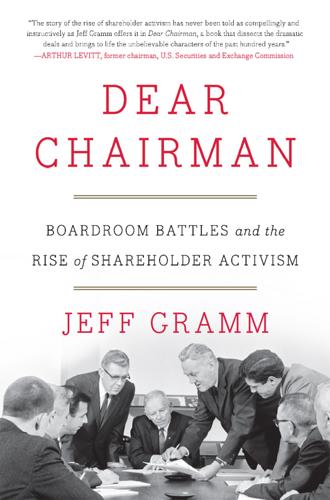
Dear Chairman: Boardroom Battles and the Rise of Shareholder Activism
by
Jeff Gramm
Published 23 Feb 2016
While Karla owned significantly more shares than the other directors, the rest of the board refused to acknowledge her concerns. She attributed part of their stubbornness to the fact that she was a woman with no business education on an all-male board. But she also blamed the board members’ many conflicts of interest. Karla Scherer described the dynamic: “This was a real old boys’ network if there ever was one! These men played golf together, belonged to the same clubs and enriched each others’ coffers.”2 After a few years on the board of directors, Karla Scherer realized that the softgel business pioneered by her father would be much more valuable if it were separated from its underperforming management team.
…
Permission to use quotation granted by Harvard Business Publishing. 76. Doron P. Levin, “GM Executives to Explain Perot Buyout to Institutional Investors and Analysts,” Wall Street Journal, December 15, 1986. 6: KARLA SCHERER VERSUS R. P. SCHERER: A KINGDOM IN A CAPSULE 1. Karla Scherer, “Corporate Power, the Old Boys’ Network, and Women in the Boardroom,” speech, University of Windsor, Windsor, Ontario, September 12, 1997. 2. Ibid. 3. Greer Williams, “He Did It with Capsules,” Saturday Evening Post, April 9, 1949, 29. 4. See Icahn’s Theory of Reverse Darwinism. 5. Ibid. 6. Remington: The Science and Practice of Pharmacy, edited by University of the Sciences in Philadelphia, 21st ed.
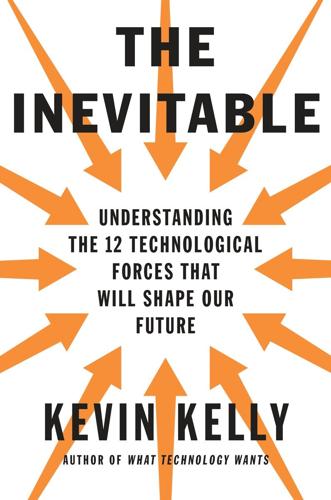
The Inevitable: Understanding the 12 Technological Forces That Will Shape Our Future
by
Kevin Kelly
Published 6 Jun 2016
While millions of writers contribute to Wikipedia, a smaller number of editors (around 1,500) are responsible for the majority of the editing. Ditto for collectives that write code. A vast army of contributions is managed by a much smaller group of coordinators. As Mitch Kapor, founding chair of the Mozilla open source code factory, observed, “Inside every working anarchy, there’s an old-boy network.” This isn’t necessarily a bad thing. Some types of collectives benefit from a small degree of hierarchy while others are hurt by it. Platforms like the internet, Facebook, or democracy are intended to serve as an arena for producing goods and delivering services. These infrastructural courtyards benefit from being as nonhierarchical as possible, minimizing barriers to entry and distributing rights and responsibilities equally.
…
tried to harness readers’ reports: Rachel McAthy, “Lessons from the Guardian’s Open Newslist Trial,” Journalism.co.uk, July 9, 2012. OhMyNews in South Korea: “OhMyNews,” Wikipedia, accessed July 30, 2015. Fast Company signed up 2,000: Ed Sussman, “Why Michael Wolff Is Wrong,” Observer, March 20, 2014. smaller number of editors: Aaron Swartz, “Who Writes Wikipedia?,” Raw Thought, September 4, 2006. “an old-boy network”: Kapor first said this about the internet pre-web in the late 1980s. Personal communication. not exactly a bastion of equality: “Wikipedia: WikiProject Countering Systemic Bias,” Wikipedia, accessed July 31, 2015. 9,000 startups in 2015: Mesh, accessed August 18, 2015, http://meshing.it.

Decoding Organization: Bletchley Park, Codebreaking and Organization Studies
by
Christopher Grey
Published 22 Mar 2012
This was clearly a personalized targeting even though the actual approach was indirect. 4. An English Public (i.e. private) School. The reference to Sidney Sussex College is significant because this was Welchman’s college and he, as noted above, was pivotal in early recruitment to BP. 5. It is, of course, debatable whether it is an entirely reliable basis. This ‘old boy network’ mode of recruitment allowed some spectacular security breaches to occur in the Cold War era, as in the famous cases of Kim Philby, Guy Burgess, Donald Maclean and Antony Blunt (Boyle, 1979). See also Andrew (1985b). On the other hand, one might say that it is remarkable how rare such cases were and, in this sense, that the ‘old boy’ method was fairly effective as regards trustworthiness. 6.
…
‘professional bureaucracy’ model 217 ‘structure in fives’ 213, 236 monotonous work 157, 158, 189, 192–195, 217 Moore, Miss 144 morale 177, 190–192, 215, 253 popular 118 Morgan, G. 264 Morris, C. 196 motorbike dispatch riders 204–205 Muddiman, D. 221 Munich crisis 80 Murray, Joan 170 myth 120 National Archives of the United Kingdom (TNA) 23–24 Natural History Museum 60 Naval (Kriegsmarine) Enigma 34, 63 keys 84, 222–223 Naval Intelligence Division (NID) 64 navy and GC & CS 54, 57–58 Nazis, defeat of 129 neo-institutionalism 256–257 networks heterogeneous 218 personalized 177–187 Newman, Professor Max 157, 187–188 Newmanry 157 informal meetings 223 management in 187–188 ‘tea parties’ 223 Nohria, N. 42 Norris, R. 272 Noskwith, Rolf 172 ‘old boy’ network 180 Official Secrets Acts (OSA) 38, 122, 139, 154 i n d e x 319 operational watches, knowledge work 221–222 oral history 26–30 organization ambidextrous 236 and environment 50 types 213 of work 173 organization studies references 248 theoretical improvisations 247–248 organizational charts 48–49, 52, 69, 70, 93, 95–96 organizational culture 12–13, 107–110, 132, 138–139, 140, 165–167, 258–259 organizational design 213–214 organizational learning 222–225 organizational structure 47, 97–101 and culture 145–146, 153 and conflict 71 organizational charts and 48–49 processual approaches 50, 255 Orwell, George 32 Oxbridge culture 113–114, 137–139, 140, 223, 258 image 253–254 management style 187–190, 231, 238 networks 238 Page, G. 144 Page, S.

The Party: The Secret World of China's Communist Rulers
by
Richard McGregor
Published 8 Jun 2010
Possession of the ‘red machine’ means you have qualified for membership of the tight-knit club that runs the country, a small group of about 300 people, mainly men, with responsibility for about one-fifth of humanity. The modern world is replete with examples of elite networks that wield behind-the-scenes power beyond their mere numerical strength. The United Kingdom had the ‘old boy network’, originally coined to describe connections between former students of upper-class, non-government schools; France has ‘les énarques’, the alumni of the exclusive Ecole Nationale d’Administration in Paris who cluster in the upper levels of commerce and politics; and Japan has the Todai elite, graduates of the law school of Tokyo University, an entry point into the longtime ruling Liberal Democratic Party, the Finance Ministry and business.
…
Abe, Shinzo, 271–2 academia, focus of, 18–19 Africa, xv AIDs campaigners, 3 airports, 19 All-China Federation for Industry and Commerce, 79 All-China Federation of Trade Unions, 213–14 All-China Lawyers’ Association, 189, 190 Aluminium Company of China, 57–61, 62, 224–6 aluminium sector, 219, 224–6 Amway, 210, 211, 212–13 Anhui beauty contest, 176 famine, 258–9 party chiefs and Idiot Seeds, 195 anti-graft body see Central Commission for Discipline Inspection anti-Japanese protests, 270–72 anti-secession law, 129 arms race, 106 Ashton, Catherine, xvi Asian financial meltdown, 45 Atrophy and Adaptation (Shambaugh), 266 Australia, xv Avon Lady, 210, 211, 213 Baidu, 187 Banister, Judith, 260, 292n Bank of China, 50, 53, 158 Bank of Communications, 52–3 banknotes, 244 banks, xi Party’s role in, 51, 52–3 reform, 50 response to global financial crisis, 68 status of, 204 see also individual banks Baoshan Steel negotiations, 54–5 Barmé, Geremie, 242, 245, 271 Basel II, 67 beauty contest, 176 Becker, Jasper, 232 Beijing mayors, 16, 144, 168 new airport, 19 Olympics, 170–71, 186 Beijing Hotel gathering, 34, 35, 38–40 Beijing University, centenary, 79, 80 Bentham, Jeremy, 17 BHP-Billiton, 58, 59 ‘big-headed babies’, 183, 184–5 black-collar class, 140–41 Bo Zhiyue, 121 Boao Forum, ix–xi Bodyguard Bureau, 12 Bond, Sir John, 52–3 Boxer rebellion, 250 Brady, Anne-Marie, 236, 268 bribery/corruption, 75, 93–100, 138–41, 172, 183, 191, 267 see also Central Commission for Discipline Inspection Burns, John, 80, 81 Bush, George Snr., 43 Caijing on bankers, 68–9 Guo Shuqing’s interview, 51 on Rio-Tinto bid, 60 on Shanghai corruption cases, 161 car number-plates, of Party officials, 14 car sales, 2009, xvi Casino Royale (film), 238 Catholic Church, 11–12 CCTV, 185, 250 cell-phones, 39 censuses, 258–9 Central Commission for Discipline Inspection, 137–8 beneficiaries of, 147 failing of, 145–7 investigation procedure, 142–5, 168–9 on Shanghai corruption cases, 160–61, 164–6, 167–9 structure and staffing, 141–2 Central Committee, 12 Central Committee Taiwan Work Leading Small Group, 21 Central Guards Unit, 12 Central Military Commission, 107 Central Organization Department, 17 appointment and promotion, 81, 82–3 and ethnic minorities and other parties, 79 internal tension, 74–6 invisibility, 71–2, 73, 74, 280n against local authority, 90–93 members’ files, 77–8 nature of, 69 origin and historical background, 76–7 on Party’s disaster relief, 192–3 refined and tightened, 41 and state enterprises, 46, 72–4, 84–9 see also nomenklatura system Central Party School, 226–8 Central Politics and Law Committee, 25, 189, 190 Central Propaganda Department, 17, 229 media control, 184, 186, 237, 248–9; see also media, censorship military propaganda, 121–2 reinforced, 41 roles of, 235–7, 248–52, 253 in Sanlu case, 189 Taiwan mission, 122 centrally planned economy, metaphor for, 37 CEOs, 89 reshuffled, 84–5 status symbol, 8–9, 10 stock options of, 100–103 Chai Junyong, 164 Chan, Hon, 80, 81 Changchun Chen’s trial in, 166 corruption cases, 139 Changzhou, 220–22 Charter 08, 261–2 Chen Ailian, 5 Chen Deming, 83–4 Chen Jinhua, 55 Chen Liangyu, 135, 136, 161 background, 155–6 confronts Wen Jiabao, 163–4 defends Shanghai, 151 investigation on, 138, 164–6 trial and prison life, 166 Chen Shui-bian, 124 Chen Tonghai, 64 Chen Xiaodan, 65–6 Chen Xitong, 144, 168 Chen Yuan, 40, 64–5, 66 on communism, 34, 37 daughter of, 65–6 ideas of, 38–9 Chen Yun, 37–8, 200, 239 Chen Zhili, 140 Cheung, Steven, 41, 176–7 children, poisoned by milk powder, 172, 183, 184, 185, 186 China Construction Bank corruption cases, 145–6 mass lay-offs, 50 Party’s role in, 51, 52 China Development Bank, 59, 65 China Executive Leadership Academy, Pudong, 29, 30 China Inc. see state enterprises China Investment Corporation, x–xi China Mobile, 84, 85, 101 China National Petroleum Corp. see PetroChina China Netcom, 84, 86–8 China People’s Political Consultative Conference, 204 China Pudong Cadre College, 29, 30 China Telecom, 84, 87 China Unicom, 84, 85 China Youth Daily, 248, 250–51 Chinalco, 57–61, 62, 224–6 Chinese Academy of Social Sciences, 109 Chongqing, corruption cases, 139 Clinton, Hillary, xiv–xv CLSA, 199 CNOOC, 54, 62 Cole, Bud, 121 communism, 18, 35, 76 redefined, 34, 37 Confucius, 32–3 congress see National People’s Congress corruption see bribery/corruption COSCO, 102 cover-up strategy, 233–4 Crillon Ball, 66 Cultural Revolution, 14 launching of, 149 Party’s verdict, 234, 245 Dai Bingguo, xii, 277n Dai Guofang, 220–21, 222, 223 dairy industry, 181–2, 183 see also Sanlu Dalai Lama, xvi Dandong, 174–5 Daqing, 113, 115 decentralization, 177–8 defence budget, 111–12 democracy Chinese leader’s interpretation, 20 demand of, 31, 261 pro-democracy protests see Tiananmen Square massacre in Taiwan, 123–4, 125, 126, 128, 130 democratic parties, 15 Dench, Dame Judi, 238 Deng Xiaoping, 74, 239 on Idiot Seeds, 195 image of, 6 as leader of liberalizers, 34 on Mao, 245 new model of reform, 41–2 partnership with private sector, 197, 198 perfects socialism, 194, 196 photos of, 38 power behind the scenes, 154 priorities economy, 106 returns to Leninist roots, 14 rural reform, 200 Shanghai policy, 150 southern tour, 41, 201–2 stratagem, xv and Tiananmen Square Massacre, 105 Dickson, Bruce, 214, 218–19 Ding, James, 227 Ding Guan’gen, 17 direct sales industry, 209–13 Director of the Beijing Representative Office (Wang Xiaofang), 95–6 Dongfeng, 216–17 Downs, Erica, 63 Dukakis, Michael, 104 East Eight Blocks, 158 East Hope see Liu Yongxing economy impact of reform on, 42–3 unsustainability of, 269 education institutions Party control of appointment, 79 textbook censorship, 235, 245–6, 249–50 elite networks, 8–9 entrepreneurs Party membership, 31, 32 in Party schools, 226–8 rich list, 205–7 see also individual members environment as benchmark for promotion, 90 central vs. local, 90–93 Party policy on, 269 ethnic protests, 111, 264 European Union, xi Falun Gong, 82, 173, 211, 212, 264, 269 famine, 229–30, 231–4, 254, 255–60, 292n Fang Ning, 33 Far Eastern Economic Review,, 46 farmers, 200, 202 Feng Jun, 227 Fengyang, 258–9 Fewsmith, Joseph, 270 Fidelity, 101 financial system, 44–6 see also banks Fonterra, 182, 183, 186–7, 188 food safety, scandals, 183–5, 191 see also Sanlu foreign bankers, ix–xii, 277n foreign enterprises joint venture, 216–17 number of employees, 214 Fortune 500, 56 France elite networks, 9 Tibet issue, xvi Freezing Point, 248, 250–52 Friedman, Milton, 40–41 Fu Chengyu, 54, 56 Fu Furong, 213 Fu Jianfeng, 170, 186 Gang of Four, 149 global financial crisis, 266 banks’ response, 68, 269 Beijing’s response, 163, 269 global financiers, ix–xii, 277n global reserve currency, xv Global Times, 272–3 Goldman Sachs, 61, 181 golf, 145 Gome, 207 Gorbachev, Mikhail, 35 government imperial officialdom, 77 secret Party rule of, 14–17, 21–5, 33 see also public sector Great Leap Forward, 231–4, 254, 255–60, 292n Lushan verdict, 243 Gu Mingzhi, Major General, 104, 108–9 Guangdong, corruption cases, 139 Guinea, xv Guo Shuqing, 50–52, 53, 67 Gutierrez, Carlos, 83 Gymkhana Club, 9 Haier, 194, 198–9, 202–3 Han Dynasty (ad 25–220), Civil Service Ministry, 77 He Guoqiang, 279n He Weifang, 22–3, 26, 125 heavy industry, 219, 221 Henan, 255–8 history, Party’s verdict, 235, 236–9, 245–6, 248–51 Ho, Herbert, 211 Holwill, Richard, 210, 211 Hong Kong, 21 Hoogerwerf, Rupert, 157 rich list, 205–7 Hope, 215 HSBC, 52–3 Hu Angang, 40 Hu Haifeng, 148 Hu Jia, 25–6 Hu Jintao, 74–5, 108, 148, 248 claims to be elected, 4 on corruption, 138–9 development policies, 178–80 domestic problems, 272 and economy/military, 105, 106–7, 116, 117 image-management, 5–6 on Mao, 246 meets Abe, 271–2 political career, 7 rivalry with Jiang, 154–5 and Shanghai, 153 speech in congress, 8 succession, 153–4, 163 on Taiwan issue, 127, 129–31 theory of, 172 titles of, 15–16, 279n Hu Shuli, 51–2, 282n Hu Yaobang, 74, 154, 248 encourages political reform, 36 rural reform, 200 Hua Guofeng, 154 Huang, Alex, 130 Huang, Yasheng, 151, 199, 200 Huang Guangyu, 207 Huang Hongfang, 32 Huang Ju, 154 Huawei, 204 Hubei, 179 Hum, Sir Christopher, 157 ‘human flesh search engines’, 180–81 Human Organization Department see Organization Department, Human Hunan, 177 hybrid market economy, xiii Idiot Seeds, 194, 195, 201 India, elite networks, 9 Industrial & Commercial Bank of China, 45, 50 inequality, 266–7 International Monetary Fund, xv internet controlled for political events, 2 against corruption, 144, 180–81 on history textbook, 245–6, 252 lack of Party website, 20–21 on Sanlu, 185 search for democracy, 20 Iraq, 116 iron ore, 58 Japan, 271–2 elite networks, 9 protests against, 238–9, 269–70 Ji Haisheng, 102, 103 Jia Qinglin, 7–8, 25, 154, 279n Jiang Chaoliang, 52–3 Jiang Mianheng, 87, 283n Jiang Ping, 41 Jiang Qing, 149 Jiang Sixian, 205 Jiang Yanyong, 239 Jiang Zemin, 107–8, 269 at Beijing University centenary, 79 careers, 81 and Chen Xitong, 144 claims to be elected, 4 defends Zhou Zhengyi, 161 image of, 6 and military apparatus, 105–6, 116, 117 and private sector, 197, 200–201, 208–9, 217 rehearses his marching drills, 104 retires to Shanghai, 163 rivalry with Hu, 154–5 Selected Works, 165 and Shanghai gang, 148–9 Taiwan policy, 128–9 takes up and hands over power, 153–4 theory of, 172 on Zhu Rongji, 43 Jiang Zhenghua, 260 Jiangsu Tieben Iron & Steel, 220–23 Jin Zhong, 148 joint venture, 216–17 journalists, 184, 190, 252 and corruption reports, 160 demand freedom, 30, 80 on local officials, 180 judges, 15, 24, 25, 93, 114, 137 June 4 protest see Tiananmen Square massacre Justice Bureau, 190 Kremlinology, 18 Kuomintang, 123–5 labour law, 214 Ladany, Laszlo, 77 Lai Changxing, 159 law firms, Party control of, 23 lawyers, 15, 25, 30, 265 Party membership, 23 in Sanlu case, 189, 190, 193 leadership battles over, 3 succession, 153–4, 163 Lee Teng-hui, 127–8 Legal Daily, on Sanlu case, 187 legal professionals see judges; lawyers legal system Party control of, 15, 22–5 PLA members in, 114 see also judges; lawyers Lenin, Vladimir establishes Orgburo, 76 ruling model, xiii, 12, 14 Lenovo, 204 ‘les énarques’, 9 ‘Li Bu’, 77 Li Changchun, 279n Li Changjiang, 183, 191 Li Datong, 235, 248, 249–52 Li Fangping, 189, 190 Li Fanping, 264, 265 Li Gang, 70, 98–9 Li Jijun, Lieutenant-General, 245 Li Jinai, General, 107 Li Ka-shing, 158 Li Keqiang, 23–4, 279n Li Lihui, 53 Li Liming, 101, 102, 103 Li Peng, 81, 148, 239 Li Rucheng, 216 Li Rui, 240–41, 242–4, 247 Li Ruigang, 238 Li Ruihuan, 253 Li Weimin (fictional), 95–6 Li Wenyao, 257–8 Li Xiaopeng, 283n Li Yongzhong, 146 Li Youxing, 142 Li Yuanchao, 72, 75, 89–90, 91–2 Li Zhaoxing, 125 Liang Jing, 179 liberal economics, 28–9 Liberation Army Daily, 107–8 Liberation Daily, 242 life style of top-ranked party members, 10 of urban citizens, 27 The Lighthorseman, 242 Lin Chong-pin, 134 Linfen, 82 Liu Baiyu, 78 Liu Mingkang, 66–7 Liu Shihui, 265 Liu Xiaobo, 261–2 Liu Yonghao, 215 Liu Yongxing, 194, 219, 220, 223–5 Liu Zhihua, 138 Liu Zhongde, 229, 237 local economy, 174–5 localities vs. central, 90–93, 172–4, 180–81 competitiveness, 175–7, 178 and new tax policy, 179–80 Lou Jiwei, x–xi, 59–60 Lu Hao, 236 Lu Weidong, 20–21 Luo Gan, 25 Lushan meeting, 243 Ma De, 93–4, 97–8, 99–100, 103 Ma Jinlong, 218 Ma Ying-jeou, 126, 130 Mackenzie, Kelvin, 18 Major, Bob, 186 Mao Yushi, 261 Mao Zedong, 105, 253 and Central Organization Department, 76 death, body preservation and verdict on, 244–6, 247 and Gang of Four, 149 and Great Leap Forward, 231 image of, 6, 246–7 at Lushan meeting, 243 nominates successor, 154 on Party and people, 13–14 status of, 241–2 market reforms, outcomes of, 42 Marketing Dictatorship (Brady), 236 McKinsey & Co, 88, 181 meals, invitation for, 71 media on anti-Japanese protests, 271 censorship, 235–6, 237–8, 247–8, 250–52 on corruption, 144, 155, 160, 161, 166 focus of, 18–19 on food scandals, 183, 184 less restriction on, 268 official campaigns on military loyalty to Party, 107–9 Party’s guidelines for, 237, 248–9 Sanlu’s PR effect on, 185 on Taiwan issue, 127 uniformed announcement of new leadership, 4 melamine, 184–5 Mengniu, 181–2 Merrill Lynch, 47, 48–9 Miao Shouliang, 206 middle class, 205, 266 money worship, 132–3 rich list, 205–7 size of, 28 milk powder case see Sanlu Miller, Alice, 21 mining, 82, 192–3 Ministry of Personnel, 80 minying, 200 Mitsubishi, 54–5 Moeller Villa, 161 money worship, 132–4 Morgan Stanley, 52, 181 Mulvenon, James, 108 Murdoch, Rupert, 17 Naipaul, V.S., 30 name cards, 70 Namibia case, 148 Nanjing, 180–81 National Day parade, 263–4 National People’s Congress, 49 1977, 44 1987, 36 2002, 153, 154, 208 2004, 129 2007, 1–4, 11–12, 67, 125, 137 2009, 24, 25 Nationalist Party, 123–5 navy, xvi NCO system, 117, 118 new conservatives, 38–9 New York Times, 245 New Zealand, in milk scandal, 188 NGOs, 211 Ni Hanwei, 31 Nian Guangjiu, 194–6, 201 9/11, 270 Ningbo, 162 Nissan, 216–17 Niu Yuqing, 146 Nixon, Richard, 19–20 nomenklatura system, 78–81 North Korea, 174, 175 novels, genre of, 144 Obama, Barack, xvi oil legacy of Daqing, 113, 115 overseas interest, 116 shortage, 63 old boy network’, 9 Olympics, 170–71, 186 one-child policy, 280n O’Neill, Jim, 277n Organization Department, Human, 71 Orgburo, 76 Ouroussoff, Nicolai, 19 Ouyang Song, 192 Pan Junxiang, 234–5 Pan Yue, 39–40 Paris, Crillon Ball, 66 Party membership as a commitment, 11 change of political attire, 66 mid-2009, xiv personal files, 77–8 promotion of, 32 students and the rich expand, 31–2 Party schools, 29, 30, 226–8 patriotism campaign, 236, 270 Paulson, Hank, xi peanut products scandals, 191 Pei, Minxin, 267 Peking University, centenary, 79, 80 Peng Dehuai, 243 People’s Armed Police, 111 People’s Daily on banking system, xi on Japan, 238 People’s Liberation Army, 103 challenges of modern society, 111–12 commercial empire, 114 dual leadership system, 117–20, 121 founding principle of, 105 media campaigns on PLA’a loyalty to Party, 107–9 modernization of, 105–6, 111 officer class, 120–21 Party’s control of, 110 propaganda, 121–2 refuses Tiananmen Square crackdown, 109–10 security and domestic duty, 111, 113–14, 115 on Taiwan issue, 128–9 personal consumption, 269 pet food scandals, 183, 184–5 Petitioner’s Village, 2 PetroChina, 61–3, 116 Ping’an, 204–5 Politburo members above corruption investigation, 147 biography of, 7–8 responsibilities of, 13 selecting of, 12 similarity of appearance and career history, 1–2 structure, 278 9n political commissar system, 118–20 political liberals, 38 political opponents controlled for political events, 2–3 less confrontational treatment of, 268 marginalization of, xiv punishment of, 232 Political Struggles in the Age of China’s Reform and Opening Up (Yang Jisheng), 254 post-Maoist governing model, xii, xiii poverty definition, 278n number of poor declines, xvii, 28 power-worship, 96 private sector, 39, 194 confusion of status, 199–200, 203–4 relationship with Party, 31, 32, 79, 193, 196–8, 200–202, 206–9, 215–19 in Shanghai, 151 see also entrepreneurs; individual companies Procrustes, 235 protests anti-Japanese protests, 270–72 to Shanghai building development, 135–7, 164, 167–8 see also ethnic protests; Tiananmen Square massacre public sector appointment, 73–5, 81, 82–3, 284–5n; see also nomenklatura system bribery/corruption, 75, 93–100, 138–41, 172, 183, 191; see also Central Commission for Discipline Inspection system in history, 77 Pudong, 150 Qian Lieyang, 143, 222 Qian Qichen, 17 Qin Yu, 156, 165 Qingdao, 202–3 Qinheng prison, 166 raw materials, 219 see also oil real estate, 155, 179 scandals, 135–7, 158–60, 164, 167 Red Army see People’s Liberation Army ‘red machines’, 8–10, 13 religions, 211 Ren Zhengfei, 204, 206 Renminbi, xv, 244 rich list, 205–7 rich-poor gap, 30 Rio-Tinto, 58–61 Robinson, Tom, 37 rural free-market, 36, 200, 202, 267 Russia China’s loan to, xv cost of disintegration, 131 Sanlu, 169, 172, 181, 182, 264 cover-up strategy, 186–7, 233 emergency meeting, 170, 171 media appearance, 185–6, 187 parent complants, 184, 185, 188–9 Party’s control of, 193 product tests, 186 trial and verdicts, 190–91 Sapio, Flora, 141, 142–3 SARS, 16, 233, 239, 268 SASAC, 86 Schapira, Paul, 61 school textbooks, censorship, 235, 245–6 security, for political events, 2–3, 263 Seeking Truth, 107 Service, Robert, xiii Shagang steelworks, 207 Shambaugh, David, 121, 265–6 Shanghai city development, 29, 162–3 corruption cases, 135–7, 139, 144, 158–61, 164, 167–9 leadership compound, 14 past and present, 149–53, 234–5 status, 138 Shanghai gang, 149–53 crashed, 166–7 in Standing Committee, 154 see also Chen Liangyu Shanghai History Museum, 234–5 Shanghai Industrial, 101 Shanghai Petrochemical Corp., 47–9 Shanghainese, 152–3 land disputes, 135–7, 158–60, 164, 167 Shao Daosheng, 98 Shao Depeng, 217 Shen Ting, 159, 164, 167–8 Shen Wenrong, 207 Shenzhen corruption cases, 181 Deng’s tour to, 41 Shijiazhuang, 174 Shirk, Susan, 129 shuanggui (double regulation), 142–3 Sichuan corruption cases, 139 earthquake, 192 Singapore COSCO in, 102 Suzhou industrial park, 83 Sinified Marxism, 67 Sinology, 18–19 Sinopec, 63–4 society, infiltrates Party, 30 Song Ping, 36 Song Xiaojun, 119–20, 125, 132 southern tour, 41 Southern Weekend, 185–6 Soviet Union disintegration of, 35, 131 nomenklatura system, 78, 79 Orgburo, 76 Party’s verdict on collapse of, 237–8 succession, 154 Stalin, Joseph, 76 Standing Committee, 13, 278–9n above corruption investigation, 147 Shanghai gang in, 154 state assets debates over, 40 Deng’s model on, 42 new conservatives on, 35, 39 state enterprises competition and profitability, 53–6 Deng’s model on, 42 new conservatives on, 39 Party’s low profile in, 21–2, 49 pay structure for CEOs, 102–3 personnel control of, 46, 68–9, 73–4, 84–9 reform, 44, 67–8 split personalities of, 53, 64 stock options, 100–101 tax from, 267 workers lay-offs, 42–3, 50 see also individual enterprises steel industry, 220, 221, 222 Stewart, Jackie, 162 Storming the Barricades (Zhou Tianyong), 69 students loans, 173 money worship, 133 view of Party, 31–2 Su Shulin, 64 Su Zhiliang, 245, 246 Sudan, 62 Suihua, 97–9, 116 Sun Jingkan, 160 Suzhou, 83 corruption cases, 139–40 Tai lake (Taihu), 89, 90, 91–2 Taiwan issue Jiang and Hu’s policies, 106–7, 127–30, 134 nationalist stand on, 131–2 nature of, 122–3 one-China policy, 127–8 Taiwanese opinions, 125–8 see also Kuomintang Tang Dynasty (ad 618–907), official vetting, 77 tax policy, 178, 179 telecommunication, 233–4 telecoms companies, 84–9 terror, 265 textbook censorship, 249–50 Thatcher, Margaret, 202 38th Army, 109–10 Thornton, John, 88 Tian, Edward, 84, 86–9 Tian Fengshan, 98 Tian Wenhua charged, 172 downfall, 188 dual responsibility dilemma, 186 leads emergency meeting, 171 titles of, 182–3 trial and charge, 190–91 Tiananmen Square massacre, 105, 253, 262 discussion suppressed, 35 impact of, 34–5, 36, 201, 202 Party’s verdict, 239 post-event investigation, 36 splits Party and PLA, 109–10 Tibet, 111 Tieben see Jiangsu Tieben Iron & Steel The Times of Deng Xiaoping (Yang Jisheng), 253–4 Todai elite, 9 Tombstone (Yang Jisheng), 229, 230–31, 232 sourcing of, 254–5 trade union, 213–14 Tsai, George, 126–7, 130 Tsang Yok-sing, 21 21st-Century World Herald, 247 ‘Twenty-Seven Perfections’, 77 UBS, 199 Unhappy China (Wang and Song), 112, 132 United Front Department, 17 United Front department, 235 United Kingsom, elite networks, 9 United States aircraft carrier patrols seas around Taiwan, 128 elite networks, 9 official appointment, 74 patriotism, 270 pet food scandals, 183, 184–5 universities, 79–80 Unocal, 54 urban citizens, 27 Urumqi, 111, 139 Vatican, and China, 11–12 vertushka, 13 voting, 11–12 wages, 56 Wal-Mart, 213–14 Wan Yanhai, 3 Wang Jianzhou, 85 Wang Juntao, 23–4 Wang Minggao, 140, 144 on corruption cases, 148 interview with, 71, 72 lack of name card, 70–71 Wang Qishan, ix, xvi Wang Shengjun, 24 Wang Shenyi, 99 Wang Shi, 207–8 Wang Weizhi, 231, 258–60 Wang Xiaodong, 112 Wang Xiaofang, 95, 96 Wang Xuebing, 158 Wang Yang, 234 Watergate scandal, 164 Wen Jiabao, xvi, 7, 279n confronted by Chen Liangyu, 163 on democracy, 20 development policies, 178–80 solves Sinopec oil dispute, 63 on Tieben case, 221 titles of, 15–16 visits earthquake zone, 192 wife and son of, 147–8 on Zhang Enzhao’s case, 145 Wen Wei Bao, 21 Wenzhou, 215, 217–18 ‘west mountain meeting’, 22–3 Wolf, Martin, 237, 269 World Trade Organization, 202, 266 Wrath of Heaven, 144, 168, 169 writers/artists, 96 Wu, Joseph, 123, 124 Wu Bangguo, 7, 279n Wu Lihong, 90–91 Wu Si, 74 Wu Xiaobo, 209 Xi Jinping, 8, 228, 279n Xia Chuntao, 247, 251–2 Xia Jianming, 30 Xiamen, corruption cases, 139, 159 Xiang river, 92–3 Xiao Chaoxuan (fictional), 95–6 Xiao Yaqing, 57, 58, 60–61 Xinhua news agency interview with Zhang Ruimin, 198 on peanut product scandal, 191 secret internal reports, 230, 253 on Tian’s downfall, 188 Xinjiang, 111, 139 Xinjiang Soldier Corps, 114 Xintiandi, Shanghai, 29 Xinyang, 255–8 Xu Guanhua, 140 Xu Haiming, 135–6, 137, 153, 157, 160, 164, 167 Xu Kuangdi, 151, 156 Xu Qinxian, Lieutenant-General, 109–10 Yan Xuetong, 104 on diplomatic policy, 132 on Hu’s policies, 107 on military, 122 on money worship, 132–4 on Taiwan issue, 131–2 Yan’an rectification, 77–8 Yang, Andrew, 120 on Taiwan issue, 122, 126, 129 Yang Bin, 206 Yang Jiechi, 277n Yang Jisheng, 229–31, 232, 239–40, 252–6, 258, 259–61, 265 Yang Mianmian, 203 Yang Ping, 39, 40 Yang Rong, 206 Yang Shangkun, 239 Yang Yuanqing, 204 Yingkou, 175 You Ji, 121 Youngor, 216 Yu Dehong, 232, 255–7, 260 Yu Jianrong, 179 Yu Jie, 246–7 Yu Minhong, 227 Yu Qiuli, 113 Yuan Weishi, 70, 78–9, 249–50, 252 Yuanhua case, 7–8 Yung Chunchang, 119 Yunnan, 181 Zeng Qinghong, 74, 81–2 Zhang Baoqing, 170, 173 Zhang Chunjiang, 88 Zhang Dahong, 216 Zhang Dejiang, 208–9 Zhang Enzhao, 145–6 Zhang Peili, 147–8 Zhang Quanjing, 75 Zhang Ruimin, 194, 198, 203 Zhang Yimou, 121–2 Zhao Ziyang, 80, 154, 254 encourages political reform, 36 image blackout, 35 rural reform, 200 Zhejiang, 209 Zheng Bijian, 106 Zheng Enchong, 135, 137, 159, 161, 167 Zheng Xiaoyu, 183 Zhengtai Group, 218 Zhou Enlai, 113, 123, 253 Zhou Qiren, 220, 223 Zhou Ruijin, 31, 154 Zhou Tianyong, 69 Zhou Yongkang, 24–5, 81–2, 279n Zhou Zhengyi, 157–8, 159, 161–2, 167 Zhu Feng, 62–3 Zhu Peikun, 32 Zhu Rongji, 148 careers, 81 financial system reform, 44–6 misread by Western leaders, 43 state enterprise reform, 44 visits Huawei, 204 Acknowledgements Journalists rely on the charity, goodwill and democratic impulse of people the world over.
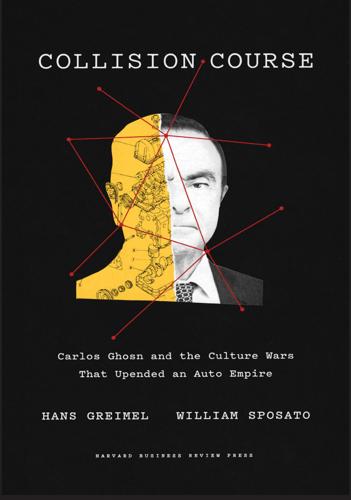
Collision Course: Carlos Ghosn and the Culture Wars That Upended an Auto Empire
by
Hans Gremeil
and
William Sposato
Published 15 Dec 2021
Hundreds crammed into the standing-room-only eighth-floor briefing room when a dour-looking Saikawa entered and TV cameras began broadcasting live nationwide. Saikawa, then sixty-four, was an impassive Nissan lifer with a close-cropped brush cut and deliberate, deadpan demeanor. He had been one of Ghosn’s trusted aides since Day One and Ghosn’s go-to man during the Nissan revival. Back then, he had been entrusted to break up the company’s cozy old-boy network of interlaced suppliers while hard-balling them to lower prices on parts and components. Ghosn himself had tapped Saikawa as co-CEO in October 2016, when engineering Nissan’s controlling stake in Mitsubishi. In appointing Saikawa, he said, “There is no difference between what I think and what he thinks.”
…
Theoretically, the lead statutory auditor can be the most powerful person in the company, wielding the authority to demand answers and insight on any inquiry. But in practice, the position is normally the preserve of loyal company insiders who are appointed as a kind of reward for their service. With so much vested in the company’s old-boy network, these auditors rarely have the temerity to rock the boat with their longtime colleagues. In Nissan’s case, Hidetoshi Imazu was named statutory auditor in 2014 after serving as a director since 2007. The veteran engineer joined way back in 1972; he was sixty-nine when the Ghosn scandal broke.
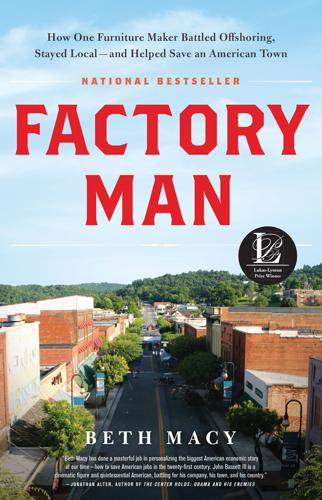
Factory Man: How One Furniture Maker Battled Offshoring, Stayed Local - and Helped Save an American Town
by
Beth Macy
Published 14 Jul 2014
Built on family land a stone’s throw from the center of his own family’s even older company town, the once-thriving sawmill community of Philpott, his brick house featured a dining-room suite and various other pieces made at Bassett during his career. His family had not fared as well as the Bassetts financially, but they were equally entwined in the region’s good-old-boy network, especially when it came to Joe’s cousin A.L. Philpott, the powerful legislator. “I loved every one of them, but I have never known a Bassett who couldn’t give you a good ass-chewing,” he said. When Joe and I met in the summer of 2012, he had just returned from a vacation in France and had garden produce spilling from his kitchen counters, so much that he sent me home with a bag of cucumbers and a to-go cup of iced tea.
…
The new finishing room John had wanted so badly, with its grandfathered-in permits? His relatives at Bassett made sure he didn’t get it. So he bought the hog—the machine that grinds scrap wood into smaller chips—at auction instead, a reminder of his grandfather’s advice on getting what you inspect, not what you expect. But the machinations of Martinsville’s good-old-boy network was not some blunder that could be culled from the record like a miscut bed rail thrown into the hog. Most of the line workers in town understood what had really happened—that egos and the long-simmering family feud prevented the sale of the W.M. plant to Vaughan-Bassett and, more importantly, the reemployment of four hundred people.
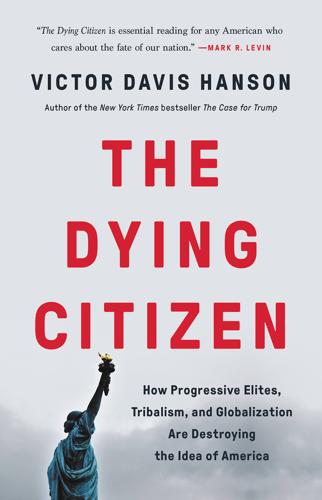
The Dying Citizen: How Progressive Elites, Tribalism, and Globalization Are Destroying the Idea of America
by
Victor Davis Hanson
Published 15 Nov 2021
If all pioneers are deemed racists, does it matter that some trailblazers in fact were cowards and some heroes or at times a mixture of both? Can individuals act singularly apart from their race and from the use of racial division for larger political purposes? Can uninspiring black actors now get parts because of diversity quotas in the same manner that mediocre white actors used “old boy” networks to land roles for which they were unqualified? If the Founders were simply racists, then what separated them from millions of less extraordinary British racist subjects? The reverse is true too: Were there no ignoble black civil rights leaders, no differences between an opportunistic Jesse Jackson or Al Sharpton and the iconic Martin Luther King Jr., given both were black and on the right side of the civil rights movement?
…
Indeed, nearly three-quarters of Americans consistently poll that while they support a diverse society, they are still opposed to hiring, promotions, and admissions predicated on racial considerations.53 On the other hand, Americans seek advantage for family and friends by emphasizing otherness if it is perceived to offer rewards. This disconnect is not unlike the effort of the progressive rich to leverage advantage through either influence, ancestry, or money in conflict with their professed egalitarian creed and their support for reparatory affirmative action as a remedy for “old boy” networking. Universities may demand that college English faculties reflect the racial percentages of the United States, but often provosts do not apply such concern to the medical school’s faculty of neurosurgeons—at least not fully yet. Take the dean proudest of diversifying his faculty: when he faces open heart surgery, he does not select his doctor on the basis of his particular ethnic background.
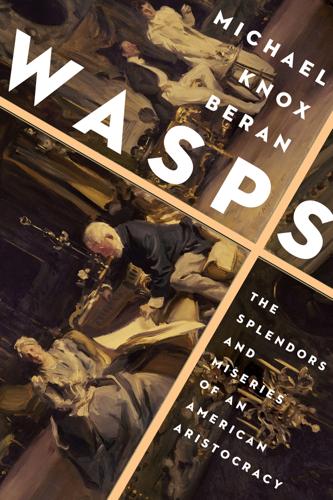
Wasps: The Splendors and Miseries of an American Aristocracy
by
Michael Knox Beran
Published 2 Aug 2021
The result of such exclusiveness was, naturally enough, inbreeding, both moral and genetic, with the circle of acceptable bulls and heifers further shrunken by the mental defectives, depressive valetudinarians, narcissistic wastrels, and melancholic drunks who made up a good part of the WASP beau monde. This was the downside of the effort to form a patrician class capable of dominating the state by means of connections and family alliances secured by matrimony. The old boys’ network and the blood ties on which it rested worked well enough for… the old boys: it enabled them to turn institutions like the State Department and Wall Street into private clubs. But it made a hell of many marriages, with the women paying the steeper price: under the Victorian double standard, a woman who was unfaithful to her vows risked a good deal more than an errant male.
…
The problem was that they could not hope to maintain the mystique without relaxing their exclusiveness. For with all their antipathy to the stranger, they soon recognized that cronyism and nepotism too rigidly pursued produced imbecility. It was evident fairly early in the WASP revival that an old boys’ network was doomed if a certain number of exceptional new boys were not admitted to leaven the stupidity of the hereditary lump; a patriciate without the means of change was without the means of survival. Groton, for all its reputation for wealth and snobbishness, saw the difficulty and in the 1890s began to admit by competitive examination a number of boys for whom “tuition was an insurmountable obstacle.”
…
Apollinax” (Eliot), 252 Mugwumps, 85, 102, 105 Mumford, Lewis, 34 murderers, 30–31 Murray, Charles, 24 muscular Christianity, 72–73 Museum of Fine Arts, 62 museums, 62, 157, 189–190, 252, 412 Mussolini, Benito, 304 N Nabokov, Vladimir, 291, 359 Namier, Lewis, 136, 216 Narodniki, 110–111 national poetry, 269 National Recovery Act of 1933, 280 National Security Action Memorandas (NSAMs), 22 Nazi Germany, 303–304 nepotism, 339 nervous breakdowns, 112–113 neurasthenia, 34, 36–37, 40, 73, 99, 100, 116–123, 173, 256, 270, 414–415 neuroticism, 31–38, 89, 115, 136, 159, 263, 365, 413 New Deal, 280–281, 283–284, 289–290, 293, 296, 338, 359 New England, 32–33, 35, 56, 85 Newman, John Henry, 109, 127 New Nationalism, 170–171 Newport, 153 New Republic, 172–174, 261, 265, 288, 336, 375, 376 new wealth, 154 New York City, 99, 155–156 New York Herald Tribune, 11 Nicolay, John, 82 Nicolson, Harold, 218, 227, 338 Niebuhr, Reinold, 339 Nietzsche, Friedrich, 118, 168, 247, 429, 430, 438, 442 Nightingale, Florence, 118 Nitze, Paul, 13 Nixon, Richard, 35, 355 Normans, xiv North American Review, 53 Northern Securities Company, 152, 284 Norton, Charles Eliot, 43, 62, 68–69, 253 nouveaux riche, 157, 421–422 Novick, Sheldon, 199 Noyes, Larry, 265 O old boys’ network, 191, 339–340 Old World, 5, 26, 48–49, 86–87, 108, 118, 147, 157, 187, 304, 434 Olivo, Robert, 20 Olmsted, Frederick Law, 59, 125, 415 O’Mahoney, Joseph, 328 Osborn, Perry, 216 Oswald, Lee Harvey, 379 in our time (Hemingway), 271 Owen, Robert, 297 Oxford Movement, 109 P paintings, 62–63, 64 Paley, Babe, 3–7, 20, 25, 26, 375, 383 Paley, Bill, 4, 5, 24–25 Paley, Dorothy, 4 Palfrey, John Gorham, 108 Palfrey, John Gorham, VII, 108 Palmer, George Herbert, 69 Pandora (James), 87 Panic of 1897, 28 paranoid imagination, 338–339 Paris, 214, 222 Parish, Sister, 362–363 Pater, Walter, 62, 195 patrician humanism, 9 patrician privilege, 26–27 Patriotic Gore (Wilson), 367 Patten, Bill, 16 Patten, Bill, Jr., 17 Patten, Susan Mary “Soozle,” 16–17 Paul, Anthony Joseph Drexel, Jr,, 282 Pax Americana, 21, 139–148, 150 Payne, Flora, 71–72, 135 Peabody, Dick, 238 Peabody, Endicott, 17, 54–59, 98, 238, 277, 278, 287, 356; death of, 330; on FDR, 283–284; Groton School and, 7–9, 44, 58–59, 72–78, 125–129, 142–143, 147–148, 193–195, 203, 312–317; morality of, 26; The Rector of Justin and, 310–311; retirement of, 305–310 Peabody, Fanny, 55 Peabody, Mary, 238 Peabody, Samuel Endicott, 55 Peace Conference, 214–215, 218–227 Pearl Harbor, 320, 323 Pericles, 407 Perkins, Frances, 248, 277, 281, 292, 325, 421 Pershing, John J., 210, 211, 214, 222 Persius, 261–265 Persky, Lester, 18 The Phanton Public (Lippmann), 266 philanthropy, 115 Philby, Kim, 288 Phillips, Samuel, 133 Phillips, William, 215, 216, 220 Phillips Academy Andover, 133, 319 Phillips Exeter, 74, 133, 313 Picasso, Pablo, 273–274 Pinchot, Gifford, 170 Pinker, Steven, 405 Pipe Creek Farm, 356–358 plasquagórazza culture, 408, 411, 414–416, 424–425, 427–428 Plato, 129, 130, 192, 241–244, 381, 414, 435, 437, 439, 441–442 Platt, Thomas Collier, 104 play, 439 Plimpton, George, 18, 25 Plumb, J.H., 406 pluralism, 420–421 Podhoretz, Norman, 341–342 poetry, 169, 228, 236, 243, 253, 260, 269, 286, 406, 439–440, 444 politics, 33, 50–52, 89, 99, 101, 102, 104–105, 182 Polk, Bill, 391 Polk, Frank, 215, 216, 220, 279, 362 Polk, Lily, 279 Porcellian Club, 8, 10, 96, 249, 339 Porter, Cole, 214, 222 “Portrait of a Lady” (Eliot), 252 post-Civil War era, 67, 108, 120–121, 263 postwar years, 351–354 Pot and Kettle Club, 284 Potter, Beatrice, 110, 111, 114 Potter, Fuller, 306–307 Potter, Henry Codman, 99 Potter, Howard, 62 Potter, Robert, 242 Potter, Warwick, 72, 74, 76, 91–92, 112, 134, 387 Pound, Ezra, 256, 270 power, 46, 49 Powers, Dave, 361 pragmatism, 181 Pratt, Mary, 223 A Preface to Morals (Lippmann), 266–267 prejudice, 336–338, 342–345 prep schools, 27, 58–59, 71–78, 155, 203, 362; see also specific schools Prince, Norman, 203, 208 The Princess Casamassima (James), 115, 260, 408, 426 Princeton Club, 366 Princeton University, 244 printing press, 274 Profumo, John, 111 progressive education, 108, 129, 265, 297, 307, 308 The Promise of American Life (Croly), 165–166, 170, 171 Protestant Episcopal Church, 56–57 Protestantism, 109 Proust, Marcel, 6, 200, 214, 221, 262, 273, 300 psychoanalysis, 365 Public Opinion (Lippmann), 266 public service, 21, 26, 29, 136, 138, 161, 224, 254, 338, 361, 432–433 Puffenberger, Evelyn, 23 Pure Slaughter Value (Bingham), 396–398 Puritans/Puritanism, 32, 33, 34, 37, 40, 41, 94, 108, 337, 432 R racism, 342–345 radicalism, 195 Rainsford, William Stephen, 149–150, 151 Rancho La Laguna, 9 Rand, Margaret Aldrich, 371 Randolph, Arthur Bertram, 204, 206–208 Randolph, Edith, 135, 163 Ransom, Basil, 72 rationality, 441 realism, 228 The Rector of Justin (Auchincloss), 310–311, 314, 436 Reed, John, 189 reform, 49–50, 53 Reform Bill, 49 reformers, 115, 178–179 regeneration, xiv, 42, 62, 119, 123, 170, 199, 237, 248, 254, 260, 265, 268, 290, 301, 358, 365, 384, 420 Reich, Otto, 288 Reid, Jean, 179 Reid, Ogden, 11, 216 Reid, Whitelaw, 82, 179 Reilly, Mike, 333 religion, 56–57, 108–109, 111–113, 155, 267, 418–421 religious poetry, 259, 260 Remembrance of Things Past (Proust), 6 Renaissance, 423 Renan, Ernest, 385–386 Republic (Plato), 435, 441 Resor, Stanley, 322 Rhodes, Cecil, 151 Rhodes Scholarship, 309 Ricard, Rene, 19 Rice, Cecil Spring, 81–82, 168 Rice, Edgar, 233 Richardson, Elliott, 26 Richardson, Hadley, 270 Richardson, Henry Hobson, 56, 88 Riesman, David, 426–427, 428 Riis, Jacob, 308 Robinson, Edward Arlington, 236 Rockefeller, David, 338 Rockefeller, Happy, 24 Rockefeller, John D., 151 Rolfe, Alfred, 264 romanticism, 205 Romantics artists, 444 romantic utilitarianism, 181 Rome, 107, 368, 369 Roosevelt, Alice.
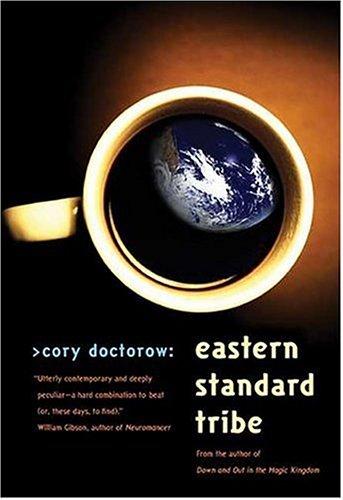
Eastern standard tribe
by
Cory Doctorow
Published 17 Feb 2004
Enough of this, and GMT would be the laughingstock of the world, and so caught up in internecine struggles that the clear superiority of the stress-feeding EST ethos would sweep them away. That was the theory, anyway. Of course, there were rival Tribalists in every single management consulting firm in the world working against us. Management consultants have always worked on old-boys' networks, after all -- it was a very short step from interning your frat buddy to interning your Tribesman. "That's it? A meeting? Jesus, it's just a meeting. He probably wants you to reassure him before he presents to the CEO, is all." "No, I'm sure that's not it. He's got us sniffed -- both of us.
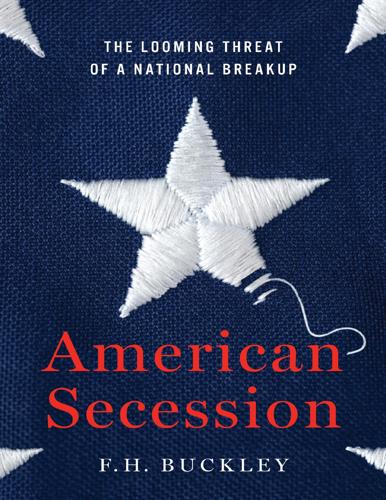
American Secession: The Looming Threat of a National Breakup
by
F. H. Buckley
Published 14 Jan 2020
.… When local law enforcement officials become involved as participants in violent crime and use their position, power and authority to accomplish this, there is very little to be hoped for, except with assistance from the Federal Government.22 What had protected the murderers before the federal government stepped in was Mississippi’s crony culture, in which judges hung out with lawyers, officials traded off favors and a code of silence kept people from talking to outsiders. Years later, the same kind of old-boy network, and some of the same players, created Mississippi’s corrupt trial lawyer industry, where lawyers schmoozed with and bribed judges. Mississippi’s justice system winked at this, and it took the federal government, in the form of the U.S. Attorney’s Office and the FBI, to put people in jail.23 Would there be more or less corruption, then, if a state or region of America were to secede?
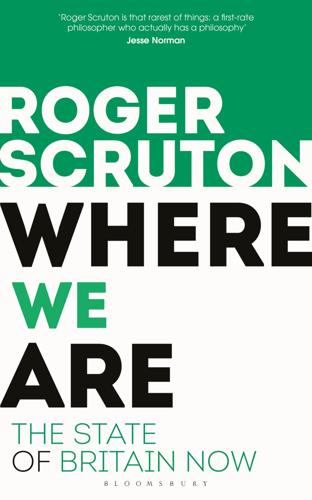
Where We Are: The State of Britain Now
by
Roger Scruton
Published 16 Nov 2017
And by internalizing the code of honour they did not, as Barnett supposes, make themselves defenceless in a world of chicanery and crime, but endowed themselves with the only real defence that human life can offer – the instinctive trust between strangers, which enables them in whatever dangerous circumstances to act together as a team. Barnett’s cavils fill only one shelf in the growing library of declinist literature. From Anthony Sampson’s attacks on the old-boy network to Paul Mason’s dismissal of the financial system, from Tom Nairn’s warnings of the break-up of Britain to the description by David Coates and others of our industrial decline, the message is again and again rubbed in that the British are falling behind, losing out, failing to be where they should be in the ongoing march of the modern nations.8 But where, exactly, should they be?
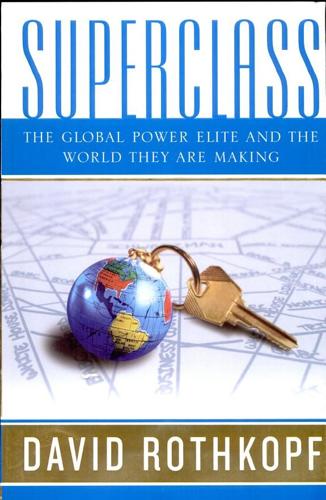
Superclass: The Global Power Elite and the World They Are Making
by
David Rothkopf
Published 18 Mar 2008
Military leaders need to earn a living when they leave the armed forces, and they should not be penalized for having chosen to serve their country—nor should their country be deprived of their know-how or the experience for which the country has already paid. Having said that, it is a short trip from an inadvertent old boys’ network to the military-industrial complex self-dealing that has—in the past, in countries all over the world—led to overspending, delays, overlooked flaws, and outright corruption. In its international form it has also had an impact on the important role that arms sales have in foreign policy, leading to the promotion of symbolic deals that sometimes involve weapons systems that may not be optimum for countries involved but have been advocated by well-connected interests in the defense establishment—as in the case of the $20 billion, ten-year arms deal the United States began to develop with Saudi Arabia in 2007 as a way of countering Iranian influence in the Persian Gulf.
…
Bush was presented with this opportunity, “nothing came to mind,” and the Yale junior was dubbed “Temporary.” As New York Observer contributor Ron Rosenbaum says, “Skull and Bones is not some ordinary frathouse; the initiation was just the beginning, the first of a lifelong series of bonding rituals that helped forge the powerful Bones Old Boy network—a network at the heart of the heart of the American Establishment. Historically, the people who had done so much to shape America’s character in the world—the Tafts, the Luces, the Stimsons, the Harrimans, the Buckleys, the Bundys and the Bushes, among others—had their character shaped in the Tomb of Skull and Bones.”
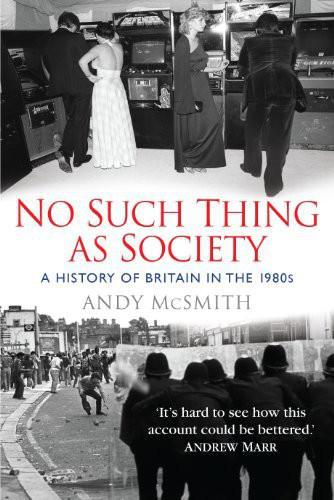
No Such Thing as Society
by
Andy McSmith
Published 19 Nov 2010
He once said: ‘Rik Mayall is putrid – absolutely vile. He thinks nose-picking is funny and farting and all that. He is the arsehole of British comedy.’14 That, of course, was part of his appeal to the young target audience. Mayall rivalled Rowan Atkinson as the most popular comic of his generation. There were old-boy networks even in this meritocratic world. Ben Elton, who had known Mayall and Edmondson at Manchester University, had his first big break when he was drafted in as a scriptwriter on The Young Ones. Afterwards, he teamed up with Richard Curtis, one of the regular writers from Not the Nine O’Clock News, to create a new vehicle for Rowan Atkinson, whom Curtis had known at Oxford.
…
He instructed his solicitors to try to warn them off, but gave up after the Sun counterattacked, telling him to ‘buy yourself a sense of humour’.1 The phenomenon that Enfield was observing did not originate in Tottenham’s White Hart Lane. It came out of the City of London, which in a few dramatic years was transformed from a club run by an old-boy network of public-school alumni to a place where the ambitious sons of working-class families were given free rein to make a great deal of money quickly. This development could be said to have begun when Margaret Thatcher called Cecil Parkinson to her office in June 1983 to reward him for his valiant work as chairman of the Conservative Party, presiding over the party’s best election result since the 1930s.
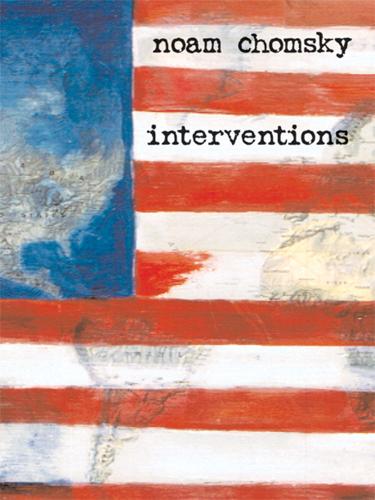
Interventions
by
Noam Chomsky
The editor of the page, Michael Kinsley, shook his head at the mathematical difficulties of any attempt to broaden the debate and on March 20, 2005 wrote in the Los Angeles Times: If pressure for more women succeeds—as it will—there will be fewer black voices, fewer Latinos, and so on. Why should this be so? Aren’t there black women and conservative Latinos? Of course there are. There may even be a wonderfully articulate disabled Latina lesbian conservative who is undiscovered because she is outside the comfortable old-boy network. But there probably aren’t two. It’s not a question of effort, it’s mathematics. Each variable added to the equation subverts efforts to maximize all the other variables. That sort of thinking is unfortunately common. Writing in the New York Times in 1990, Anna Quindlen recalled that one editor had told her, “I’d love to run your column, but we already run Ellen Goodman”—presumably one female writer was all the page could handle.

Kowloon Tong
by
Paul Theroux
"Oh, belt up, I've heard it already," Bunt said. "You Yanks!" To Hoyt Monty said, "He's teasing you." "Hong Kong is an accident of history that is about to be rectified," Hoyt said. "Hong Kong was doing perfectly well as a British colony," Bunt said. "Sure. No elections. No democracy. The old school tie, old boy network," Hoyt said. "Give me a break." Bunt said, "There was freedom here. Granted, it was a free-for-all, survival of the fittest, but it worked, and it was better than anything the Chinese will do with all their bloody policemen, or you Americans talking all your sanctimonious balls about democracy."
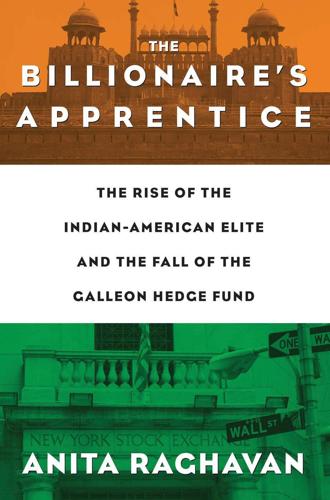
The Billionaire's Apprentice: The Rise of the Indian-American Elite and the Fall of the Galleon Hedge Fund
by
Anita Raghavan
Published 4 Jun 2013
After independence, the company’s ownership increasingly fell into the hands of Indians and its name changed to reflect its new complexion—first it was christened India Tobacco Company and ultimately ITC. Every year, ITC hired a number of students with postgraduate management degrees as trainees. It also took a few bright undergraduates straight into its management program. But the company is not without its prejudices. It has its own good old boy network. When students interview at ITC, as a running joke goes, they are asked not what school they attended but what house they were in. The company is filled with “Doscos”—men who went to India’s preeminent boys’ school, the Doon School. Since its founding in 1935 by a moderate group of Indian nationalists led by an eminent Calcutta barrister intent on establishing an Indian version of England’s venerable Eton College, the Doon School had been the preserve of India’s privileged.
…
At the August 2007 event, guests wore black T-shirts that read “The Riotous, Rowdy, Rebellious Raj Tribe.” The campus of IIT Delhi, where Rajat Gupta graduated in 1971. The school has become an incubator for global leaders in technology and finance. (Courtesy of the Hindu.) Kashmir House at the Doon School. The old boy network of Doscos, India’s answer to Etonians, aided Anil Kumar as he helped launch McKinsey’s business in India. The aspiration of a Doon School boy as laid out by its first headmaster. Sanjay Wadhwa, senior associate regional director of the New York office, came to the United States from India in 1986.
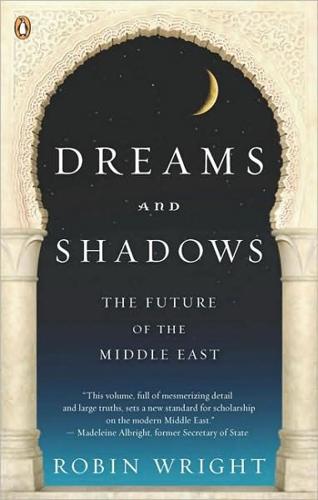
Dreams and Shadows: The Future of the Middle East
by
Robin Wright
Published 28 Feb 2008
President Abbas assumed control of lucrative border crossings from the interior ministry, and transferred authority over the Palestinian Broadcasting Corporation and the Palestinian News Agency from the information ministry to the president’s office.28 He also failed to clean up rampant corruption. After promising to rebuild the party from the ground up, Abbas instead allowed the old-boys’ network to largely remain in place. Adding to the political tensions, Fatah’s militias roamed the streets as if they still owned them. At a rally in Damascus shortly before my visit, Mashaal condemned Fatah as “traitorous” for “robbing us of our powers as well as our people’s rights.” Hamas, in turn, used the network of mosques to lambaste Fatah.
…
They became a pivot around which central parts of the system turned. Their rise mirrored Ahmadinejad’s evolution into the presidency, as the young men who had fought in the Iran-Iraq war grew into middle age. Politically, Revolutionary Guards officers moved from the battlefield into mayoralties, governates, and management of ministries.39 Economically, an old-boys’ network of current and former commanders staked claims in the oil and gas sectors, won bids on major government construction contracts, and even gained lucrative franchises, such as Mercedes-Benz dealerships. Within the military, the Revolutionary Guards also evolved from the days when they had served mainly as human minesweepers and cannon fodder in the war with Iraq.
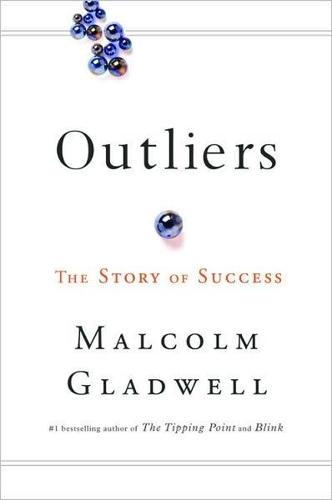
Outliers
by
Malcolm Gladwell
Published 29 May 2017
As the Yale computer scientist David Gelernter says, "Bill Joy is one of the most influential people in the modern history of computing/' The story of Bill Joy's genius has been told many times, and the lesson is always the same. Here was a world that was the purest of meritocracies. Computer programming didn't operate as an old-boy network, where you got ahead because of money or connections. It was a wide-open field in which all participants were judged solely on their talent and their accomplishments. It was a world where the best men won, and Joy was clearly one of those best men. It would be easier to accept that version of events, however, if we hadn't just looked at hockey and soccer players.
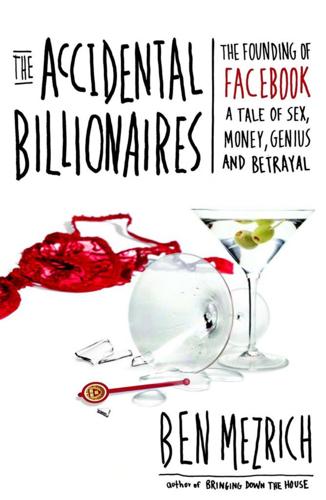
The Accidental Billionaires: The Founding of Facebook: A Tale of Sex, Money, Genius and Betrayal
by
Ben Mezrich
Published 13 Jul 2009
Founded in 1791, named in 1794 in honor of a bacchanalian pig roast that the graduating members had thrown for themselves—feasting on a pig, the story goes, that one member had brought to classes with him, hiding the porcine pet in a window box whenever a professor came near—the Porcellian was the ultimate old boys’ network on a campus that had defined the term. The clubhouse—“the old barn,” as the members referred to it—was a place of legend and history. Teddy Roosevelt had been a Porc, along with many members of the Roosevelt clan; FDR had been rejected from the club, and had called the incident “the greatest disappointment of his life.”
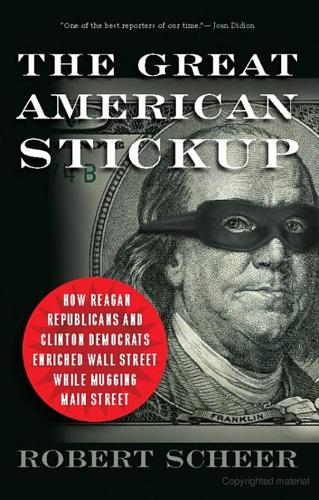
The Great American Stickup: How Reagan Republicans and Clinton Democrats Enriched Wall Street While Mugging Main Street
by
Robert Scheer
Published 14 Apr 2010
So, armed with what she later recalled for Washington Lawyer as a “ferocious sense of injustice,” and urged on by her mother, she entered Stanford Law School, where she would become the first female editor of the Stanford Law Review, a prestigious honor for which she was nationally recognized. To understand how Born years later could go toe-to-toe with the intimidating old boys’ network of Greenspan, Rubin, and Summers, one must realize that she had been doing that sort of thing her entire life. She became an attorney at a time when only 3 percent of the country’s lawyers were women. She entered Stanford Law in a class of 155 men and 10 women—only 4 of whom would graduate from this bastion of testosterone three years later, in 1961.
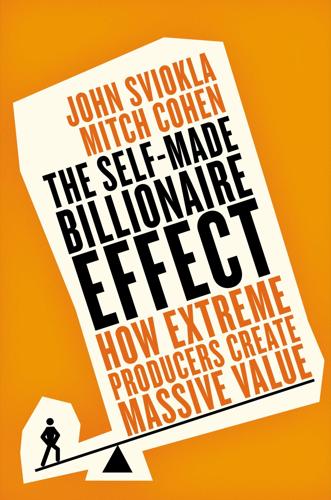
The Self-Made Billionaire Effect: How Extreme Producers Create Massive Value
by
John Sviokla
and
Mitch Cohen
Published 30 Dec 2014
New Yorker, March 30, 2009. 2. Ibid.: ‘They had to fight their way in,’ Maurice (Big Moe) Colontonio, a paper recycler in South Jersey, told me. . . . ‘The Chinese came to us packers, and they said, “Will you sell to us?”’ Colontonio told me one afternoon as we sat in the plant office. ‘But it was always an old-boy network in this business. I sold to someone I knew, and that person sold to people he knew. And now we’ve got these people—we don’t know them—and they’re selling to China? How are we going to be paid? Who are we going to chase?’ 3. http://onlinenevada.org/kirk_kerkorian. 4. Michael Specter, “Branson’s Luck,” New Yorker, May 14, 2007. 5.
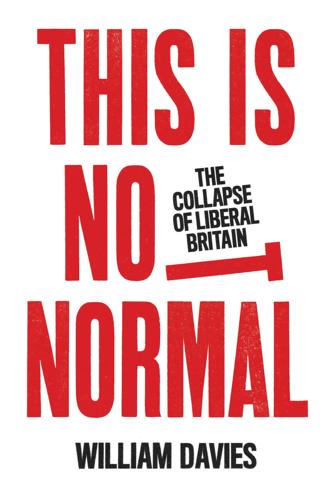
This Is Not Normal: The Collapse of Liberal Britain
by
William Davies
Published 28 Sep 2020
To pinpoint the origins of this ideological decline, one has to look back much further than the referendum. The identity and purpose of the Conservative Party has been slowly unravelling for three decades. The year of the ‘big bang’ was 1986, when the City of London was dramatically deregulated, disrupting the old-boy networks of Britain’s business classes with the shock of a new, aggressive style of international finance. The subsequent explosion of wealth opened up a cultural and financial schism between London and England – sowing seeds of resentment in the shires that would blossom in 2016. But 1986 was also the high point of Tory Europeanism, the year of the Single European Act, which set Europe on the path to a single market, and was driven and crafted by Margaret Thatcher and her allies.
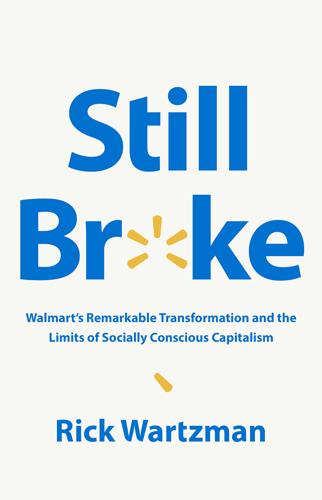
Still Broke: Walmart's Remarkable Transformation and the Limits of Socially Conscious Capitalism
by
Rick Wartzman
Published 15 Nov 2022
But Oliver said that Scott and Mike Duke, who led Walmart’s US operations at that time, fully backed her as she revised all sorts of protocols, including moving scores of newly hired HR professionals into the field across the country; before, a much smaller HR staff had been centralized in Bentonville. Both Scott and Duke, she said, were insistent that the “kind of culture that has somehow grown up is no longer us. We don’t want that to be us.” And in short order, Oliver said, the “good old boys’ network got broken up.” Once store managers had “the support they needed to make good, fair decisions with their teams,” she added, “we actually faced little resistance” to abiding by the rules. Ever since Scott had called on Walmart to be “at our best, all the time,” this had become a familiar refrain: we may have made some serious mistakes in the past, but that’s not who we are now.
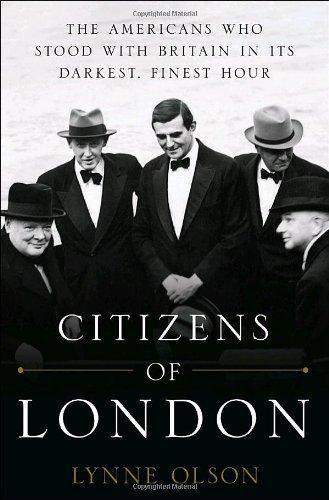
Citizens of London: The Americans Who Stood With Britain in Its Darkest, Finest Hour
by
Lynne Olson
Published 2 Feb 2010
In addition to his own tough reports on Chamberlain’s policies, he invited Winston Churchill and other members of a small band of anti-appeasement Conservative MPs to broadcast to America via CBS. It was the only radio outlet for most of the parliamentary rebels, who had been barred from BBC broadcasts because of their views. Most of Chamberlain’s critics in the Conservative Party were members of the public school old-boy network that dominated British society and government, and they welcomed Murrow and his wife into their upper-class circle. Throughout the Murrows’ stay in England, they were frequent guests at elegant Mayfair dinner parties, lunches at exclusive private clubs, and weekend get-togethers at grand country houses.
…
“He would get whatever he needed—the best horses, coaches, equipment, his own bowling alley or croquet lawn—and work like the devil to win.” While his grades were as mediocre at Yale as they had been at Groton, Harriman’s education at those two schools gave him a priceless advantage. Like the sons of British industrialists who attended Eton and Oxford, he was given an entrée into his country’s elite old-boy network, which presided over the business, social, and government establishments. Among his fellow Yale alumni were Lovett and Dean Acheson, who, like Harriman himself, would go on to play major roles in the emergence of the United States as the leading world power in the 1940s and 1950s. Four years after Harriman’s graduation from Yale, the United States entered World War I, but, unlike most of his college classmates, he chose not to enlist.

In the Age of the Smart Machine
by
Shoshana Zuboff
Published 14 Apr 1988
The conference quickly became one of the most popular, with 130 members sharing information aimed at "helping pro- fessional women cope with life in a male-dominated corporation." The Panoptic Power and the Social Text 383 conference often addressed issues related to the conflicting demands of work and family life. Many women described it as "our effort to build our own 'old boy's network.' " The "old boy's network" drew a good deal of its power from its invisibility, but the Women's Professional Improvement conference, despite its technical precautions, was all too visible. A number of inci- dents in the conference created a stir within the management hierar- chy. In one case, a member had posted information about affirmative action in the conference.
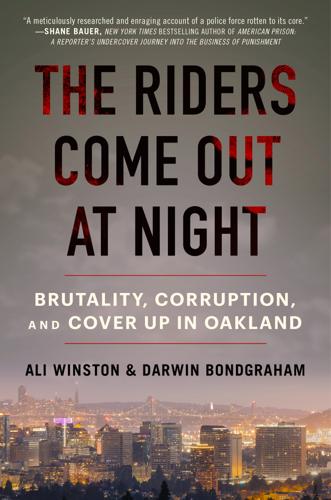
The Riders Come Out at Night: Brutality, Corruption, and Cover-Up in Oakland
by
Ali Winston
and
Darwin Bondgraham
Published 10 Jan 2023
Officers arrived in small groups, strutting to the reception in their dress uniforms. Kirkpatrick shook hands with street cops and police union leaders in the parking lot. During the ceremony, Schaaf told the department that she knew what it was like to be under scrutiny, but that she supported them.12 “She’s not interested in ending the good old boys’ network,” protester and attorney James Burch said about Kirkpatrick outside the church. “She’s interested in business as usual, and that’s what they’re doing here, and it’s been given the co-sign by Libby Schaaf.”13 “They seem to be resisting change,” said Gwen Hardy, a longtime member of PUEBLO who’d been involved in police accountability efforts in Oakland since the 1980s.
…
Lee, “Sniper Kills Policeman on I-580,” San Francisco Chronicle, January 11, 1999. 80. Peter Fimrite, “New Top Cop Named in Oakland: First Black Named Permanent Police Chief,” San Francisco Chronicle, June 30, 1993. 81. Robert Nichelini and his son, Michael, would continue to be central figures in the OPD’s old boy network: both served as presidents of Le Societe de Camaraderie, a professional law enforcement organization founded in 1940 by members of the Oakland PD. (The Le instead of La is intentional.) 82. Charles Hardy, “New Methods Sought with Next Oakland Police Chief,” San Francisco Examiner, December 3, 1992, 8. 83.
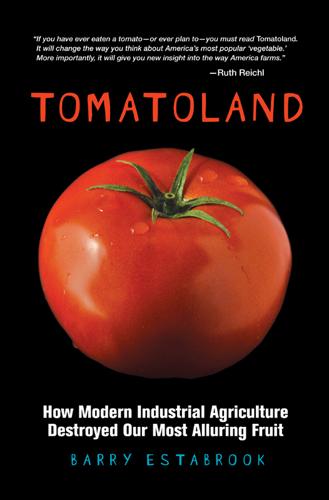
Tomatoland: How Modern Industrial Agriculture Destroyed Our Most Alluring Fruit
by
Barry Estabrook
Published 6 Jun 2011
After dropping out of high school, Cisneros took a series of jobs and eventually found herself employed by a crew boss as the driver of a bus that transported farmworkers from Immokalee to the fields. Within a few years, she had managed to save enough money for a down payment on a used school bus and became the boss of her own crew of ten to forty workers. At the time, she was the only female crew leader in the area. “It was a good old boy network,” she told me. The “boys,” however, turned out to be not very “good” and didn’t take kindly to having a woman among their ranks. Frequently, they hired employees away from Cisneros. Or taunted them: “Oh, you work for a prissy woman’s crew.” She was given an often-used nickname, “The Bitch.” On occasion, she was threatened with physical harm, but she persisted.
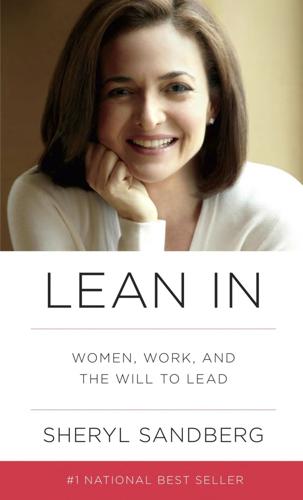
Lean In: Women, Work, and the Will to Lead
by
Sheryl Sandberg
Published 11 Mar 2013
Mentoring and sponsoring relationships often form between individuals who have common interests or when the junior members remind the more senior members of themselves.7 This means that men will often gravitate toward sponsoring younger men, with whom they connect more naturally. Since there are so many more men at the top of every industry, the proverbial old-boy network continues to flourish. And since there are already a reduced number of women in leadership roles, it is not possible for the junior women to get enough support unless senior men jump in too. We need to make male leaders aware of this shortage and encourage them to widen their circle. It’s wonderful when senior men mentor women.
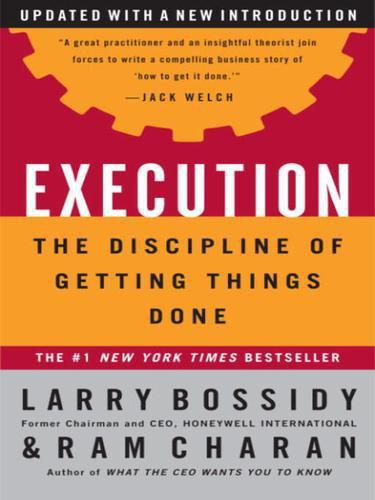
Execution: The Discipline of Getting Things Done
by
Larry Bossidy
Published 10 Nov 2009
At EDS, Dick Brown moved quickly to make sure the performers got rewarded more than the nonperformers. Lack of accountability had been a major problem in the company, as the leadership ranks well understood. “There were no negative consequences for poor performance,” recalled one executive. “Not only no consequences, but if you were part of the good old boy network, there really wasn’t accountability for negative behavior toward the company.” Added another, “It was always somebody else’s problem.” Brown instituted a system that ranked all executives in quintiles by how well they performed compared with their peers, and rewarded them accordingly. It is similar to the “vitality curve” Jack Welch introduced at GE to differentiate “A,” “B,” and “C” players.
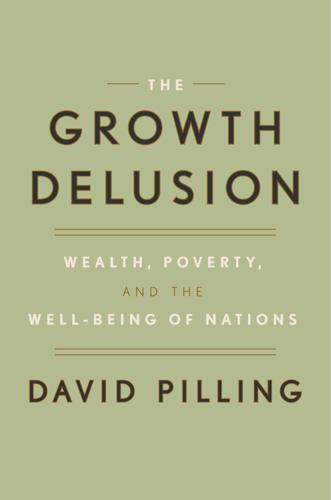
The Growth Delusion: Wealth, Poverty, and the Well-Being of Nations
by
David Pilling
Published 30 Jan 2018
Before you know it, you’re breaking the law, cutting into the other lane. This is bad inequality. In America people have historically been quite tolerant of inequality. The attitude has been, Good luck to them. It shows we can do it too. But that is changing. If other people gain advantages by access to expensive education or inheritance or old boys’ networks, your goodwill toward the success of others turns to resentment. “If you’re white and working class in America, you’ve had no income gain for thirty years,” says Angus Deaton. “If everybody was getting no income gain and there was some good reason for it, a war or something, I think people would have no difficulty with it.”

We're Going to Need More Wine: Stories That Are Funny, Complicated, and True
by
Gabrielle Union
Published 16 Oct 2017
Because we’ve all seen a pal replaced for a younger, cheaper model with lower expectations and more free time for overtime or courting clients. Modern business is set up to squeeze out women who “want it all”—which is mostly just code for demanding equal pay for equal work. But the more empowered women in the workforce, the better. The more that women mentor women, the stronger our answer is to the old-boys’ network that we’ve been left out of. We can’t afford to leave any woman behind. We need every woman on the front lines lifting each other up . . . for the good of all of us and the women who come behind us. It’s tough to get past my own fears, so I have to remind myself that this is an experiment, to boldly go where no grown-ass woman has gone before.

In Stitches
by
Nick Edwards
Published 1 Jan 2007
They then had the audacity to blame the senior doctors (via the Royal Colleges) who were the very ones urging caution against this whole system. I know the politicians have said that doctors need to live in the real world and not expect a job for life and should expect competition for popular jobs. That is completely fair and in the past it was totally wrong that some doctors were helped by an ‘old boys’ network’. However it is the utter lack of care that the system shows for its employees that is upsetting. No other group of workers would accept such a shambolic arrangement: where thousands of junior doctors have had their contracts expire in August and then have to apply for new jobs where they can’t show their CVs, don’t know where they will work or what their pay or conditions will be.
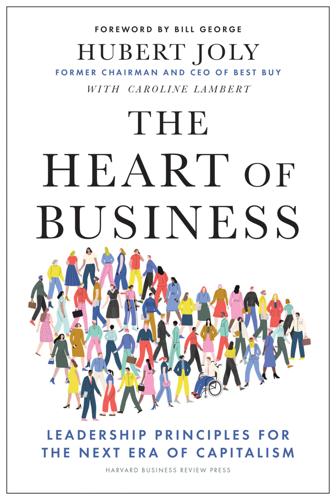
The Heart of Business: Leadership Principles for the Next Era of Capitalism
by
Hubert Joly
Published 14 Jun 2021
Back in 2012, Best Buy was fairly diverse and representative when it came to its Blue Shirts. But from the store manager level up, everyone became progressively whiter and more male. Women made up fewer than one in five store managers, for instance, and all territory managers were men. The field had traditionally been an old boys’ network, which felt uncomfortable for many women. Few managerial positions were held by people of color, particularly African Americans. The racial imbalance partly reflected local demographics: historically, Minnesota had been on the paler side of the racial spectrum, populated by immigrants from Germany, Scandinavia, Finland, and Ireland.
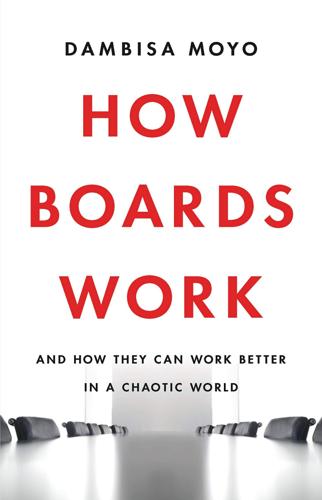
How Boards Work: And How They Can Work Better in a Chaotic World
by
Dambisa Moyo
Published 3 May 2021
Even more trying for boards seeking gender equity across their organizations is that women tend not to put their hands up to flag interest in a promotion, better pay, or other opportunities. Thankfully, this sentiment is changing. Calls for women to “lean in” and ask for what they want—and to strive to stay in the workforce come what may—do resonate with many. The best corporations are constantly exploring innovative ways to circumvent the old boy network by remaking interview and recruitment processes to be more gender-neutral. For example, Harvard’s Iris Bohnet has written about the potential of blind interviews, which screen candidates without information on their race, gender, or religion. In the era of technology, artificial intelligence (AI) recruiting tools, while not without their limitations, are already showing promise of enabling more objective screening processes that give women a fair shake.
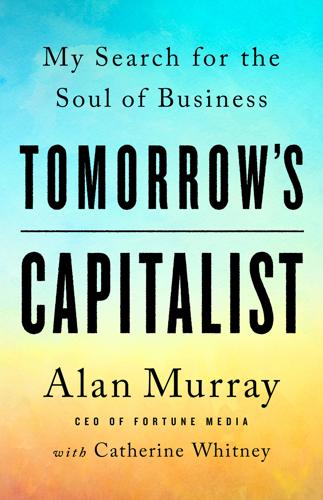
Tomorrow's Capitalist: My Search for the Soul of Business
by
Alan Murray
Published 15 Dec 2022
“And that’s causing a lot of discussion.” As always, this is driven in large part by business interest. When talented people are the scarcest and most valuable form of capital, no company can afford to rule out people because of their gender or race or sexual orientation. In a true talent economy, the “old boy” network has to give way to a new approach. Supporting this today is some research suggesting that more diverse workplaces with policies of inclusion do better on key financial measures than other companies. But old ways aren’t easy to disrupt. Progress is halting. And increasing numbers of corporate leaders are convinced they need new tools and new tactics to change deeply ingrained practices.
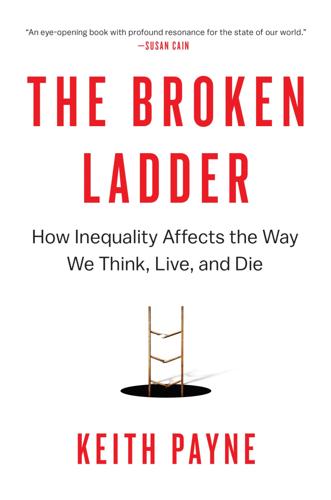
The Broken Ladder
by
Keith Payne
Published 8 May 2017
Liberals, contrary to the perspective of many conservatives, are not hostile to the idea of individual rights and responsibilities, or market competition. Instead, they see individual merit as just one factor among many that determines success or failure in a competitive market. They tend to consider the economic system as a whole rather than just the individual players within it, which means taking into account such factors as monopolies, old-boy networks, institutional racism and sexism, and cycles of advantage and disadvantage that shape people’s outcomes for reasons that have nothing to do with individual virtues. They have no special love of “big government” and are often puzzled by conservatives’ apparent obsession with the size of government.
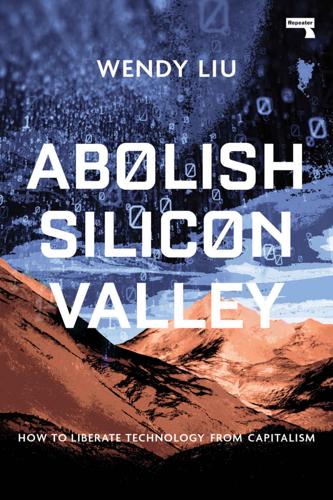
Abolish Silicon Valley: How to Liberate Technology From Capitalism
by
Wendy Liu
Published 22 Mar 2020
For a long time, I clung to the idea that Silicon Valley was morally better than Wall Street. Even as my tech optimism began to crack and the two industries got more interdependent, I still firmly believed that they were qualitatively different. At least Silicon Valley tried to be a meritocracy, unlike the old boys’ network of Wall Street. At least Silicon Valley tried to do good in the world, unlike those bankers who were motivated by greed. It’s kind of funny, then, to discover that people on Wall Street say eerily similar things about their industry that Silicon Valley apologists say about theirs. Karen Ho’s book Liquidated — an ethnography of Wall Street, published soon after the onset of the 2008 financial crisis — is a marvellous case study in the myths that people will tell themselves to justify what they do.
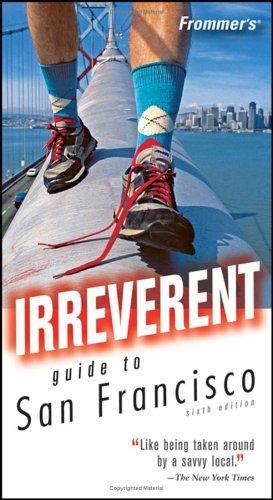
Frommer's Irreverent Guide to San Francisco
by
Matthew Richard Poole
Published 17 Mar 2006
(Later in the evening, the bar livens up and the atmosphere is less suitable for younger children.) If the kids do like hot-and-spicy treats, take them to Coriya Hot Pot City (Richmond District), where they can have a ball playing chef and cooking their own meat on the grills. Where to seal a deal... This, of course, depends upon the client. The Old Boy network tends to be wary of fancy food and effusive waiters, which you’ll never find at Harris’ (Van Ness Ave.). Old-school attorneys love the Fly Trap Restaurant, the traditional San Francisco grill (with a few culinary updates) across from the courthouse. If your clients are food lovers who don’t want to be bothered with trendy trappings, take them to my favorite small French bistro, Fringale (South of Market).
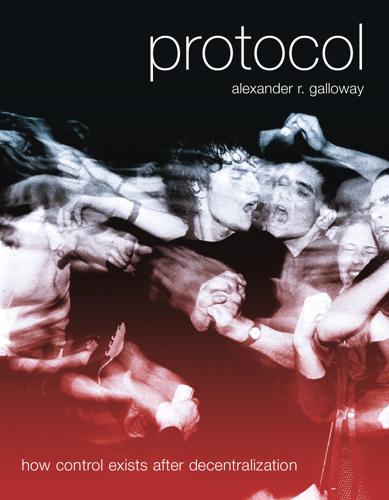
Protocol: how control exists after decentralization
by
Alexander R. Galloway
Published 1 Apr 2004
If an Internet-Draft survives the necessary revisions and is deemed important, it is shown to the IESG and nominated for the standards track. If the IESG agrees (and the IAB approves), then the specification is handed off to the RFC editor and put in the queue for future publication. Cronyism is sometimes a danger at this point, as the old-boys network—the RFC editor, the IESG, and the IAB—have complete control over which Internet-Drafts are escalated and which aren’t. 31. That said, there are protocols that are given the status level of “required” for certain contexts. For example, the Internet Protocol is a required protocol for anyone wishing to connect to the Internet.
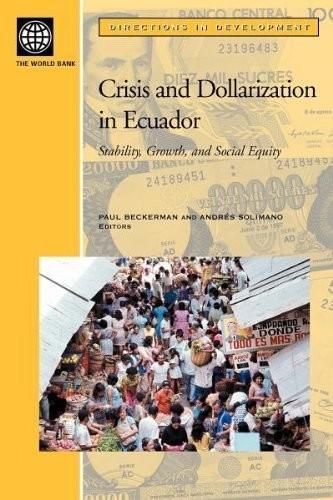
Crisis and Dollarization in Ecuador: Stability, Growth, and Social Equity
by
Paul Ely Beckerman
and
Andrés Solimano
Published 30 Apr 2002
For instance, in 1994 women’s average wage was 75 percent that of men’s average wage; in Brazil, women’s wages were 60 percent that of men’s (FLACSO 1995). 29. These may be the result of unmeasurable productivity factors (for example, differential treatment in schooling, family expectations, “old boys’ networks”, and so on) that could not be statistically removed from the numbers, or from “market-induced” differences, that is, discrimination. When the researchers looked at industries that were typically female (food production, textiles, clothes, small commerce, restaurants, public sector, teachers, medical, and domestic labor), women actually earned more than men, with similar, observable characteristics in the food, textile, teaching, and domestic services industries.
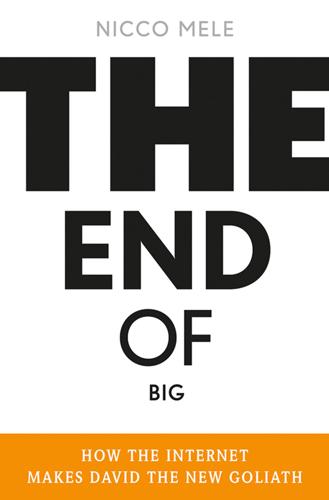
The End of Big: How the Internet Makes David the New Goliath
by
Nicco Mele
Published 14 Apr 2013
Bad apples aside, most of party rank and file evinced a strong sense of morality and social responsibility born of a class-based mentality—quite a shift from what we see today. As the New York Times columnist David Brooks has observed: Today’s elite lacks the self-conscious leadership ethos that the racist, sexist and anti-Semitic old boys’ network did possess. If you went to Groton a century ago, you knew you were privileged. You were taught how morally precarious privilege was and how much responsibility it entailed. You were housed in a spartan 6-foot-by-9-foot cubicle to prepare you for the rigors of leadership. … The best of the WASP elites had a stewardship mentality, that they were temporary caretakers of institutions that would span generations.5 Before the age of radio and television, it was pretty hard to see candidates up close, so the political parties and their grand political conventions functioned as a process that delivered trustworthy leaders and policies to America.
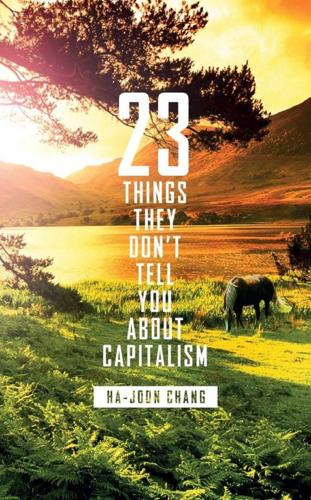
23 Things They Don't Tell You About Capitalism
by
Ha-Joon Chang
Published 1 Jan 2010
Usually, a company becomes transnational and sets up activities in foreign countries because it possesses some technological and/or organizational competences that the firms operating in the host countries do not possess. These competences are usually embodied in people (e.g., managers, engineers, skilled workers), organizations (e.g., internal company rules, organizational routines, ‘institutional memory’) and networks of related firms (e.g., suppliers, financiers, industrial associations or even old-boy networks that cut across company boundaries), all of which cannot be easily transported to another country. Most machines may be moved abroad easily, but it is much more costly to move skilled workers or managers. It is even more difficult to transplant organizational routines or business networks on to another country.
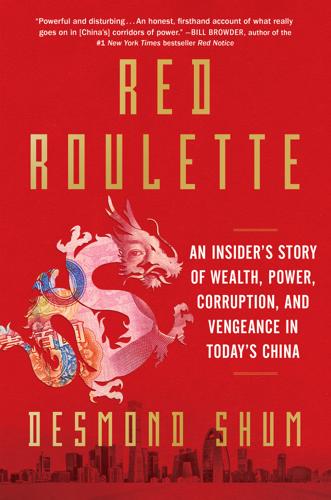
Red Roulette: An Insider's Story of Wealth, Power, Corruption, and Vengeance in Today's China
by
Desmond Shum
Published 6 Sep 2021
After Whitney spent a year at the university, the school’s president arranged for her to work as a deputy county chief in Shandong in charge of bringing in outside investment. The Party cultivated talented young men and women in this manner, giving them exposure to the bottom rung of government. Whitney spent a lot of time in Beijing, seeking out the many Shandong natives who worked in the Party bureaucracy, trying to cultivate the old-boy network to facilitate investment in the county. Shandong taught Whitney a valuable lesson, similar to one that I learned in Hong Kong. She discovered that the only ones who truly succeeded in China were people with guanxi, connections into the system. Still, she didn’t like the life of a deputy county chief.
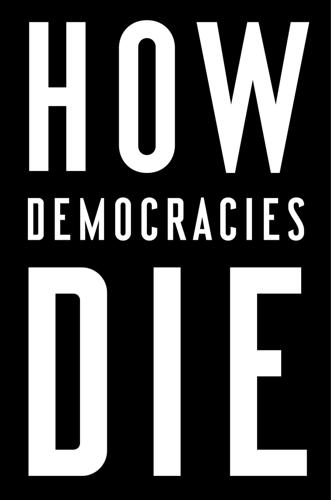
How Democracies Die
by
Steven Levitsky
and
Daniel Ziblatt
Published 16 Jan 2018
For prospective candidates, securing the backing of the organization men was the only viable road to the nomination. The old convention system highlights the trade-offs inherent to gatekeeping. On the one hand, the system wasn’t very democratic. The organization men were hardly representative of American society. Indeed, they were the very definition of an “old boys” network. Most rank-and-file party members, especially the poor and politically unconnected, women, and minorities, were not represented in the smoke-filled rooms and were thus excluded from the presidential nomination process. On the other hand, the convention system was an effective gatekeeper, in that it systematically filtered out dangerous candidates.
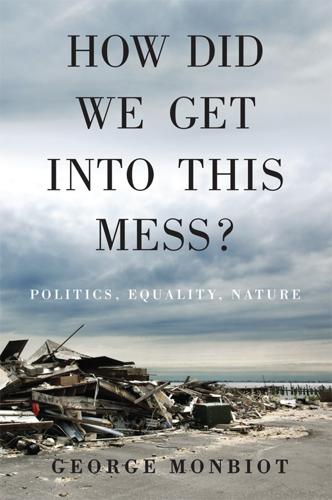
How Did We Get Into This Mess?: Politics, Equality, Nature
by
George Monbiot
Published 14 Apr 2016
Take 10 mins to fill your form in once a year and be very glad Defra have decided this is the way to go.6 Yet even this is now deemed too onerous. Soon after it took office, the coalition government set up a Farming Regulation Task Force, chaired by a former director-general of the National Farmers’ Union. I’ve come across plenty of self-serving reports by old boys’ networks, but seldom anything as bad as this. It insisted that ‘food and farming businesses must be freed from unnecessary bureaucracy’, by which it appeared to mean almost any regulation at all. ‘Government must trust industry … we suggest that Government should invite industry to play a leading role in drafting guidance.’7 On protecting the soil, it had this to say: ‘We recommend: that the Soil Protection Review becomes voluntary … not completing the Review correctly (or at all) should not result in a breach.’8 In other words, give us the subsidies, but please remove the last remaining conditions attached to them.

On Writing: A Memoir of the Craft
by
Stephen King
Published 1 Jan 2000
No promises, but … Frank doesn’t need promises; like most beginning writers, all he needs is a little encouragement and an unlimited supply of take-out pizza. He mails the story off with a letter of thanks (and a letter of thanks to the ex-Lodgepine editor, of course). Six months later “Two Kinds of Men” appears in the premiere issue of Jackdaw. The Old Boy Network, which plays as large a part in publishing as it does in many other white-collar/pink-collar businesses, has triumphed again. Frank’s pay for this story is fifteen dollars, ten contributor’s copies, and another all-important credit. In the next year, Frank lands a job teaching high school English.
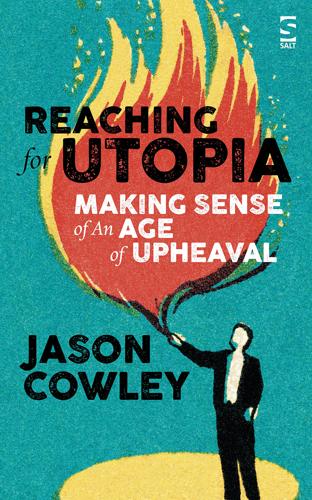
Reaching for Utopia: Making Sense of an Age of Upheaval
by
Jason Cowley
Published 15 Nov 2018
Yet, when the time came, he chose to send his sons away to boarding schools, a decision he regards as a ‘tragic mistake’. After leaving Sherborne prematurely (he was sixteen), David went to live in Bern, Switzerland. There he read Goethe, studied German and was in tentative contact with the British security services. He completed his national service and, assisted by a contact from Sherborne (the old boy network doing its thing), won a place to study modern languages at Oxford, where he mixed with the privileged sons of inherited wealth without being one of them. Before long he was also serving as an informer for MI5, betraying the confidences of many left-wing university friends and acquaintances.
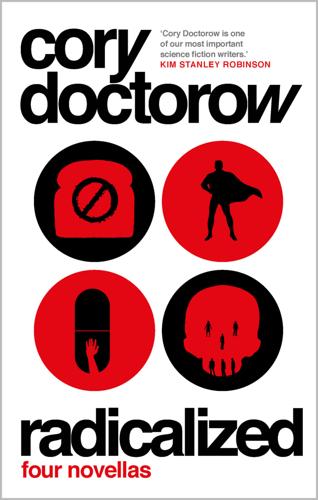
Radicalized
by
Cory Doctorow
Published 19 Mar 2019
The first time Joe saw one of these files, he thought of how chilling it must be to see your home, your family, your picture, your license plate on a list like this. It gave him a lot of satisfaction that he tried not to think about too much. DamFool lived in Montana and, for such a sparsely populated state, Montana sure had a hell of a lot of high-value targets. Small populations had big old-boy networks, and they made it easy for corruption to spread, favor to favor, friend to friend. You could see the diffusion pattern in the hit list, which was extensive. The Great Old Ones were good at this pitch. They were just hinting now, not giving DamFool the hard sell. That would come after Tommy’s demise.
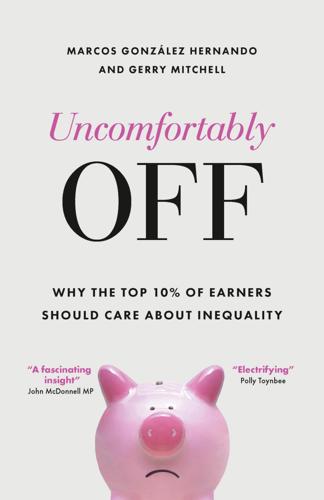
Uncomfortably Off: Why the Top 10% of Earners Should Care About Inequality
by
Marcos González Hernando
and
Gerry Mitchell
Published 23 May 2023
I don’t agree, because I think the rich getting richer benefits themselves and I’m not sure how much of that is passed down because I think some people get rich at other people’s expense.” Such respondents also confirm the importance of networking for social mobility. Claire, a teacher, living in Manchester, with an income just above the 10% threshold, speaks of the ‘old-boy network’: “Opportunity comes from having money, contacts, knowing people in places, work experience and connections.” Wang, an under-35-year-old former doctor who now runs his own start-up, observes that he gets to meet many wealthy entrepreneurs who mostly come from wealthy backgrounds. This, in part, he thinks is what made them successful, as they were able to take risks without having to worry about their financial security.
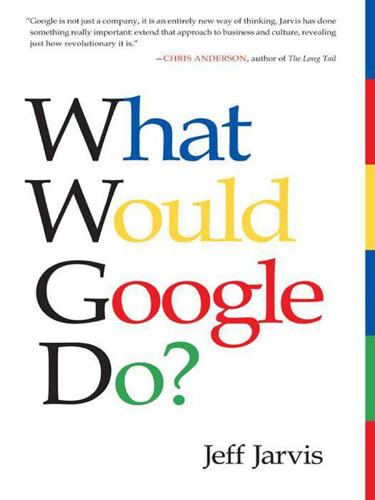
What Would Google Do?
by
Jeff Jarvis
Published 15 Feb 2009
The skeptic will say that not every student is responsible enough or a self-starter. Perhaps. But how will we know students’ capabilities unless we put them in the position to try? And why structure education for everyone around the lowest denominator of the few? Another byproduct of a university’s society is its network—its old-boy network, as we sexistly if accurately called it. That club has long held value for getting jobs, hiring, and making connections. But now that we have the greatest connection machine ever made—the internet—do we still need that old mechanism for connections? LinkedIn, Facebook, and other services enable us to create and organize extended networks (any friend of yours…) springing out of not just school but employment, conferences, introductions, even blogs.

I Never Knew That About London
by
Christopher Winn
Published 3 Oct 2007
Any number of left-wing protest marches have set off from here, fired by revolutionary rhetoric, including the march addressed by Annie Beasant and William Morris that ended in the original BLOODY SUNDAY at Trafalgar Square in 1887, and THE WORLD’S FIRST MAY DAY MARCH in 1890. May Day marches still leave from here today. At No. 37 a fine 18th-century house plays host to the MARX MEMORIAL LIBRARY. BRITAIN’S FIRST SOCIALIST PRESS, the TWENTIETH CENTURY PRESS, moved in here in 1892, and LENIN published 17 issues of Iskra here in 1902–3. Charterhouse Old Boy Network CHARTERHOUSE SQUARE IS a delightful mix of Tudor, Georgian and Victorian buildings lying outside the gatehouse of the 14th-century Carthusian Priory of the Salutation of the Mother of God, on the site of LONDON’S BIGGEST PLAGUE PIT. Charterhouse is an English corruption of the French name Chartreuse.
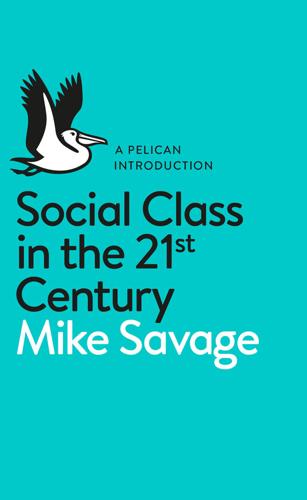
Social Class in the 21st Century
by
Mike Savage
Published 5 Nov 2015
Notwithstanding the languor of the Oxbridge college, the late-summer glory of country estates and the proliferation of ‘gentry’ brands, the symbolic power of these icons needs to be understood as a foil against which an ‘ordinary’ wealth-elite can define itself in more meritocratic ways. The fact that this aristocratic class is so routinely caricatured and lampooned is now central to its ongoing significance. By classifying this supposed stereotypical group as cohesive, socially inward, even inbred, and by characterizing the upper class as a nepotistic ‘old boys’ network’ where informal contacts developed at school and university often act as pivotal lubricants of prestigious professional trajectories, a wider, ordinarily wealthy elite class can emphasize its distance from those wellsprings of old elitedom and claim a more modest place for themselves. The ‘ordinary’ elite class is fundamentally marked by meritocratic motifs – but in ways which should not be taken at face value, but which instead mark today’s performance of privilege.
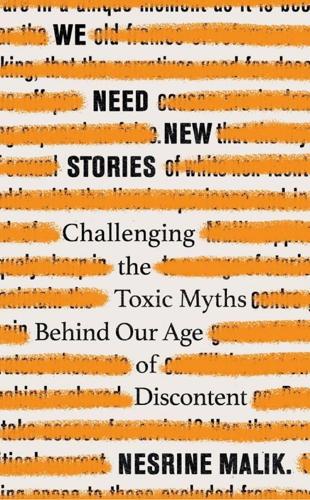
We Need New Stories: Challenging the Toxic Myths Behind Our Age of Discontent
by
Nesrine Malik
Published 4 Sep 2019
The response was a howl of denial, protesting that the UK had come a long way, and that it was absurd to compare it to countries where women suffer FGM or forced marriage. But Manjoo had not compared the UK to Somalia or Saudi Arabia. She had made a rather obvious statement that described the pervasive ‘old boys’ network in the UK, and the aggressiveness and ubiquity of commercial sexualised depictions of women. She also said that ‘violence against women needs to be addressed within the broader struggles against inequality and gender-based discrimination.’ More revealing was how the debate was then framed. Rather than engaging with what Manjoo said, which was anodyne and generic, the conversation became a comparative one.
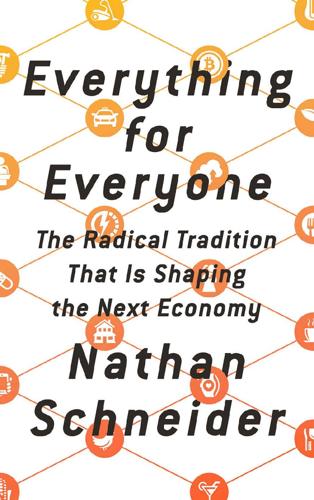
Everything for Everyone: The Radical Tradition That Is Shaping the Next Economy
by
Nathan Schneider
Published 10 Sep 2018
Socrates Garrett is Jackson’s most prominent black entrepreneur. He went into business for himself in 1980, selling cleaning products to the government; now, he and about one hundred employees specialize in heavy-duty environmental services. The story of his success is one of breaking through Mississippi’s white old-boy network, and to do that his politics have become mainly reducible to his business interests. He is a former chairman of the chamber of commerce and serves on the boards of charities. He is a self-described progressive who supported the Republican governor Haley Barbour. He became a political operator—one with less ideological freight than the partisans of MXGM.
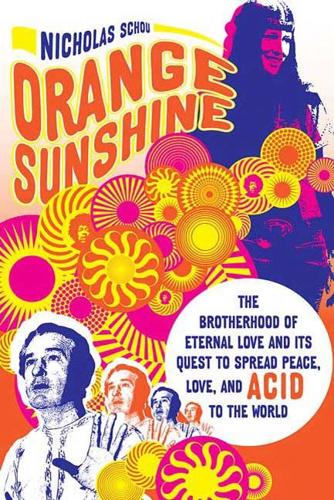
Orange Sunshine: The Brotherhood of Eternal Love and Its Quest to Spread Peace, Love, and Acid to the World
by
Nicholas Schou
Published 16 Mar 2010
Chula was hired to represent a couple of Brothers who’d been caught with small amounts of pot, and the charges were dismissed. Chula then began to act as an in-house attorney for the Brotherhood. Whenever a Brother got into trouble, one of Chula’s underlings would always be at the jailhouse with bail money. Because of his close connection within Orange County’s good-old-boy network—Chula was drinking buddies with a lot of lawyers, prosecutors, and judges—sometimes charges simply disappeared. “I had an attorney that came out of George Chula’s office that bribed a judge,” says one former Brotherhood drug dealer who was busted for possession of hash during a raid on Woodland Drive.
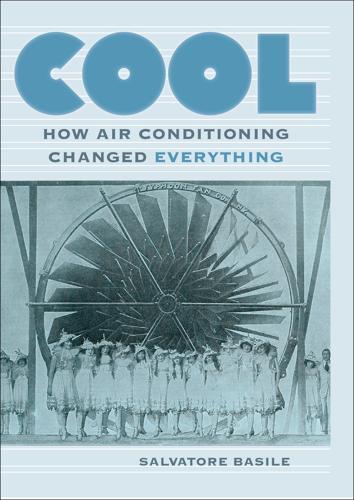
Cool: How Air Conditioning Changed Everything
by
Salvatore Basile
Published 1 Sep 2014
But as Packard had always positioned itself as one of America’s most exclusive cars (its slogan was “Ask the Man Who Owns One,” and there were other ads proclaiming it “Socially—America’s First Motor Car”), the company was betting that its well-heeled customers would be happy to shell out for summertime comfort … not to mention the nose-thumbing cachet of the words “AIR CONDITIONED” discreetly emblazoned on the hood in chrome. A number of automotive journals noted the innovation with approval. Esquire, appealing to men who were solid members of the Old Boy Network (or wished they were), produced its own highbrow review: “Speaking of the sun and its vagaries, incidentally, brings us with tongues hanging out to the new Packard. For here, in all its pristine glory, is igloo-refrigerated air-conditioning, as complete, as scientific, as comforting as the atmosphere of Radio City.”

Pattern Recognition
by
William Gibson
Published 2 Jan 2003
"Sometimes," Voytek says, lowering his voice slightly, "I think he locates information for people." "He's a spy!" declares Magda, gleefully. Voytek winces. "He perhaps has retained certain connections," Ngemi qualifies, "and can find certain things out. I imagine there are men in the City…" His wide black brow creases with seriousness. "Nothing illegal, one hopes. Old-boy networks are something one understands, here. One doesn't ask. We assume Hobbs has his own, still." "Sig-int," Magda says, triumphantly. "Voytek says he sells sig-int." Voytek stares gloomily at his glass. SIGINT, Cayce knows. Signals intelligence. She decides to change the subject. Whatever this is about, it's detracting from what pleasure she's able to take in the evening.
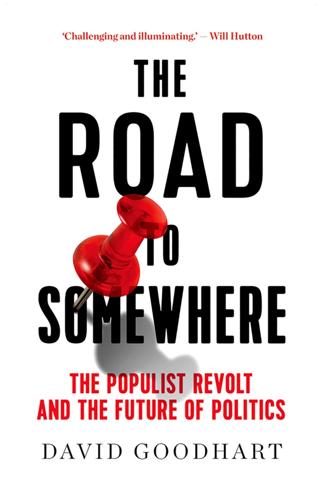
The Road to Somewhere: The Populist Revolt and the Future of Politics
by
David Goodhart
Published 7 Jan 2017
This is an inevitable aspect of modern life but it sets up a tension with that more egalitarian promise of a citizen’s entitlement to security and a decent life—perhaps even to recognition and esteem. (‘The workers have struck for fame …’, as David Bowie observed.) As societies become more mobile and less caste or class based so do differences in cognitive ability between people become more salient. Exams and selection by talent are better than inheritance and the old-boy network. And many more people in today’s Britain have opportunities that their grandparents could only have dreamt of. But with greater opportunity comes greater exposure to risk. Creating many losers may be impossible to avoid in an achievement society in which you have to earn your place rather than have it assigned to you.
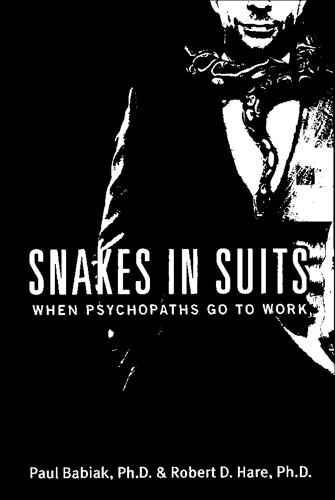
Snakes in Suits: When Psychopaths Go to Work
by
Dr. Paul Babiak
and
Dr. Robert Hare
Published 7 May 2007
If the reader feels that the process is quite bureaucratic, this is in fact the case, for succession planning systems were originally developed during the period when bureaucracy was the organization model in vogue. Succession planning was an attempt to improve the chances of making the right promotional choices while removing cronyism, nepotism, and other “old boy network” influences from the process. Formal succession planning is one of the few bureaucratic processes that transitional companies can benefit from and should retain. Yet we would argue that there are still some risks involved, and holes in the process can be taken advantage of by manipulative employees.
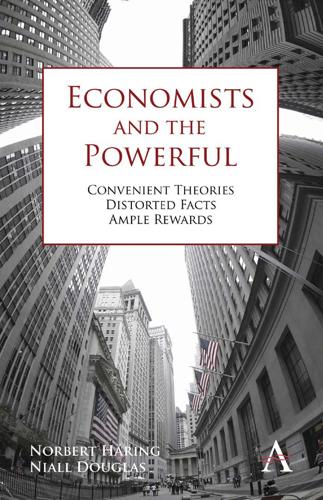
Economists and the Powerful
by
Norbert Haring
,
Norbert H. Ring
and
Niall Douglas
Published 30 Sep 2012
It disregards a phenomenon that sociologists (particularly Bourdieu) have long recognized but economists have eschewed, the “corporate small world” phenomenon. Each knows each other and respects each other’s sphere of influence and authority of decision making. 116 ECONOMISTS AND THE POWERFUL For France, where old boys’ networks based on elite academic institutions are particularly important, Nguyen-Dang (2008) found that the firm performs worse if the CEO and at least one board member are graduates from the same elite college than it does if the board has no graduates from elite colleges. Furthermore, if at least two directors have graduated from the same elite college with the CEO, the normal relationship between poor CEO performance and more firings disappears.
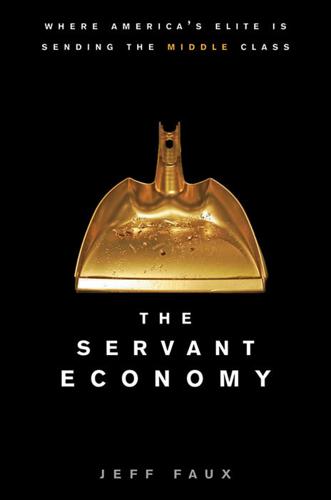
Servant Economy: Where America's Elite Is Sending the Middle Class
by
Jeff Faux
Published 16 May 2012
Dale Carnegie’s 1936 book, How to Win Friends and Influence People, the granddaddy of self-help books, was a milestone. It legitimized the manipulation of human relationships in the service of career and provided the psychological techniques for doing it. Selling themselves with these techniques, clever ambitious outsiders might bypass the “old boys’” network in their ascent up their career ladders. The Internet has revolutionized networking—Rolodexes replaced by e-mail lists replaced by Facebook and Twitter—and according to Slaughter, therein lies America’s great advantage. Slaughter notes, “Every CEO advice manual published in the past decade has focused on the shift from the vertical world of hierarchy to the horizontal world of networks.
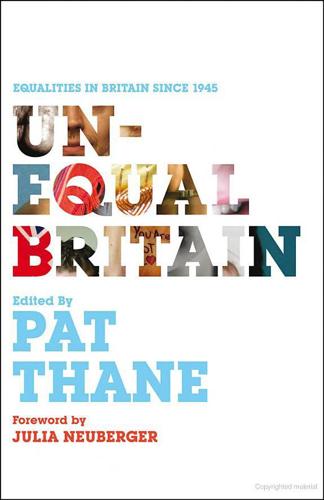
Unequal Britain: Equalities in Britain Since 1945
by
Pat Thane
Published 18 Apr 2010
Publications like The Voice and Asian Age have also provided ethnic minority journalists with a route into the mainstream media, although research suggests that ‘low-level racism’ still pervades the culture of the newsroom.33 A heavy reliance on unpaid internships and personal contacts as ways into the media tends to exclude those who are outside the ‘old boys’ network’ and those with fewer financial resources. Television has a better record than newspapers, with the success of pioneers such as Trevor MacDonald and Moira Stewart in the 1970s, replicated by Krishnan Guru-Murthy and Zeinab Badawi since the 1990s, although minority ethnic groups remain under-represented in the mainstream media.
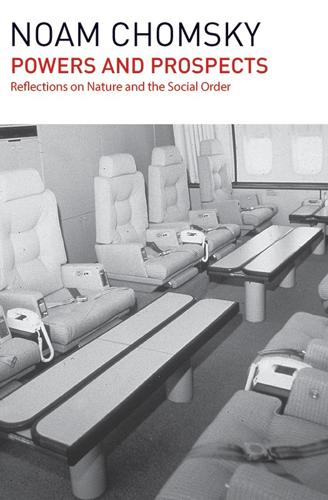
Powers and Prospects
by
Noam Chomsky
Published 16 Sep 2015
Concerned about ‘the creation of an entrenched underclass’, she is running a training class to teach proper attitudes to people who had ‘egalitarian values drilled into their minds’ in the days when ‘the proud slogan used to be: “I am a miner, who else is better?”’. The fast learners now know the answer to that question: the ex- Nomenklatura, rich beyond their wildest dreams as they become the agents of foreign enterprises, which naturally favour them because of their skills and experience; the bankers set up in business through the ‘old boy network’; the Polish women enjoying consumer delights; the government-assisted manufacturers of elegant dresses for export to other rich women. In brief, the right kind of people. Those are the successes of American values. Then there are the failures, still on the slow lane. Perlez selects as her example a 43-year-old coal miner, who ‘sits in his wood-paneled living room admiring the fruits of his labor under Communism—a television set, comfortable furniture, a shiny, modern kitchen’, now unemployed after 27 years in the mines and thinking about the years before 1989.
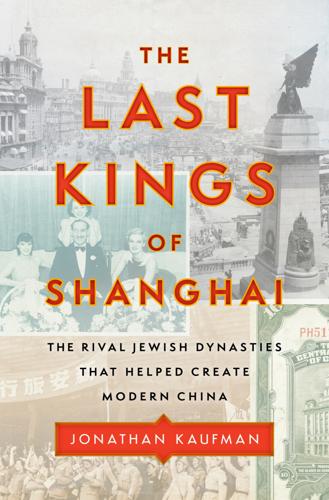
The Last Kings of Shanghai: The Rival Jewish Dynasties That Helped Create Modern China
by
Jonathan Kaufman
Published 14 Sep 2020
Realizing the value of being able to negotiate with local businessmen, he learned Hindustani and became close friends with one of India’s biggest cotton traders. From him, David learned that British brokers were complaining that the bales bought from India contained too many stones. Using this information, David imported new cotton gins that solved this problem and produced more marketable cotton. When he was turned away from the old-boy network of British banks, he helped found the Bank of Bombay, which enabled him to finance new railway lines to ship cotton from the countryside more quickly. Two decades later, when the North blockaded the South in the American Civil War, cutting off the biggest supplier of cotton to Britain, David was perfectly situated to step into the breach—and to make millions.

Supremacy: AI, ChatGPT, and the Race That Will Change the World
by
Parmy Olson
Go to breakfast at Buck’s in Woodside, California, and you might catch the cofounder of Yahoo having a fruit and yogurt combo while sitting at the same table where Elon Musk had his first funding meeting for PayPal. Grab a drink at the Musto Bar at the Battery Club in San Francisco and you could spot one of the cofounders of Facebook. Altman quickly integrated himself into Silicon Valley’s web of programmers, investors, and executives. If you knew how to plug yourself into this modern old-boys network, you were more likely to get swept up in the success that propelled its members to billionaires. Altman was so good at networking that he managed to make the right connections to present Loopt at Apple’s prestigious annual conference for developers in 2008. Dressed in jeans and two green and pink polo shirts that gave him the look of a children’s TV presenter, the slender young entrepreneur told his audience that Loopt was the largest social mapping service in the world.
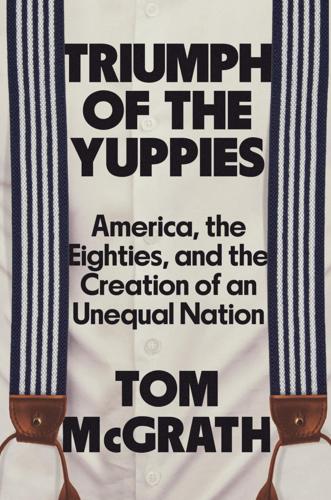
Triumph of the Yuppies: America, the Eighties, and the Creation of an Unequal Nation
by
Tom McGrath
Published 3 Jun 2024
The more research he did, the more financing deals he put together, the more success he had, the more he was convinced that the traditional Wall Street way of doing things—of cozy relationships and credit rating agencies that looked more at a company’s past than its future—was not just inefficient, it was elitist. Great ideas, great companies that could revitalize the economy and give people jobs, were never getting a chance, because they weren’t part of the old boy network. His approach, in contrast, was democratizing. Did you have a good idea? Did you have the chops to pull it off? Did the numbers work? Then he’d help you raise money. It was the ultimate meritocracy. The higher pursuit was perhaps what made him so obsessed. He not only got to the office each morning at four thirty, but had his head buried in stock tables and spreadsheets while driving there.
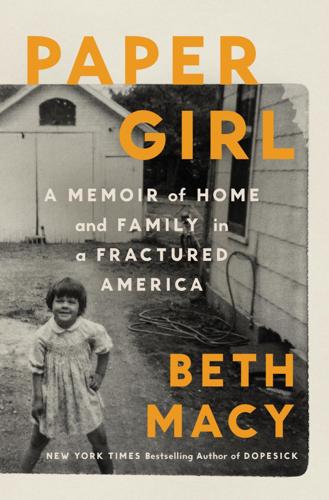
Paper Girl: A Memoir of Home and Family in a Fractured America
by
Beth Macy
Published 6 Oct 2025
The same painted sign hangs over the front counter, saying, books are keys to knowledge. The Urbana Youth Center survives mainly on donations, and the center’s lack of governmental support weighs on its director, Justin Weller. A former Hillclimber football standout who, at twenty-seven, became an entrepreneur, Weller attempted to take on the good-old-boy network in 2019, running for mayor as an independent and losing—by just two hundred votes—to the longtime mayor, Bill Bean. The town’s leaders don’t think much of Weller, because he tends to call things as he sees them: the four-year high school graduation rate of 81 percent, the soaring free and reduced lunch rate, the sky-high ACE scores.

Moneyball
by
Michael Lewis
Published 1 Jan 2003
Two years earlier, after he’d graduated with an honors degree in sociology, Forst had been invited to the Red Sox spring training camp. Dismissed in the final cut, he sent his résumé around big league front offices and it caught Paul DePodesta’s eye. And so, surely for the first time since the dead ball era, the Harvard Old Boys’ network came to baseball. Paul himself sat at the desk on the other end of the room. I ask them if it ever troubled them to devote their lives, and expensive educations, to a trivial game. They look at me as if I’ve lost my mind, and Paul actually laughed. “Oh, you mean as opposed to working in some deeply meaningful job on Wall Street?”
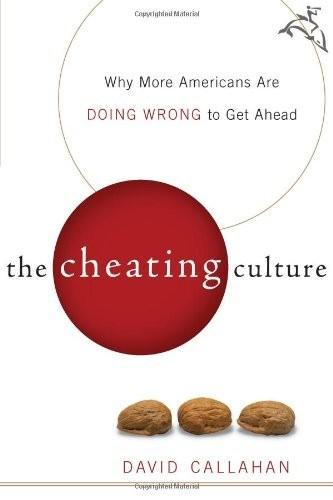
The Cheating Culture: Why More Americans Are Doing Wrong to Get Ahead
by
David Callahan
Published 1 Jan 2004
And believe it or not, stronger ethical codes have been enacted in nearly all of society's major institutions over the past quarter century—especially in the business world. Another major victory for fairness and equal justice has come from the triumphs of feminism and multiculturalism since the '60s, which have slowly weakened the exclusionary bonds of old-boy networks in numerous sectors of society. Still, amid all these important gains, "the Brazilianization" of American society marches forward and could grow worse.38 If vast income gaps are left unaddressed, as they are in Brazil; if so many Americans continue to feel economically insecure, as so many Brazilians do; and if a two-tier system of justice continues to prevail—one for the rich and one for everyone else—as it does in Brazil, more and more people will question the basic legitimacy of the social contract governing our society, as many long have in Brazil.
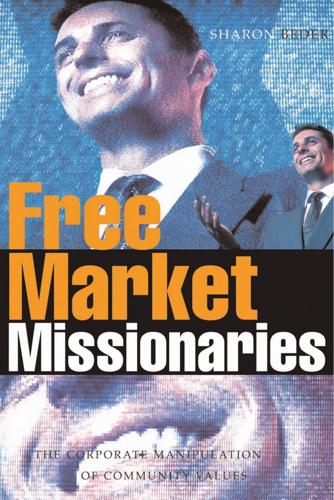
Free Market Missionaries: The Corporate Manipulation of Community Values
by
Sharon Beder
Published 30 Sep 2006
At the time, Australia was facing some economic problems such as high inflation and low economic growth, and these think tanks represented the situation as an economic crisis caused by a failure of the welfare state. They attacked government and union power and spending and praised the virtues of free and unimpeded enterprise.31 Although these corporate-funded pro-market think tanks still used the ‘old boys networks’ of ‘the club, the state, the media, the university, etc.’, they ‘developed new ways of operating, for example, the conference circuit, and the journal’ as well as the submission, the report, and the consultancy; all used to apply ‘focused pressure on target bodies’.32 A number of Australian think tanks are modelled on US think tanks and have close ties with some of them, including the Heritage Foundation, the Cato Institute and the American Enterprise Institute.33 Millions of dollars were being channelled into these organizations each year for the promotion of conservative, market-oriented ideas.34 132 FREE MARKET MISSIONARIES PROLIFERATING THINK TANKS The Centre for Policy Studies (CPS), based at Monash University, was founded and headed by Professor Michael Porter, a member of the Mont Pèlerin Society.
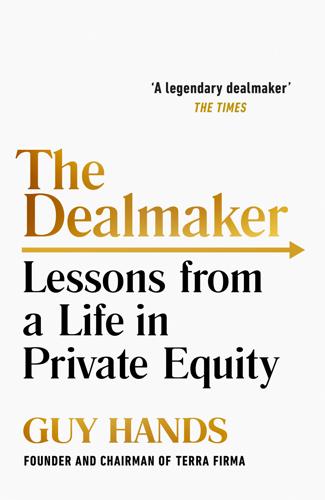
The Dealmaker: Lessons From a Life in Private Equity
by
Guy Hands
Published 4 Nov 2021
Smelling blood in the water, American investment banks circled the City, waving their chequebooks and buying up firms from senior partners who, with rare exceptions, recognised that the new world was not for them and who were therefore happy to cash in and retire to their country estates. The environment quickly changed as trading screens replaced open outcry trading. And so did the City’s culture and work ethic. It became less clubby, less old-boy-network, less drunk and marginally less sexist and racist. At the same time it became more egalitarian, self-righteous, competitive, aggressive, conceited and greedy. Intellect and technology combined to make money and those who survived felt they had earnt it. The government, meanwhile, applauded the ever-increasing tax contribution that the City made to the British economy.
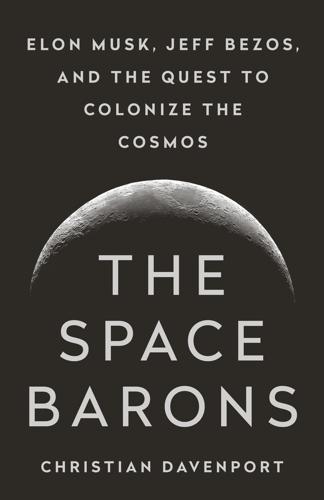
The Space Barons: Elon Musk, Jeff Bezos, and the Quest to Colonize the Cosmos
by
Christian Davenport
Published 20 Mar 2018
SpaceX shouldn’t worry, Sarsfield wrote; there would be other contracts coming. But that only made Musk angrier, and more determined. Like Andy Beal, he felt that NASA’s role wasn’t to prop up chosen companies. Competition would promote better and safer technologies, at lower costs. This was an old-boys network, and he wanted in—or to smash it. Musk took his complaint to top NASA officials, and in a meeting at NASA headquarters in Washington, threatened to file a legal challenge over the no-bid contract with the Government Accountability Office (GAO). His colleagues warned him that it was not a smart business decision to threaten an agency that could make or break SpaceX.
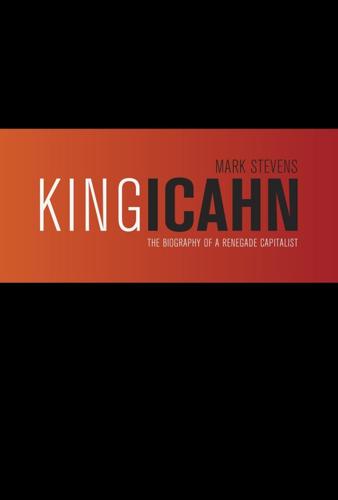
King Icahn: The Biography of a Renegade Capitalist
by
Mark Stevens
Published 31 May 1993
If management were truly interested in maximizing shareholder value, one would think that a man of Icahn’s talents and temperament would be invited to serve as a director. That the idea was noxious—to the extent that the company would prefer to pay greenmail rather than tolerate dissent—gives credence to Icahn’s charge that America’s corporate suits are packed with an old-boy network whose primary purpose is to protect the members’ mediocrity. “In many big corporations, the person who makes waves, who gives criticism, who does things to rock the boat—hell, he’s a persona non grata,” Icahn said. “The guys above him who are worrying about their jets and their other perks see to it that he’s kept down in the ranks.
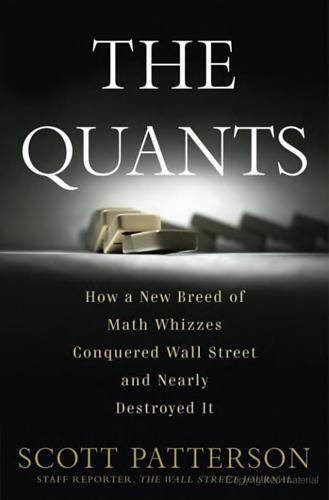
The Quants
by
Scott Patterson
Published 2 Feb 2010
In “The Use, Misuse and Abuse of Mathematics in Finance,” published in 2000 in Philosophical Transactions of the Royal Society, the official journal of the United Kingdom’s national academy of science, he wrote: “It is clear that a major rethink is desperately required if the world is to avoid a mathematician-led market meltdown.” Financial markets were once run by “the old-boy network,” he added. “But lately, only those with Ph.D.’s in mathematics or physics are considered suitable to master the complexities of the financial market.” That was a problem. The Ph.D.’s might know their sines from their cosines, but they often had little idea how to distinguish the fundamental realities behind why the market behaved as it did.
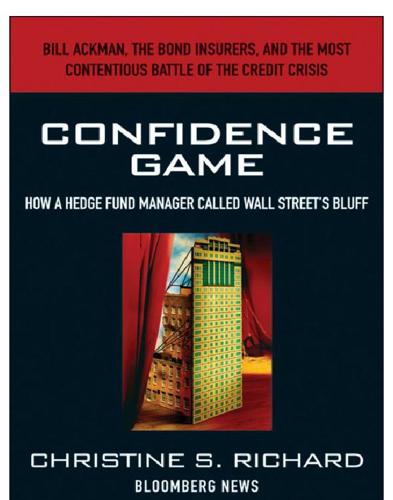
Confidence Game: How a Hedge Fund Manager Called Wall Street's Bluff
by
Christine S. Richard
Published 26 Apr 2010
Many people made money betting against financial firms, but they did it without ever going public, he says, describing the conventional wisdom: “‘Why should I be the bearer of bad news? Why should I have everyone at the country club or the commuter train or the downtown eating club upset with me? It’s the old boys’ network, and they won’t let me in on deals. I know this is going to come crashing down. Why warn the world?’” Ackman adopted a different tactic, Blumenthal says. Ackman and Katzovicz were getting some traction in Washington as well. Ackman had written to Massachusetts congressman Barney Frank, reminding him that the bond insurers’ situation had continued to deteriorate since Ackman and Frank met in June.

Poisoned Wells: The Dirty Politics of African Oil
by
Nicholas Shaxson
Published 20 Mar 2007
She had opened up a paper trail that would reveal Elf Gabon—also part-owned by the Gabonese state and by Bongo—as the origin of giant, oily offshore slush funds for funneling cash to French political parties, and for tides of corrupt money sluicing around the globe. Joly faced an intimidating old-boy network, a caste of mandarins from elite finishing schools like the École Nationale d’Administration, who have controlled political power and the bureaucracy for centuries, rotating among political posts, the secret services, and state companies like Air France, Thomson-CSF, and, of course, Elf. The system of revolving doors is sometimes known as pantouflage—from the French word for slippers— because moving from one post to the next is so easy that when you get to your next job, your slippers are waiting for you.
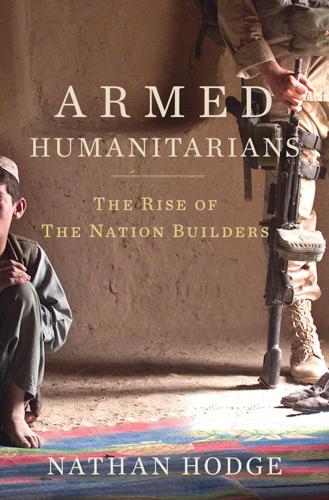
Armed Humanitarians
by
Nathan Hodge
Published 1 Sep 2011
And the set of tools they wanted to develop could apply as easily to Haiti as they could to Iraq. Part of the problem was cultural. In January of 2006, Hillen flew out to Iraq for a short fact-finding trip. The brief stay of about five days was frustrating. To get around the country, Hillen had to draw on the old-boy network from his days in the military, hitching rides on helicopters and a C-12 transport plane. He spent one night out in the field with the Third Armored Cavalry Regiment, commanded by his old friend, Colonel H. R. McMaster. The visit to Iraq cemented Hillen’s views: The 80 percent political side of counterinsurgency was missing from the equation.

Cuckoo's Egg
by
Clifford Stoll
Published 2 Jan 1989
This is more fun than worrying about patent law.” The laboratory police wanted to know all about the phone trace. I told them to prepare to stake out the entire state of Virginia. Despite my cynicism, they were surprisingly sympathetic to my problem with the Virginia search warrant, and offered to use their old-boy-network to get the information through some informal channel. I doubted it would work, but why not let them try? The phone company might conceal the hacker’s phone number, but my printers showed his every move. While I talked to Tymnet and the telephone techs, the hacker had prowled through my computer.
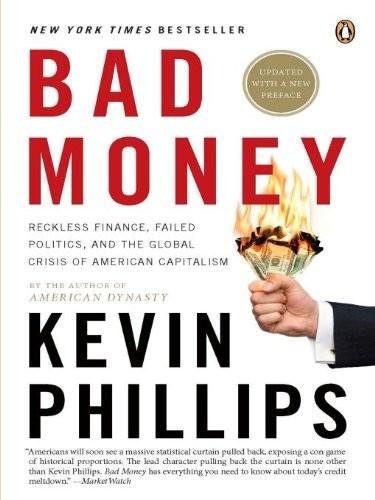
Bad Money: Reckless Finance, Failed Politics, and the Global Crisis of American Capitalism
by
Kevin Phillips
Published 31 Mar 2008
In this devastating book, onetime Republican strategist Phillips reveals how four generations of Bushes have ascended the ladder of national power since World War I, becoming entrenched within the American establishment—Yale, Wall Street, the Senate, the CIA, the vice presidency, and the presidency—through a recurrent flair for old-boy networking, national security involvement, and political deception. “Fresh and damning . . . Phillips’s marshaling of evidence has cumulative power. None of the other recent critical, liberal books about George W. Bush have this sort of sweep or impact. American Dynasty is so sober and steeped in learning that readers will wonder how President Bush, or any man’s family, could stand this depth of exposure. . . .
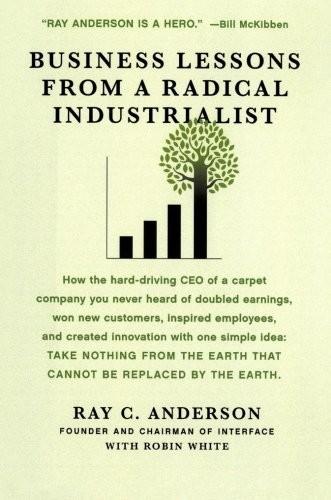
Business Lessons From a Radical Industrialist
by
Ray C. Anderson
Published 28 Mar 2011
So, you can divide our efforts into two parts: what happens inside the circle, and what we can do to bring more people into it from the outside. Let’s talk about what happens inside, first. Our own culture shift in the direction of sustainability has many components. It begins with constant emphasis on safety in the workplace. It extends to organizing women’s networks within the company, to counterbalance any good old boy networks still in place. And it includes diversity efforts, both inside the company and outside in our marketplace. It includes our Fairworks™ program, which purchases carpeting from traditional weavers in poor, rural Indian villages. These beautiful, handwoven products are adapted into modular flooring designs that find a natural home in some of the most elegant buildings in the world’s greatest cities.
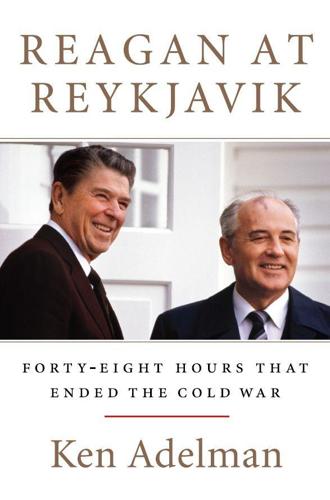
Reagan at Reykjavik: Forty-Eight Hours That Ended the Cold War
by
Ken Adelman
Published 5 May 2014
In fact, Perle became interested enough to specialize in strategic theory at the University of Southern California. After a year at the London School of Economics, he attended Princeton to earn a master’s degree and was well on his way to a doctorate when Wohlstetter steered him to Nitze, then looking for a bright researcher. Before long, the old boys’ network kicked in again when Nitze introduced Perle to Senator Henry Jackson, who quickly hired him to focus on U.S. relations with the Soviet Union. Perle joined Scoop Jackson’s staff in 1969, just after losing both of his parents. The senator became not only his boss but a father figure, with deep affection flowing both ways until Scoop’s sudden death in 1983.
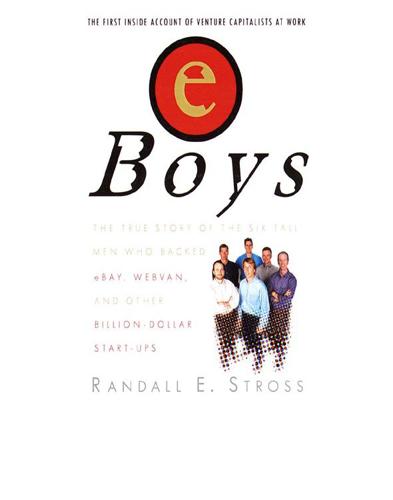
eBoys
by
Randall E. Stross
Published 30 Oct 2008
A firm’s culture is what is most important, and to him Benchmark’s founding principle of an equal partnership had been essential: “Same salaries, same carry, one person, one vote, no managing director.” Regardless of where younger venture capitalists worked, there was one universal way for them to promote their own careers: Serve entrepreneurs, the Benchmark refrain. “This isn’t the old days—there’s no longer an old boys’ network,” he noted, so when capital was a commodity, service was the only way to differentiate oneself. “Managing a Career” was simple: “You will succeed,” he advised, “by helping others succeed.” In his own case, he had discovered so far that it was his prior experience as an entrepreneur, not in high-tech executive search, that had proven to be most useful to the entrepreneurs he was working with.
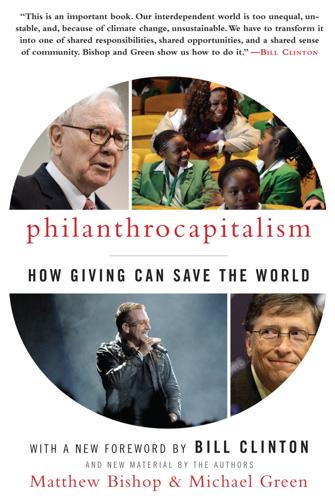
Philanthrocapitalism
by
Matthew Bishop
,
Michael Green
and
Bill Clinton
Published 29 Sep 2008
In the for-profit world, networking is hot, online and off-line. Increasingly, the same is true in philanthropy, as some philanthrocapitalists— Bill Clinton first among them—even believe they can have a greater impact by leveraging their personal networks of contacts for good than by the money they give. This is certainly not your father’s idea of the old boy network. The big, high-profile off-line networking events are the CGI and the World Economic Forum in Davos. But many philanthropists are joining one or more of the growing number of smaller networking organizations that champion giving, allow givers to share experiences and lessons, and generally seek to spread best practice.
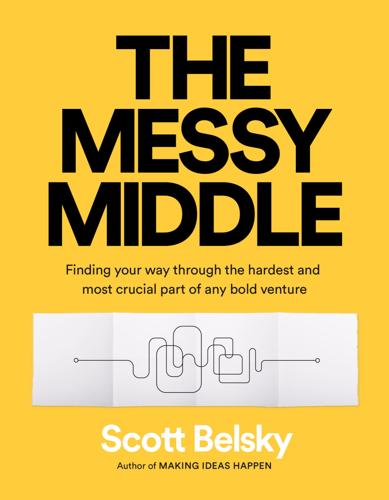
The Messy Middle: Finding Your Way Through the Hardest and Most Crucial Part of Any Bold Venture
by
Scott Belsky
Published 1 Oct 2018
We make stuff often, and we therefore fail often. Ultimately, we strive for little failures that help us course-correct along the way, and we view every failure as a learning opportunity that’s simply part of our experiential education. We have little tolerance for the friction of bureaucracy, old-boy networks, and antiquated business practices. We question standard operating procedures and assert ourselves. And when we can’t, we don’t surrender to the friction of the status quo: Instead, we find clever ways (and hacks) around it. We expect to be fully utilized and constantly optimized, regardless of whether we’re working in a start-up or a large organization.
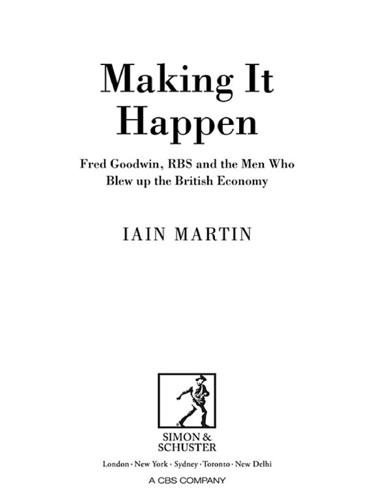
Making It Happen: Fred Goodwin, RBS and the Men Who Blew Up the British Economy
by
Iain Martin
Published 11 Sep 2013
This was designed to emphasise that the Labour leadership was not composed of radical socialists hell-bent on nationalising either the Stock Exchange or the banks. Despite these efforts, the Presbyterian Brown seemed initially distrustful of the City’s culture. A little like his fellow Scot George Mathewson at the Royal Bank of Scotland, the Chancellor was an outsider in that world and correctly detected the hand of various old-boy networks. If New Labour won power there would have to be changes in the way the City of London and financial services were regulated, in order to make them fit for Brown’s new era. City scandals certainly suggested change was necessary. In 1991 BCCI, the Bank of Credit and Commerce International, the London-based international bank, imploded.
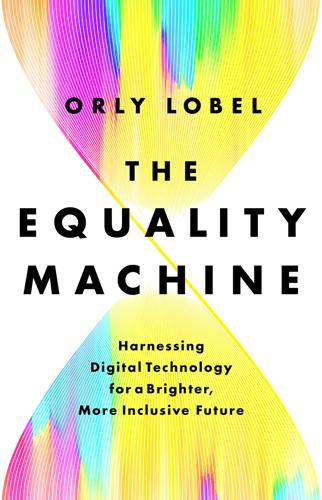
The Equality Machine: Harnessing Digital Technology for a Brighter, More Inclusive Future
by
Orly Lobel
Published 17 Oct 2022
If a company’s roles are largely filled by white men, then diversifying through informal hiring practices is a near impossibility. Word-of-mouth hiring is also notoriously exclusionary: friends bringing in friends, colleagues networking and mentoring others in the market and communicating opportunities informally—these are recipes for the exclusion of those who are not already in the proverbial old boys’ network. Online advertisement and recruitment platforms can be a way to recruit more widely and to disseminate information about positions to people outside a company’s immediate network, but the risk of replicating and amplifying past biases and exclusions persists; targeted online job advertisements can end up excluding women, minorities, and older workers.
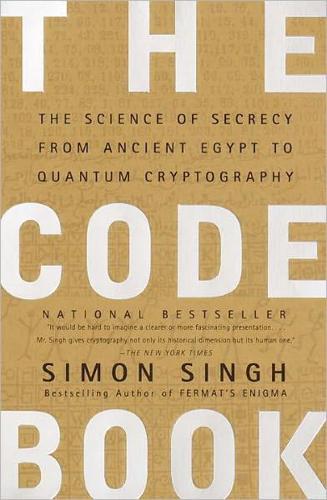
The Code Book: The Science of Secrecy From Ancient Egypt to Quantum Cryptography
by
Simon Singh
Published 1 Jan 1999
The Polish breakthroughs also demonstrated to the Allies the value of employing mathematicians as codebreakers. In Britain, Room 40 had always been dominated by linguists and classicists, but now there was a concerted effort to balance the staff with mathematicians and scientists. They were recruited largely via the old-boy network, with those inside Room 40 contacting their former Oxford and Cambridge colleges. There was also an old-girl network which recruited women undergraduates from places such as Newnham College and Girton College, Cambridge. The new recruits were not brought to Room 40 in London, but instead went to Bletchley Park, Buckinghamshire, the home of the Government Code and Cypher School (GC&CS), a newly formed codebreaking organization that was taking over from Room 40.

A Very Strange Way to Go to War: The Canberra in the Falklands
by
Andrew Vine
Published 30 Jun 2012
As May began, and Canberra prepared to sail south from Ascension, the chairman of P&O, the Earl of Inchcape, wrote to the Secretary of State for Trade, Lord Cockfield, saying, ‘We have become increasingly anxious about our inability to reach firm agreements with your officials on a number of pressing commercial and legal matters.’ Those matters were to be addressed over lunch between the noble lords two days before Canberra anchored in Bomb Alley, the unspoken understanding being that the old boys’ network would reach a gentlemanly agreement. It did, Inchcape setting out a series of headline costs that P&O was incurring in the service of the country. The company was £4m out of pocket so far from the loss of the £8m that its four ships under requisition earned every month. Insurance premiums for them already ran to £1.7m, and a further round would be due in June.
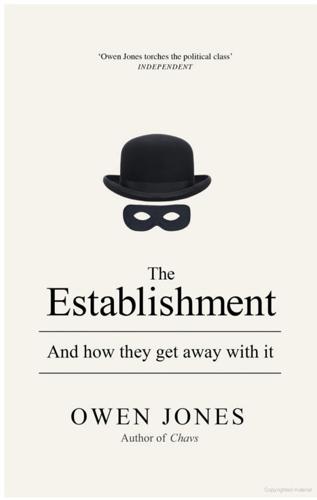
The Establishment: And How They Get Away With It
by
Owen Jones
Published 3 Sep 2014
Back then, two strands dominated: one from public school, and the other from ‘barrowboy’ backgrounds in the East End, with few university graduates. ‘The Big Bang changed everything massively,’ says Darren, who became a trader in derivatives, or complex financial products. The public school ‘old boys’ network was broken up: after all, this new Establishment was not bound together by personal backgrounds, but by a shared way of thinking. The trading floor disappeared in favour of electronic transactions. The City after Big Bang could cater for higher demand than it had previously, and money surged into London’s financial heart.

The Village Effect: How Face-To-Face Contact Can Make Us Healthier, Happier, and Smarter
by
Susan Pinker
Published 30 Sep 2013
Gastroenterology Patel’s teenage daughter, a first generation Indian American, told me in a perfect Appalachian accent that she “reckoned they’re over at the Mehtas’ playing rummy,” which they were.40 If Verghese were white and from Boston instead of from Addis Ababa, his splendid achievements might seem diminished by the suggestion that he simply tapped into an old boys’ network. But he and the medical Patels had intuitively done what successful immigrants do: make the most of their weak bonds. Whether it’s how to be a good doctor or how to find one, we’re more likely to discover redemptive solutions to concrete problems through people we see only occasionally or who are friends of friends of friends.
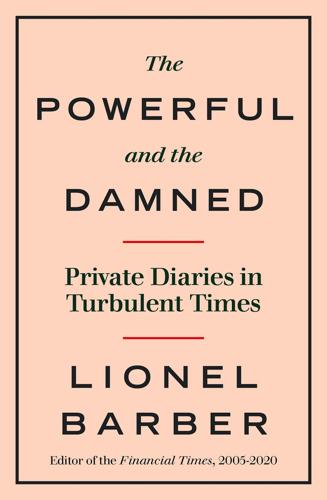
The Powerful and the Damned: Private Diaries in Turbulent Times
by
Lionel Barber
Published 5 Nov 2020
FRIDAY, 16 NOVEMBER The Mail ‘exposé’ of Sir David Bell contains eleven pages of vitriol dressed up as investigative journalism, including a large front-page photo of David wearing a garish red and purple tie and grinning smugly. David – obviously a proxy for Leveson – is accused of being part of a ‘coup by the Left’s old boy network’. The Mail describes the Media Standards Trust – which David sponsored as a rival body to the discredited Press Complaints Commission – as ‘a quasi-masonic nexus of the “people who know best”’. Dacre appears to be goading David to sue. On my reading, the Mail has ventured right up to the libel line but not crossed it.
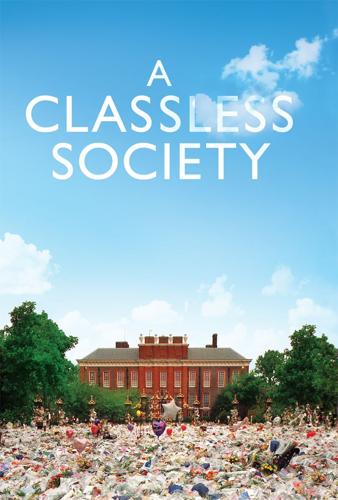
A Classless Society: Britain in the 1990s
by
Alwyn W. Turner
Published 4 Sep 2013
In May 2000 Gordon Brown was speaking at a trade union conference when he raised the case of Laura Spence, an A-level student from a state school in Tyne and Wear, whose GCSE results and predicted grades were sufficient to get her into almost any university, but who was turned down by Magdalen College, Oxford and instead was intending to go to Harvard. This was the result, said Brown, of ‘an interview system more reminiscent of an old boy network and the old school tie than genuine justice for society’. He added: ‘It is about time we had an end to the old Britain, where all that matters is the privileges you were born with, rather than the potential you actually have. It is time that these old universities opened their doors to women and people from all backgrounds.’
…
He referred to Spence’s A-level results, when she had yet to sit the exams, and he failed to notice that of the twenty-seven applicants for five places to study medicine at Magdalen, all had comparable GCSE results, while three of the successful applicants were from ethnic minorities and three were women. It wasn’t quite so clear a case of an ‘old boy network’ as it seemed from the initial newspaper reports, which appeared to be the only information from which Brown was working. The speech generated a huge amount of press coverage. Some of it was encouraging – ‘The chancellor really is talking our language,’ said the Sun – though the broadsheets were far less favourable, criticising Brown’s ‘harsh and uninformed attack’.
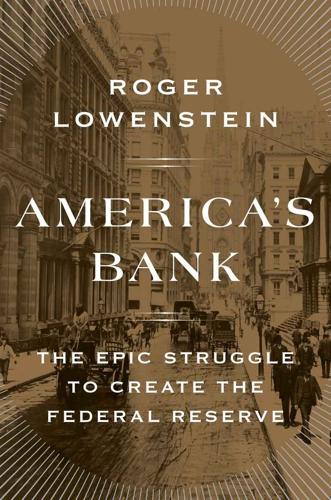
America's Bank: The Epic Struggle to Create the Federal Reserve
by
Roger Lowenstein
Published 19 Oct 2015
According to Joseph Tumulty, soon to be Wilson’s White House secretary, the president-elect said he wanted “to take away from certain financial interests in the country the power they had unjustly exercised of ‘hazing’ the Democratic Party at every Presidential election.” As if another rationale were needed, days before the inauguration Samuel Untermyer submitted the final report of the Money Trust investigation. It was a scorching indictment of the old-boy network that dominated American finance. Untermyer’s relentless cross-examinations and eye-catching charts had documented the web of interlocking directorships that knit Wall Street and corporate America. (Frank Vanderlip testified, to his embarrassment, that he held directorships in thirty-five corporations.)

Bottle of Lies: The Inside Story of the Generic Drug Boom
by
Katherine Eban
Published 13 May 2019
Thakur assured him that they would put in a new link between the hospital and Ranbaxy’s data center. Thakur sent another member of his team back. This time they weren’t even allowed to enter the facility. To Thakur, the most logical explanation for this behavior was that he’d entered a hierarchical old-boys’ network, whose long-term staff felt usurped. Not only was he new to the company, but he had come from the world of branded drugs. He figured his new colleagues might be on the lookout for a superior attitude. Thakur resolved to move slowly and politely, so he would not be accused of pushing them around—a point echoed in a management review that he’d undergone not long after he arrived at Ranbaxy.
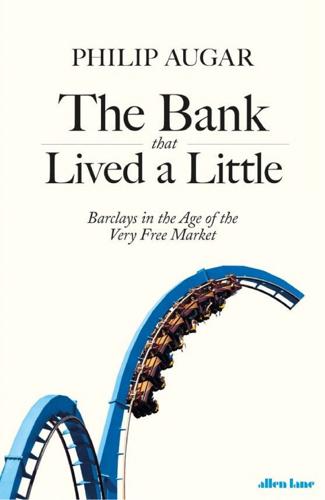
The Bank That Lived a Little: Barclays in the Age of the Very Free Market
by
Philip Augar
Published 4 Jul 2018
The New York office, where she discovered weak governance and compliance, problems with the regulators, overpaid staff and ongoing sexual harassment suits, was a particular concern to her. Sally wanted to tell someone and the new chief executive looked like exactly the right man. REALITY DAWNS Taylor and Bott met for the first time at the end of January 1994. She spoke about the lack of diversity and the old boy network. She told him that the City was living in the past. Band wanted BZW to be like J. P. Morgan but she warned Taylor that that would not happen without a transformation in people, process and culture. BZW was better than many other British banks but it was not in the global league and under present management never would be.
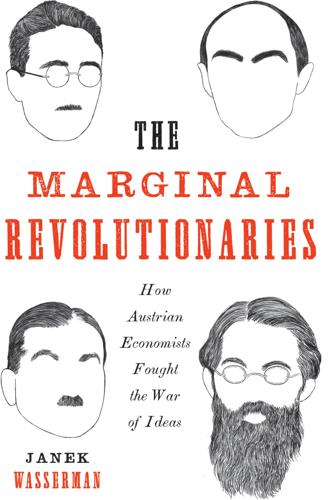
The Marginal Revolutionaries: How Austrian Economists Fought the War of Ideas
by
Janek Wasserman
Published 23 Sep 2019
The parents and grandparents of school members gained noble titles for their contributions to Austrian modernization. The Mengers, Böhms, and Wiesers all carried a “von” in their names, designating aristocratic privileges. So would Mises, Hayek, Haberler, and others. The Austrian School was from its inception at the same time a “most successful scientific school” and a “highly influential ‘old boy’ network.”15 It was within this liberal world of cultural, political, and business elites that the Austrians developed their theories. It was also where they fought for relevance. As Menger and his allies introduced the marginal utility revolution, they faced multiple adversaries—in the Habsburg state and bureaucracy and in German-speaking universities and professional associations.
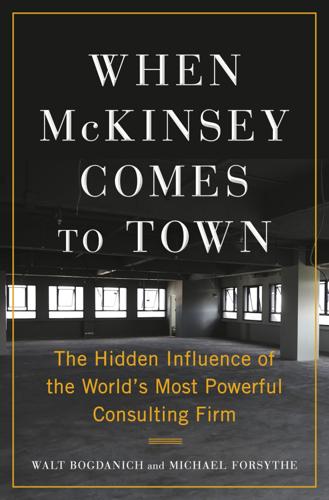
When McKinsey Comes to Town: The Hidden Influence of the World's Most Powerful Consulting Firm
by
Walt Bogdanich
and
Michael Forsythe
Published 3 Oct 2022
The government’s “Anticorruption Champion,” whose remit would include looking into the slew of no-bid contracts awarded to private firms, was John Penrose, a Conservative member of Parliament who is also Baroness Harding’s husband. They met while both were working at McKinsey. Harding had attended Oxford, just like Johnson, David Cameron, and twenty-six other British prime ministers. The British old boys’ network, which now included women, had a new name: the chumocracy. By the spring of 2021, Johnson’s popularity had risen. One reason: Britain’s unquestioned success at getting its population vaccinated. The U.K. was a world leader in rolling out its COVID vaccination program, and it was largely thanks to the organizational abilities of the government’s NHS, whose doctors and nurses gave the injections, free of charge.

Killing Thatcher: The IRA, the Manhunt and the Long War on the Crown
by
Rory Carroll
Published 15 Mar 2023
“This woman is headstrong, obstinate and dangerously self-opinionated,” said one firm’s personnel department, rejecting her application. After finding a job as a research chemist at a plastics company, she embarked on a law degree, deeming it a springboard to politics, and started to zigzag through the Conservative Party’s old boy network. Impeccably dressed, she spoke confidently, remembered everything, and worked, worked, worked, addressing meetings, canvassing, handing out flyers, quelling hecklers. She supported capital punishment, fiscal restraint, and the atomic bombing of Japan. Socialism, she warned, turned the human spirit into a caged bird.
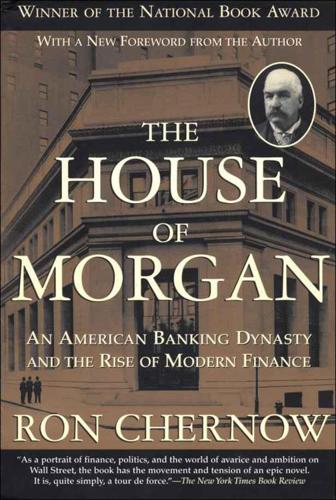
The House of Morgan: An American Banking Dynasty and the Rise of Modern Finance
by
Ron Chernow
Published 1 Jan 1990
The Knickerbocker’s failure triggered runs on other trusts, especially the Trust Company of America, which was just down Wall Street from the Morgan bank. On Wednesday, October 23, Pierpont summoned the trust presidents and tried to prod them into a rescue pool. It turned out they didn’t know one another, making it difficult for them to band together in a crisis. The situation illustrated why bankers believed implicitly in their old-boy networks. After Ben Strong delivered a favorable report on the Trust Company of America, Pierpont made his ex cathedra pronouncement: “This is the place to stop the trouble, then.”7 Morgan, George F. Baker of First National Bank, and James Stillman of National City Bank provided $3 million to save the Trust Company of America.
…
There were proposals to outlaw guarantees for third parties who bought shares during a takeover (the “Seelig clause”) and to avert share buying by companies with a commercial stake in the outcome (the “Riklis clause,” after Meshulam Riklis of Schenley Industries). The City shifted further from the old-boy network to a strictly policed financial center. Awaiting the outcome of the interminable government investigations, Morgan Grenfell found itself in a terrible limbo. In May 1987, Ernest Saunders was arrested for allegedly destroying and fabricating Guinness documents. Later that year, Roger Seelig was arrested and charged with faking £2.5 million in invoices that were used, at least in part, as covers to indemnify members of the “fan club.”
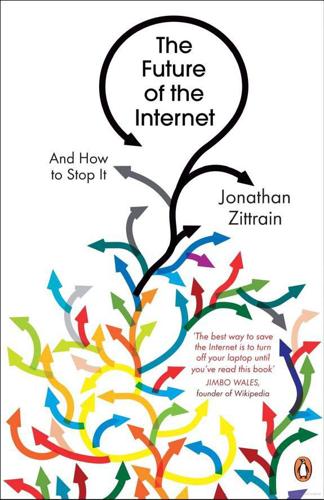
The Future of the Internet: And How to Stop It
by
Jonathan Zittrain
Published 27 May 2009
in 1998 for $49 million.23 He finished his degree and is now a tenured professor at MIT24 As a postmortem to the Morris worm incident, the Internet Engineering Task Force, the far-flung, unincorporated group of engineers who work on Internet standards and who have defined its protocols through a series of formal “request for comments” documents, or RFCs, published informational RFC 1135, titled “The Helminthiasis of the Internet.”25 RFC 1135 was titled and written with whimsy, echoing reminiscences of the worm as a fun challenge. The RFC celebrated that the original “old boy” network of “UNIX system wizards” was still alive and well despite the growth of the Internet: teams at university research centers put their heads together—on conference calls as well as over the Internet—to solve the problem.26 After describing the technical details of the worm, the document articulated the need to instill and enforce ethical standards as new people (mostly young computer scientists like Morris) signed on to the Internet.27 These reactions to the Morris worm may appear laughably inadequate, an unwarranted triumph of the principles of procrastination and trust described earlier in this book.
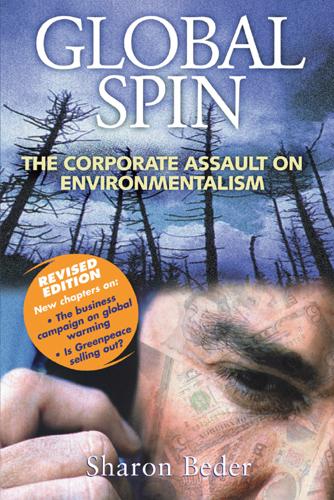
Global Spin: The Corporate Assault on Environmentalism
by
Sharon Beder
Published 1 Jan 1997
“For the first time since the 1930s, business found its political influence seriously challenged by a new set of interest groups.”5 Grefe and Linsky describe the traditional business approach in their book The New Corporate Activism: Back then, it was standard for organizations to conduct their government relations in accordance with a “fix-it” mentality. They had a problem. They hired a lobbyist. They said, “Fix-it!” What they meant was “Kill it or make it go away”. . . It was ‘influence peddling’, quite simply—that is, finding the person who knew the legislator or regulator and getting him (it was always a ‘him’ in those days of the old-boy network) to bury the problem.6 The First Wave of Corporate Activism in the US In various business meetings, corporate executives lamented their decline in influence. “The truth is that we’ve been clobbered”, the Chief Executive Officer of General Motors told chiefs from other corporations. The Chairman of the Board of General Foods asked “How come we can’t get together and make our voices heard?”
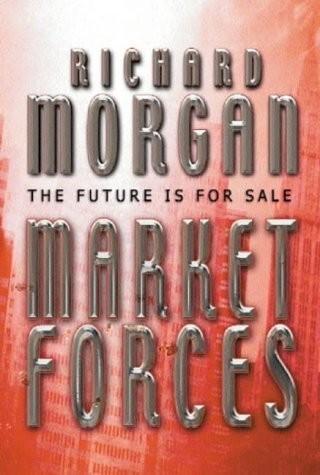
Market Forces
by
Richard K. Morgan
Published 4 Mar 2004
Think about the times. The domino recessions are scratching at the door, you’ve got to do something. Most investment houses and major corporations are waterlogged with top-end personnel. Ex-politicians on sinecure non-executive directorships, useless executive directors shipped around on the old-boy network from golden handshake to golden handshake, headhunted bright young things staying the obligatory two years then shipping out for the next move up on rep vapour and nothing else, because I ask you what, in two years, have you really achieved in a corporate post? And that’s just how we were fucking things up at the anglo end of the cultural scale.

Ghost Fleet: A Novel of the Next World War
by
P. W. Singer
and
August Cole
Published 28 Jun 2015
The pitcher then pivoted and threw out the runner on first, ending the inning. “All right, let’s light it up,” she said. The secretary of defense, who’d been an aerospace executive before she was brought into the administration, casually held a cigar in her right hand. It was part of her shtick, that she was more of an old boy than anyone in the old boys’ network she’d knocked down on her way to the top of the business. Simmons noticed the cigar was the real thing, not the e-cigar his former mentor smoked indoors. Admiral Murray seemed unfazed by the purple smoke starting to cloud up the room, but this was the first time anybody had smoked inside the Z during his command.
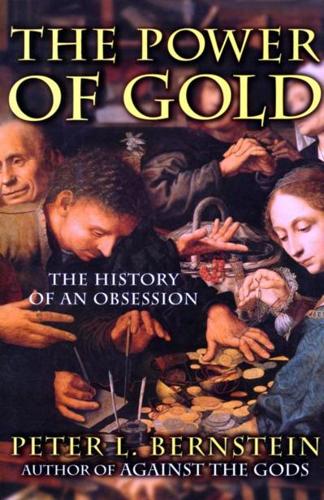
The Power of Gold: The History of an Obsession
by
Peter L. Bernstein
Published 1 Jan 2000
The key distinctions were political in nature. All of these differences were shaped by the unique character of a brand-new country only one hundred years old when all of these events were taking place. The United States was also situated far away from Europe's two thousand years of shared history and the old-boy network that dominated its financial institutions. On top of all that, American society was more open and fluid than European society, the forces of democracy and the passion for liberty and equality were more vocal and more determined, and most of the wealth was "new wealth" rather than wealth handed down by a landed aristocracy or the ancestral fortunes like those of the Rothschilds or Barings.
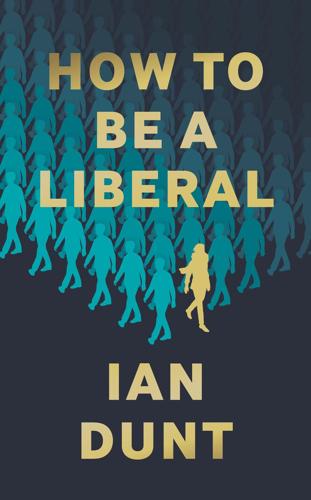
How to Be a Liberal: The Story of Liberalism and the Fight for Its Life
by
Ian Dunt
Published 15 Oct 2020
France, Germany, Italy, Belgium, Luxembourg and the Netherlands enshrined equal pay for men and women in the 1957 Treaty of Rome. The US passed the Equal Pay Act in 1963, outlawing separate pay scales for women and men. Britain implemented similar legislation in 1970. Firms were forced to change the way they did business. They could no longer perpetuate the old boys’ network by filling vacancies through word of mouth. Now they had to advertise each post, which made it harder – although by no means impossible – to discriminate against qualified applicants. Women gained control over their own body. In 1967, Britain significantly expanded the conditions for legal abortion.
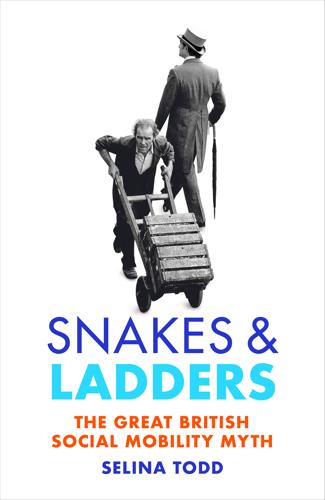
Snakes and Ladders: The Great British Social Mobility Myth
by
Selina Todd
Published 11 Feb 2021
A study of seventy-seven judges who graduated between 1959 and 1979 found that almost half got their first job directly via friends or family. Others benefited from the advice and contacts of university tutors at the elite institutions they attended. ‘Pupillages [traineeships for barristers] were done partly on the old-boy network’, reported a former public schoolboy, born in the late 1940s; ‘the father of a friend … placed me as a pupil’.76 In the 1960s, successive investigations showed that the most lucrative and powerful professions, including law, medicine and the Civil Service, gave preferential treatment to applicants from professional backgrounds.77 Leading medical schools acknowledged that the children of doctors ‘would [automatically] be included in the list for interviews’, while having parents in the professions ‘would not be a disadvantage’.78 Upwardly mobile students were aware that the state’s provision of higher education was directly linked to the need for more workers in professions like teaching.
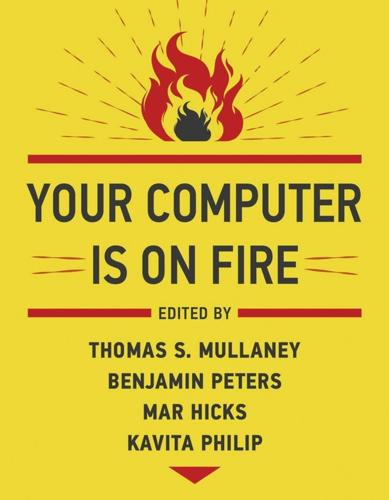
Your Computer Is on Fire
by
Thomas S. Mullaney
,
Benjamin Peters
,
Mar Hicks
and
Kavita Philip
Published 9 Mar 2021
However, the ability to do just that is predicated on having the opportunity to showcase one’s merits in the first place.” Organizations like Code2040 that base their training and advocacy on the real-life experiences of underrepresented groups can expose inequities that may be invisible to Silicon Valley insiders. Weidman points out how the “old boy network,” in which “companies tend to look to their employees’ networks for potential hires,” reproduces the largely white/Asian male workforce. For minority candidates, “it can be hard to even figure out which companies are hiring or could be a good fit for you without someone to help you navigate the waters.”34 The dangers of a misguided belief in meritocracy come in many forms.

Snow Crash
by
Neal Stephenson
Published 15 Jul 2003
During the same years that Rife makes his contributions to the Reverend Wayne, he's showing up with increasing frequency in the business section, first in the local papers and later in The Wall Street Journal and The New York Times. There is a big flurry of publicity—obvious PR plants—after the Nipponese tried to use their old-boy network to shut him out of the telecommunications market there, and he took it to the American public, spending $10 million of his own money on a campaign to convince Americans that the Nipponese were duplicitous schemers. A triumphal cover on The Economist after the Nipponese finally knuckled under and let him corner the fiber-optics market in that country and, by extension, most of East Asia.

The Illegals: Russia's Most Audacious Spies and Their Century-Long Mission to Infiltrate the West
by
Shaun Walker
Published 15 Apr 2025
“Our fingers were tightening around his throat,” Dmitry noted cheerfully in his later record of the encounter.[19] * * * — Dmitry reported to Bazarov that he had nailed down Charlie’s identity, and the pair—in character as Perelly and da Vinci—traveled to London, where Dmitry planned to pay Ernest Oldham a visit at home. He found Ernest’s address in the telephone book—a handsome mansion in upmarket Kensington. Proof, Dmitry thought, that Oldham was of wealthy aristocratic stock. It was a reasonable assumption—the British Foreign Office at that time was an old boy network, with many of its employees knowing each other from private school or Oxbridge—but it was entirely incorrect. Ernest was an anomaly among his colleagues. Until a couple of years prior, he had lived with his parents, who were both schoolteachers, in a terraced house in the working-class suburb of Edmonton.
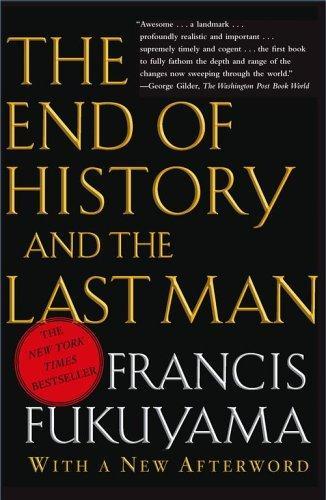
The end of history and the last man
by
Francis Fukuyama
Published 28 Feb 2006
The pressure of economic rationalization also explains why the Mafia persists in the relatively underdeveloped south of Italy rather than in its industrialized north. Patron-client relationships based on non-economic ties obviously persist in modern societies—everyone knows of a boss’ son who was promoted ahead of his colleagues, or old-boy networks used in hiring—but they are usually declared illegal and have to be carried out sub rosa. In this chapter, we have sought to pose the question: Is history directional? We have done this in a deliberately naive form, since there are so many pessimists among us who would deny that history exhibits any directionality whatsoever.
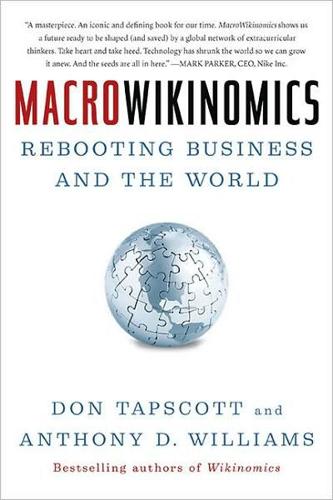
MacroWikinomics: Rebooting Business and the World
by
Don Tapscott
and
Anthony D. Williams
Published 28 Sep 2010
The theory is that if a VC relies on a trusted network of contacts s/he can effectively lessen the number of crappy ideas that s/he has to sift through to find a golden nugget. But in today’s global knowledge economy, the next Facebook, Google, or Tesla Motors is as likely to be born in Tel Aviv as it is to be born in Silicon Valley, as likely in Bangalore as in Boston. And while the “old boys’ network” is good if you are an old boy, it’s not so good if you are a young woman from Brazil with a billion-dollar business innovation. Unfortunately, an unfavorable economic climate has prevented many VCs from exploring new opportunities. Due to the recession, fewer companies are going public and the ones that do are taking longer to become profitable.
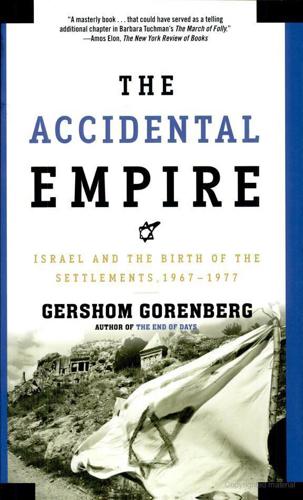
The Accidental Empire: Israel and the Birth of the Settlements, 1967-1977
by
Gershom Gorenberg
Published 1 Jan 2006
A committee recommended slashing the size of the department.84 Building settlements to create facts belonged to the era of ethnic struggle, not to a time when a state existed, marked on the map, with an army on its borders. YEHIEL ADMONI reported back for work at the Settlement Department on June 12. A forty-year-old Palmah veteran and agricultural adviser, Admoni had spent the last two years studying at Purdue University in Indiana. Through the old boys’ network, he managed to get a flight home in mid-war. He found the department office ruled by euphoria and chaos. The decade of decline was over. “Within six days, the fullness of the land had become ours,” he later wrote. A fever to work seized bored bureaucrats. Plans blossomed. “The golden opportunity had fallen into our hands to go out to the open expanses,” says Admoni, who was particularly impressed by how quickly Meir Shamir, the head of the department’s Galilee office, got to work on settling the high ground taken from Syria.85 Admoni, who took over as the department’s number-two man, under Mapai politician Ra’anan Weitz, explains that after the war, settlement “was again needed, as in the ’30s, to share in the political and defense effort by settling…regions that the state saw as essential to its security.”86 The comment is remarkable in two ways.

Inside British Intelligence
by
Gordon Thomas
He often strode into the Home Office to see the home secretary and afterward returned to his own office to dictate more memos for his secretaries to type and dispatch; they were among some of the busiest in Century House. In all Duff said or did, there was the sense of a man on a mission: to restore the Security Service’s reputation. He spent nights reading the key files his department heads had recommended. He realized one of the problems he faced was that under Jones the old-boy network had operated, in which officers had been promoted not on merit but with whom they drank. Duff had many quietly retired and replaced by younger recruits, and he promoted more women than ever before. Among the first to move up was Stella Rimington. Duff put her in charge of B-Branch, to run counterespionage.
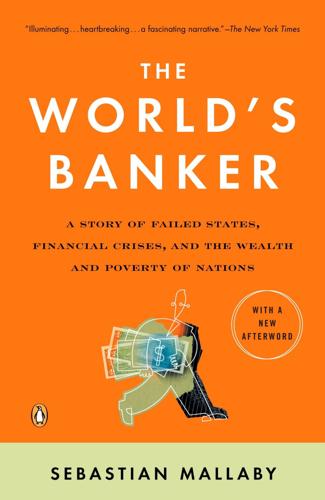
The World's Banker: A Story of Failed States, Financial Crises, and the Wealth and Poverty of Nations
by
Sebastian Mallaby
Published 24 Apr 2006
The firm’s chairman, Michael Verey, was expected to retire soon, and the word within Schroders was that Wolfensohn would succeed him.36 But, just as in Australia, Wolfensohn pushed a little hard; he had so many ideas, and was so anxious to implement them now, that the traditionalists at Schroders took passionately against him. For the old guard at the firm, he was all fizz and flash; his style would damage the firm’s name, and it was possibly un-British. Wolfensohn’s U.S. operation, for all its razzmatazz, had never generated much in the way of profits, or so the old-boy network said; it didn’t help that he was Jewish. Out of this cauldron of jealousy, traditionalism, and xenophobia, an anti-Wolfensohn movement took shape; the fittingly titled Earl of Airlie, whose wife was a lady-in-waiting to the queen, emerged as Wolfensohn’s chief rival. When Verey stepped down from the top job at Schroders, the noble earl became the chairman
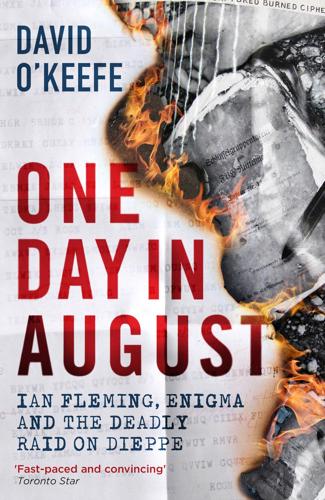
One Day in August: Ian Fleming, Enigma, and the Deadly Raid on Dieppe
by
David O’keefe
Published 5 Nov 2020
Godfrey’s mentor, Admiral Sir William ‘Blinker’ Hall, the legendary spymaster from the First World War, had suggested he should hire someone to help him with his overwhelming pressures and responsibilities in a world verging on war, particularly in the now long-neglected Intelligence Division.2 John Godfrey immediately reached out for suggestions for a worthwhile candidate.3 As with most things in the shadowy world of British intelligence and espionage in those days, Fleming’s name reached him through the time-honoured old boys’ network – specifically Sir Montagu Norman, the longest-serving governor of the Bank of England.4 Fleming, like Norman, had been tempered at Eton, the prestigious boys’ school that had crafted the character of generations of the privileged class, preordained for positions of power within the British Empire.
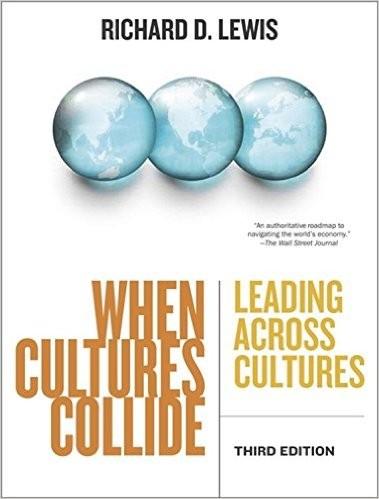
When Cultures Collide: Leading Across Cultures
by
Richard D. Lewis
Published 1 Jan 1996
Representatives of a British company will make normal use of their firm’s reputation, size and wealth in their negotiating hand, and you can do likewise in dealing with them. What they do not reveal so readily is the strength of their behind-the-scenes connections. The “old school tie,” or the “old-boys’ network,” is very much a reality in British executive life and should not be underestimated. It is particularly active in the City, the ministries and in legal circles, and nationals from a small country should always bear in mind that they may be dealing with greater influences than are apparent on the surface.
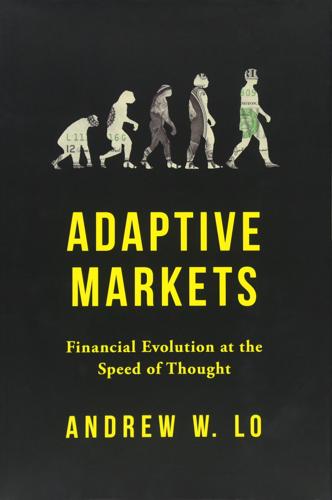
Adaptive Markets: Financial Evolution at the Speed of Thought
by
Andrew W. Lo
Published 3 Apr 2017
Sophisticated quantitative models, pioneered by academics and the academically trained, quickly spread throughout the financial industry. These new quantitative models became part of the standard financial toolkit for traders, bankers, risk managers, and even regulators. The quantitative revolution triggered an evolutionary change on Wall Street. The old boys’ network was replaced by the computer network. What you knew became more important than who you knew. And for the first time in modern history, the graduates of MIT and Caltech found themselves more employable on Wall Street than the graduates of Harvard and Yale. The “quants” who could speak the new mathematical language of the Street—alpha, beta, mean-variance optimization, and the Black-Scholes/Merton option-pricing formula—were given great status and even greater compensation.

A Life in Secrets
by
Sarah Helm
Published 1 Jan 2005
Some said he had arrived at SOE with a chip on his shoulder—perhaps because he had not taken his exhibition up to Oxford. Then when he unexpectedly secured the post as head of F Section, he felt a need to prove himself and secure, in the words of Colin Gubbins, “the highest possible dividend” for F Section—but zeal and patriotism, and a link to the old-boy network, were not enough. Perhaps Buckmaster sensed, as Gubbins said after the war, that he got the job “because there was nobody else.” When things went wrong, Buckmaster, rather than face up to reality, retreated into fantasy, from which he rarely seems to have emerged. In his later years, when confronted with the facts of his gaffes, he, like others, took refuge in conspiracy theories, saying, for example, that he had known all along that Déricourt was a double agent but he had been following orders from on high.
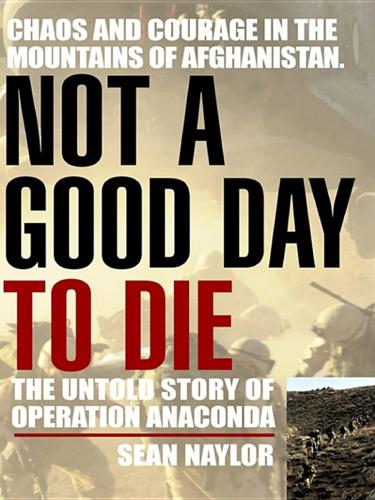
Not a Good Day to Die: The Untold Story of Operation Anaconda
by
Sean Naylor
Published 1 Mar 2005
But there was a catch: He would have to wear civilian clothes, so as not to attract attention en route to the capital (as if a couple of vehicles full of well-armed American-looking young men in mufti would pass unnoticed by the locals). Larsen didn’t have any civilian clothes in his rucksack. But the Ranger old-boy network came through yet again for him. An ex-Ranger assigned to TF Bowie loaned Larsen a set of civilian clothes for the journey. Combined with an Afghan hat and scarf somehow procured for him by another Rakkasan staff officer, the civvies did the trick. No one would mistake Larsen for an Afghan tribesman any time soon, but at least the Dagger guys would let him ride in their pickup trucks.

Apollo
by
Charles Murray
and
Catherine Bly Cox
Published 1 Jan 1989
One of the first days after he took the job, an engineer came to him to get a routine signature on a travel order—he was going out to a convention of retired Air Force officers in San Francisco. O’Malley told him that they weren’t doing business that way any more. The engineer was outraged—those conventions were an important way for a company like North American to tie into the old-boy network, and such trips had always been one of the perks. He got hold of an ex-general who was a senior executive at Downey. The ex-general complained to Bill Bergen. Bill Bergen chewed out the ex-general for interfering with O’Malley, and said that anyway O’Malley was right. The word quickly spread that the old days were over.
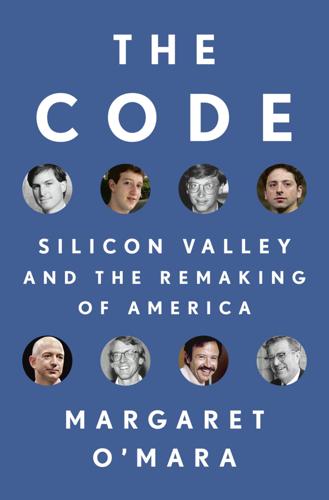
The Code: Silicon Valley and the Remaking of America
by
Margaret O'Mara
Published 8 Jul 2019
Los Alamos staff reminded IBM in early planning meetings that “high reliability [was] required” and “compact” size desired. The result was a machine that, at least for a few years, reigned as the world’s fastest computer. Ann Hardy was one of the few people who knew how to program it.26 By the time the Stretch was done, however, Hardy had become tired of fighting the old boys’ network at Big Blue. She had loyally moved “up and down the Hudson” as she transitioned from one unit of the company to another, bouncing from New York to Ossining to Poughkeepsie as IBM demanded. Her standout programming skills had gotten her promoted to middle management, but she couldn’t advance any further without an MBA—ideally, her supervisors suggested, from Harvard.
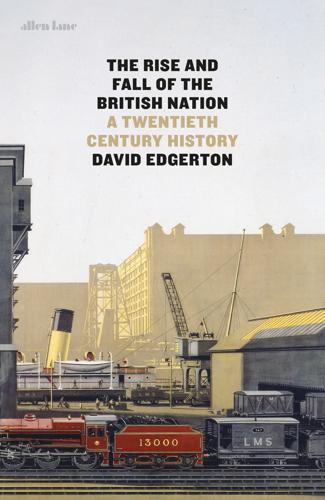
The Rise and Fall of the British Nation: A Twentieth-Century History
by
David Edgerton
Published 27 Jun 2018
It is rather telling that Harold Wilson so liked the popular historian Arthur Bryant, a national-imperialist protectionist of the 1930s, knighted by the Conservatives in 1954, that he raised him to the Companionship of Honour in the 1960s. 15 Social Democracy, Nationalism and Declinism There is no more dangerous illusion than the comfortable doctrine that the world owes us a living. One of the dangers of the old-boy network approach to life is … that it is international, that whatever we do, whenever we run into trouble, we can always rely on a special relationship with someone or other to bail us out. From now on Britain will have just as much influence in the world as we can earn, as we can deserve. We have no accumulated reserves on which to live.
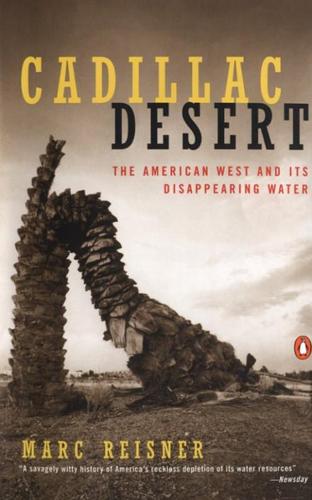
Cadillac Desert
by
Marc Reisner
Published 1 Jan 1986
In 1978, before he had even set foot in Washington, Senator-elect Alan Simpson of Wyoming was paid a special visit by three high-ranking officers in the Corps of Engineers asking if there was anything they could “do” for him. Once in Washington, Simpson was approached again, this time by the leaders of the appropriate committees, who made him the same offer. Every freshman Senator and Congressman got the same treatment, even Bob Edgar. “The old-boy network comes to you,” says Edgar, who was elected to the House of Representatives in 1974, at the age of thirty-one. “They say, ‘You’ve got a water project in your district? You want one? Let us take care of it for you.’ Then they come around a few months later and get their pound of flesh. You actually risk very little by going along.
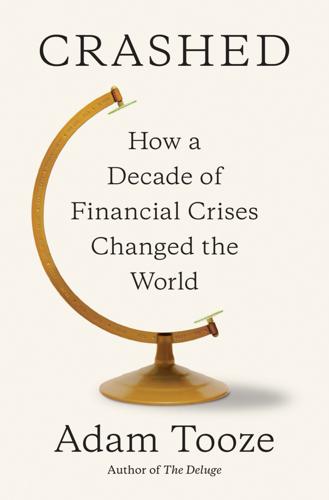
Crashed: How a Decade of Financial Crises Changed the World
by
Adam Tooze
Published 31 Jul 2018
Froman continued to draw a salary as Citigroup’s head of emerging markets strategy while he moonlighted for the Obama campaign.115 In 2009 he joined the Obama administration as deputy assistant to the president and deputy national security adviser for international economic affairs. The only figure on the Obama economics team who did not belong to the Clinton-era “old boys” networks was Christina Romer, a “new Keynesian” economist from Berkeley and noted expert on the history of the Great Depression, who was appointed to be chair of the Council of Economic Advisers.116 The market liked the news. As one investment adviser noted, “Geithner assures a smooth transition between the Bush administration and that of Obama, because he’s already co-managing what’s happening now.”117 Indeed, even to talk in terms of a transition from the Bush administration to Obama is to exaggerate the break.
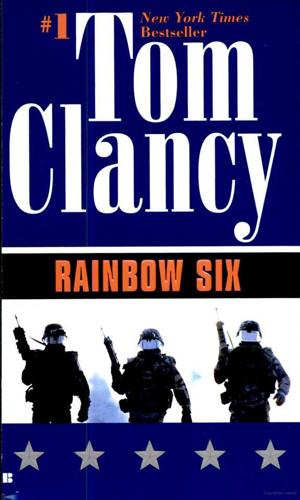
Rainbow Six
by
Tom Clancy
Published 2 Jan 1998
An FBI agent called the headquarters of both companies from his desk in the Hoover Building, and gave the card numbers to the chiefs of security of both companies. Both were former FBI agents themselves-the FBI sends many retired agents off to such positions, which creates a large and diverse old-boy network-and both of them queried their computers and came up with account information, including name, address, credit history, and most important of all, recent charges. The British Airways flight from London Heathrow to Chicago O'Hare leaped off the screen-actually the faxed page-at the agent's desk in Washington.
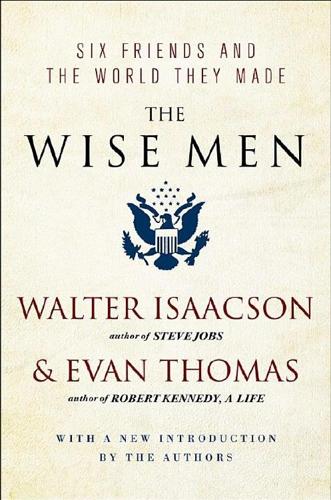
The Wise Men: Six Friends and the World They Made
by
Walter Isaacson
and
Evan Thomas
Published 28 Feb 2012
Among them was a boy whose family had lived in both states, Charles Eustis Bohlen, known at St. Paul’s and for the rest of his life as “Chip.” St. Paul’s and Groton, along with a few other High Church boarding schools in New England, offered those born into America’s new industrial wealth, such as Harriman, an induction into the nation’s aristocratic old boys’ network. They also helped provide a proper place in this circle for the sons of the right sort of Episcopal clergymen, such as Acheson. But no less importantly, they permitted the sons of the old-line social gentry to retain their connection to the country’s Establishment. The Bohlens were very much a part of this slightly frayed American upper class, a family of social distinction but somewhat less wealth.* Chip Bohlen was born on August 30, 1904, at his family’s home on Grindstone Island, in the St.
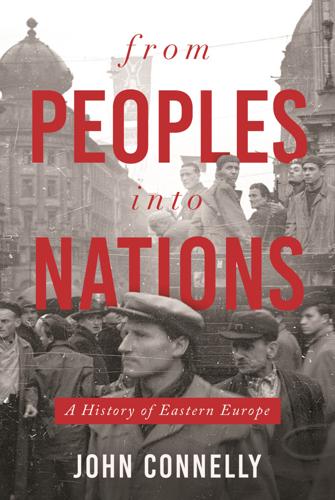
From Peoples into Nations
by
John Connelly
Published 11 Nov 2019
According to Guardist Vasile Marin, democracy produced the “universal, abstract, ideal man, always identical to himself, whereas we need men who are solidly rooted in our soil, in our history, and in our national consciousness.”39 The racist sociologist Traian Herseni added that no one besides the Legion represented “a political position that is valid and capable of electrifying the people. Beyond the Legion, there is only darkness and chaos.” Against sham democracies, the Iron Guard and Arrow Cross promised action, and against “old boy” networks, they seemed to personify self-sacrifice for the sake of the poor.40 But they did not impress through depth of thought. Ferenc Szálasi offered followers this retort to Marxism in his 1936 Road and Goal: Social Nationalism is life’s only genuine physics and biology. The true individual forms matter within his soul; his hand is but an instrument.
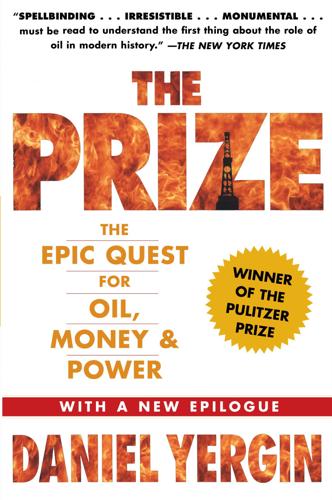
The Prize: The Epic Quest for Oil, Money & Power
by
Daniel Yergin
Published 23 Dec 2008
ENI's future would be profoundly shaped, the report continued, by "the limitless ambition evidenced in the person of Enrico Mattei." Mattei himself became a popular hero, the most visible man in the country. He embodied great visions for postwar Italy: antifascism, the resurrection and rebuilding of the nation, and the emergence of the "new man" who had made it himself, without the old boy network. He also promised Italians their own secure supply of oil. Italy was a resource-poor country that was not only very conscious of its shortages but also blamed many of its woes, including its military reverses, on them. Now, with Mattei, these problems, at least in the energy realm, were to be solved.